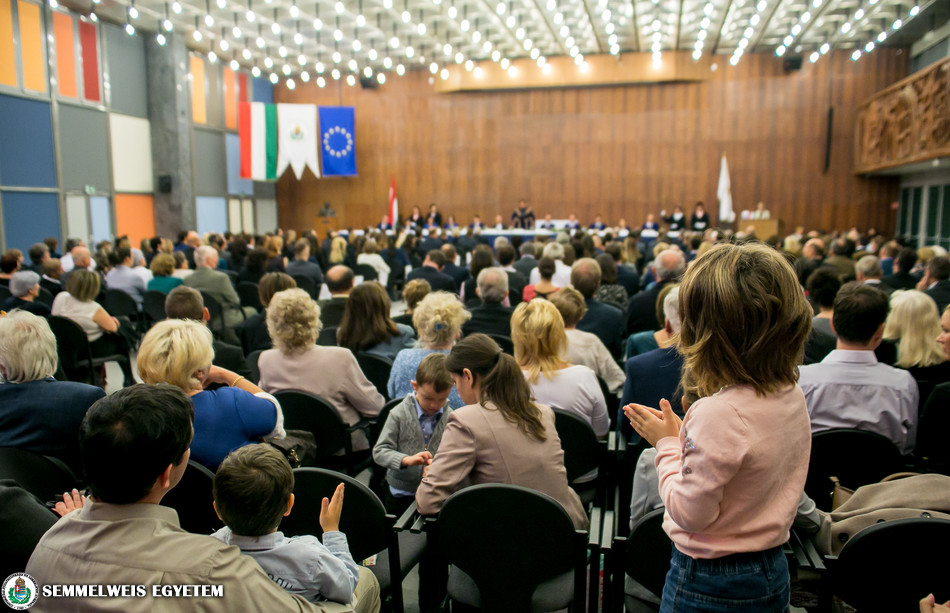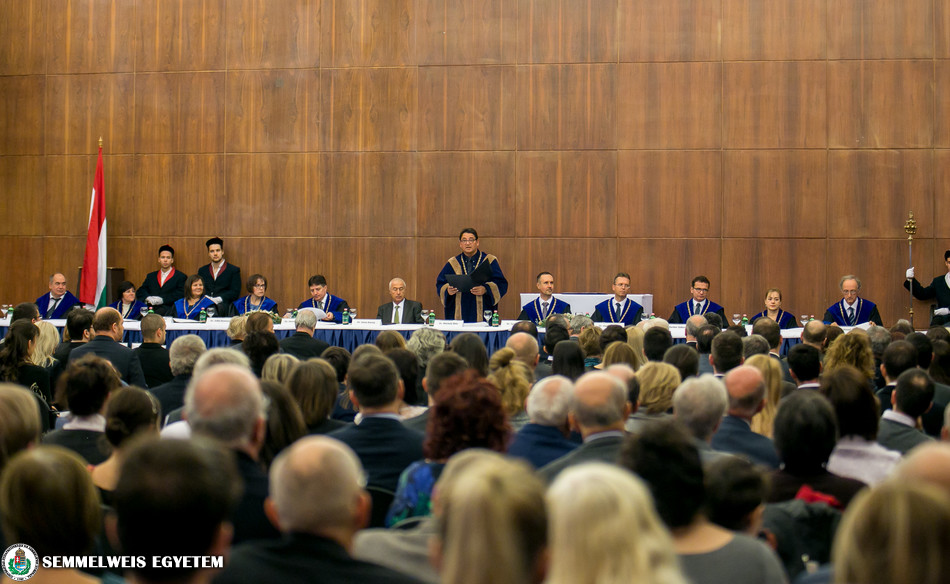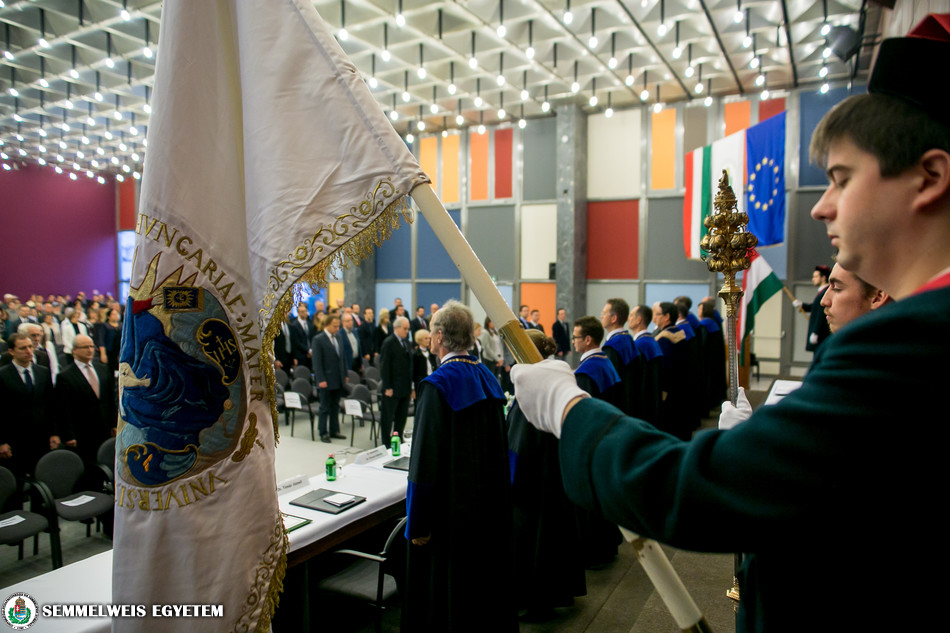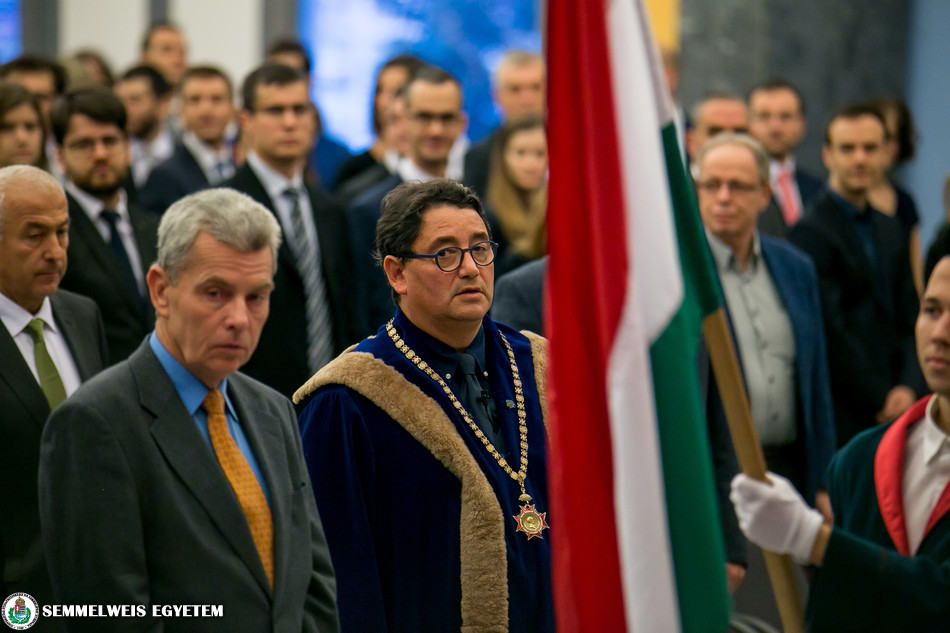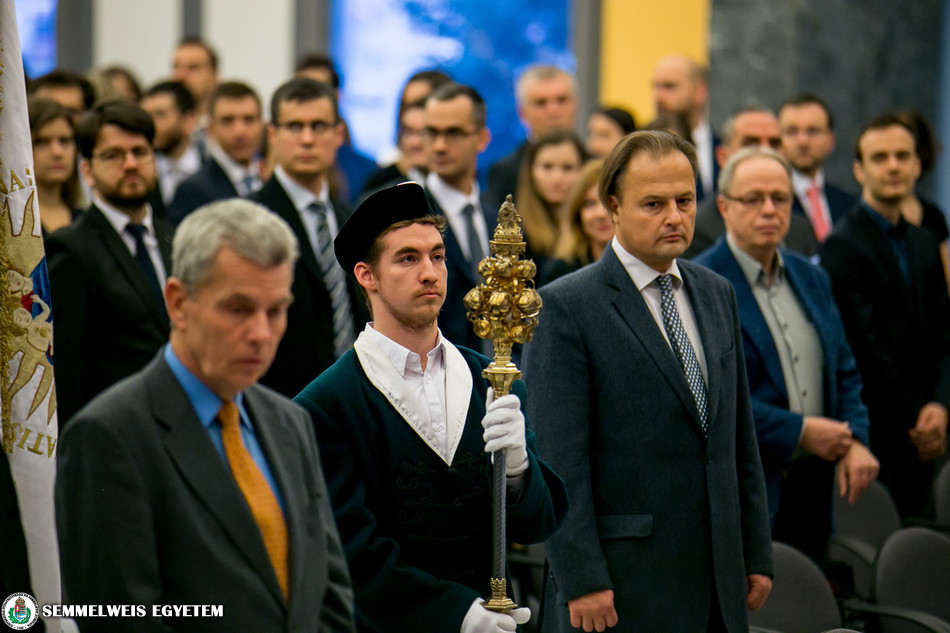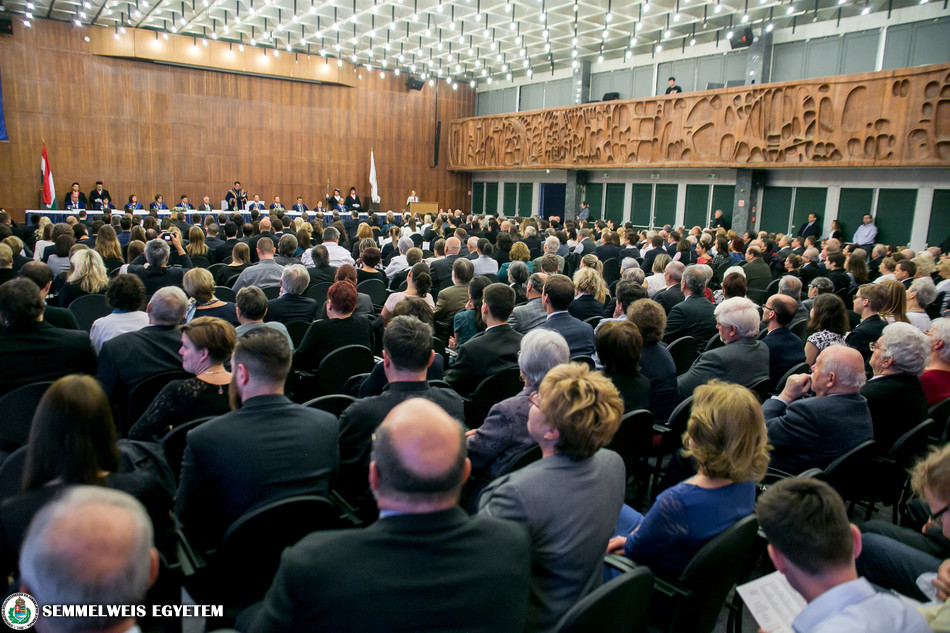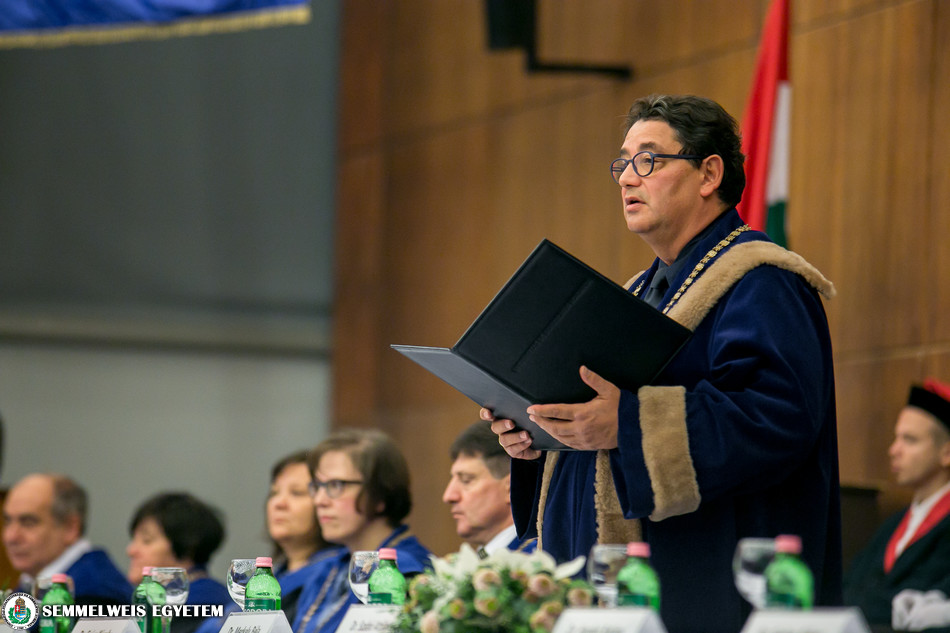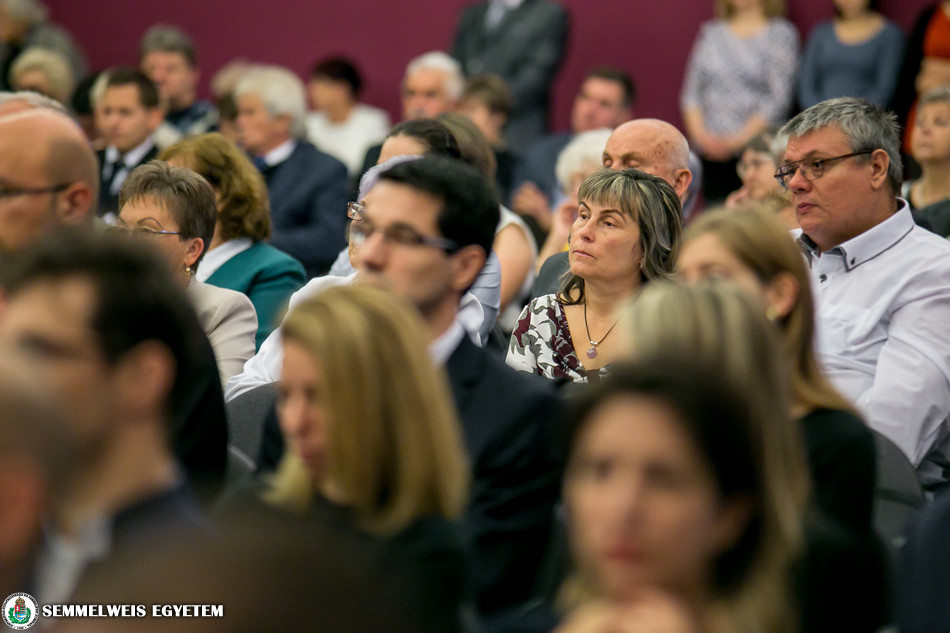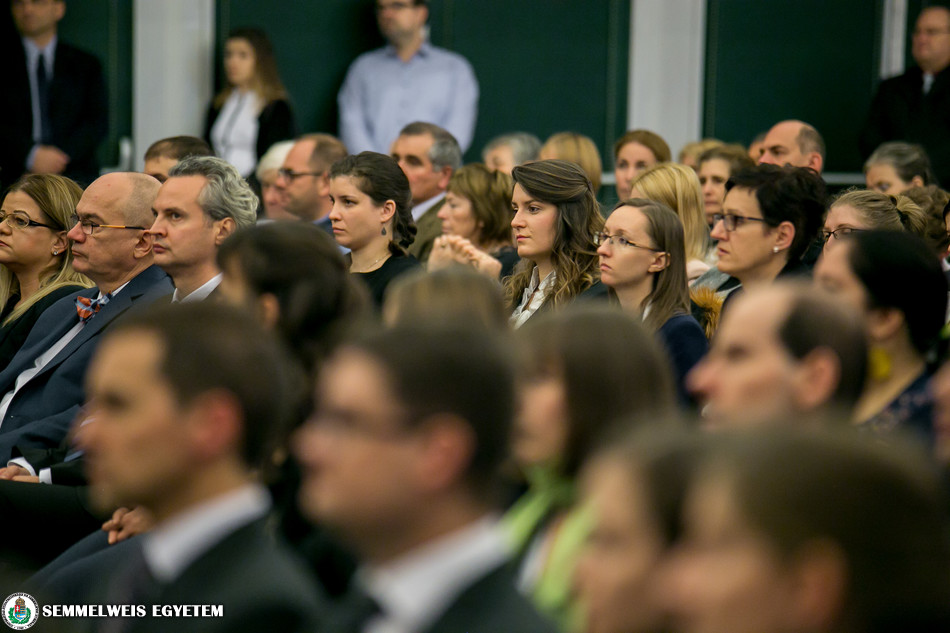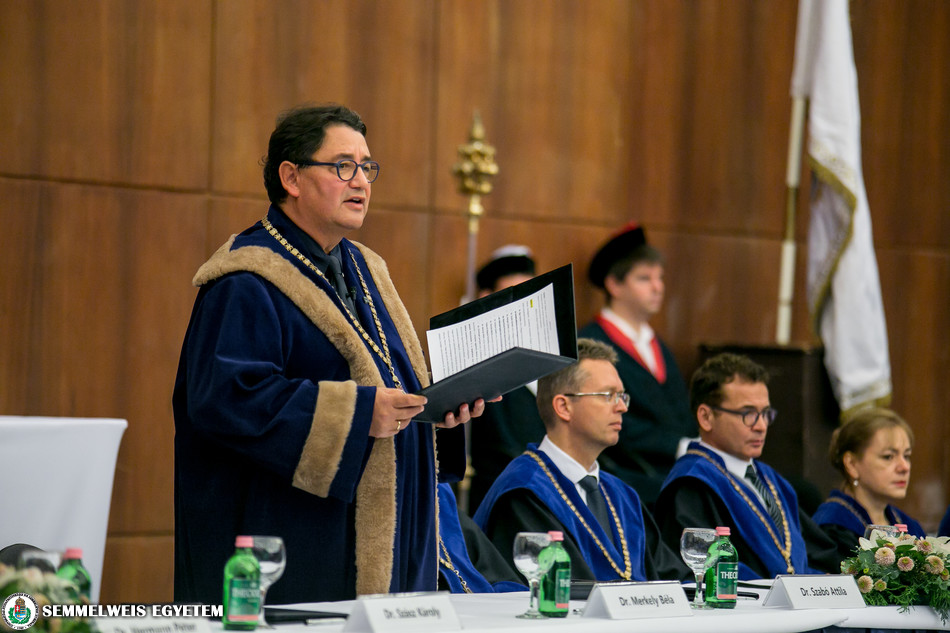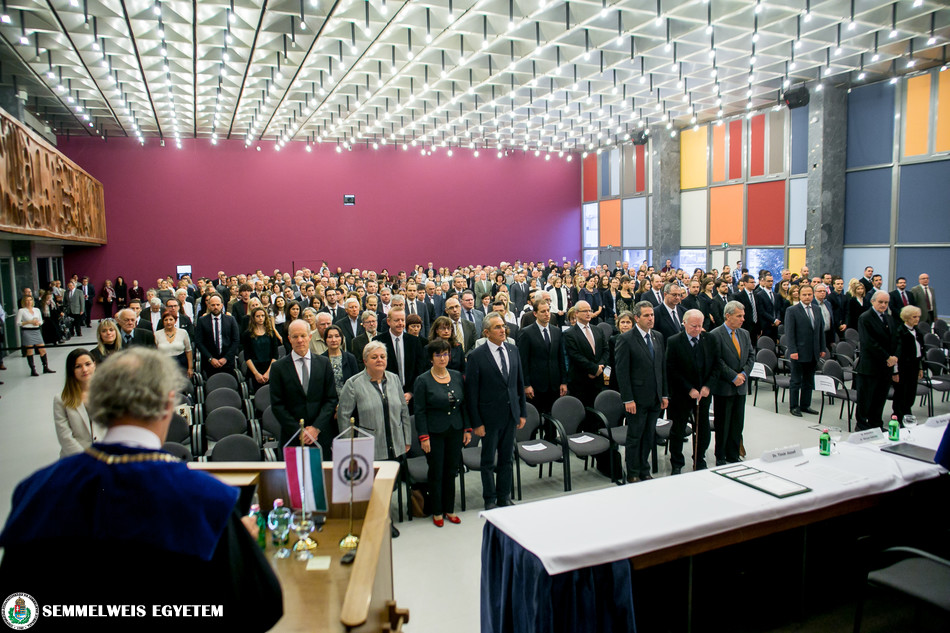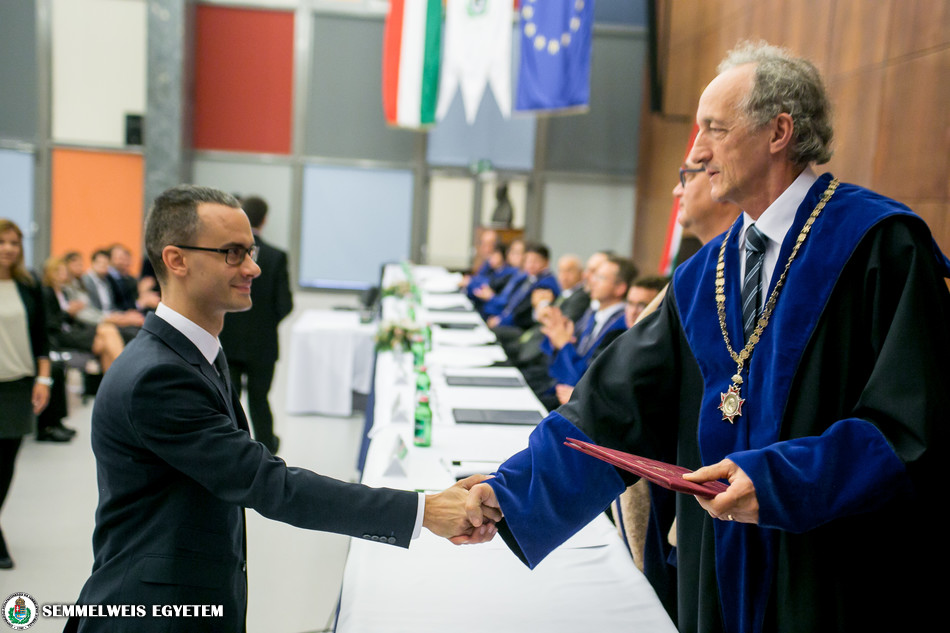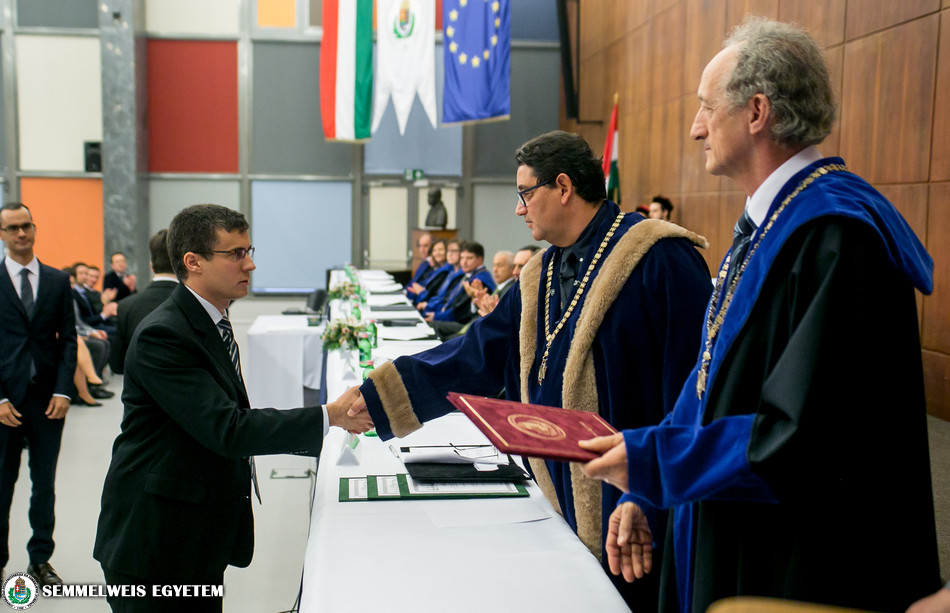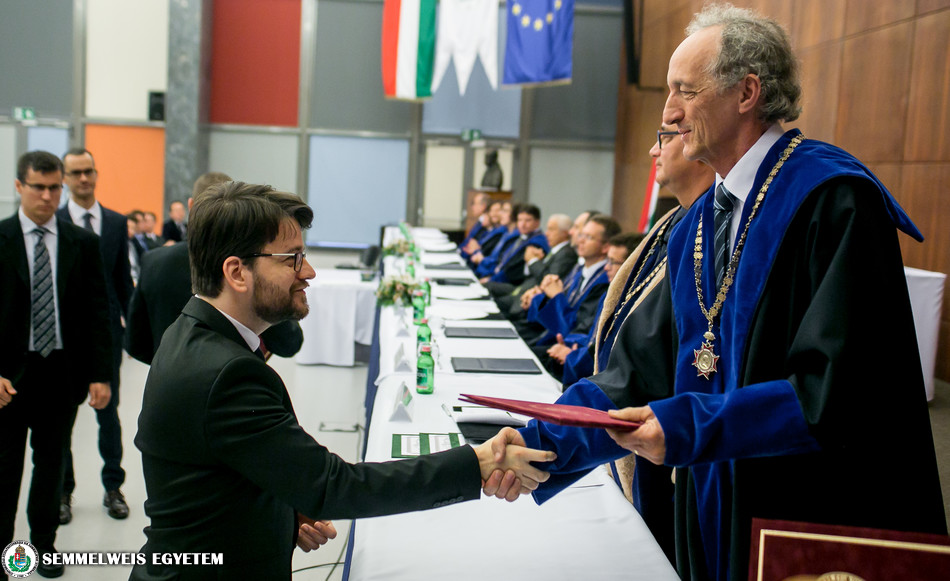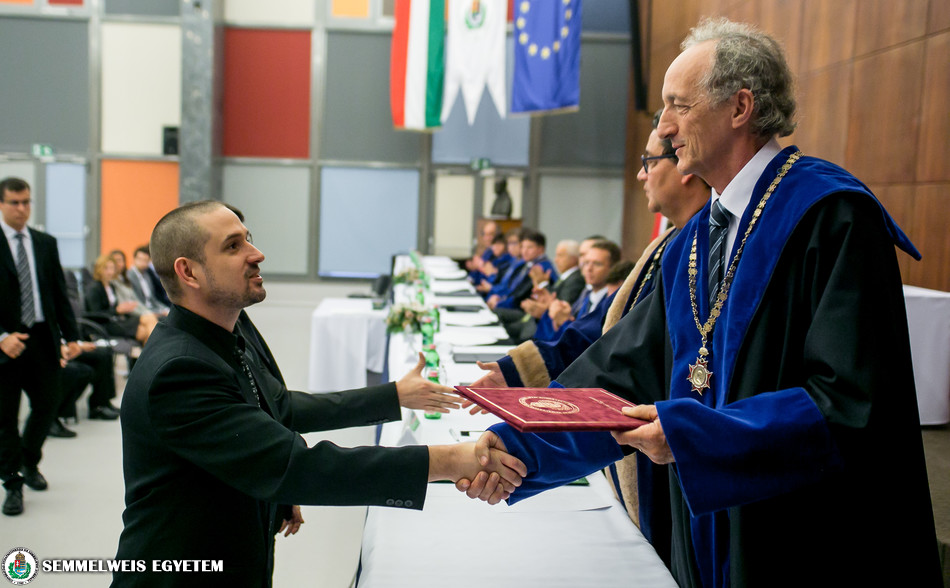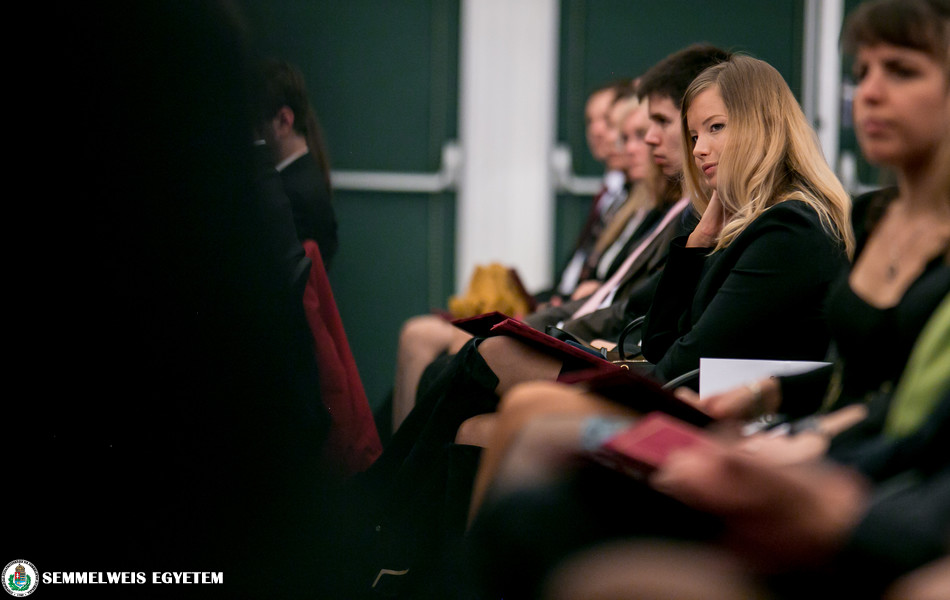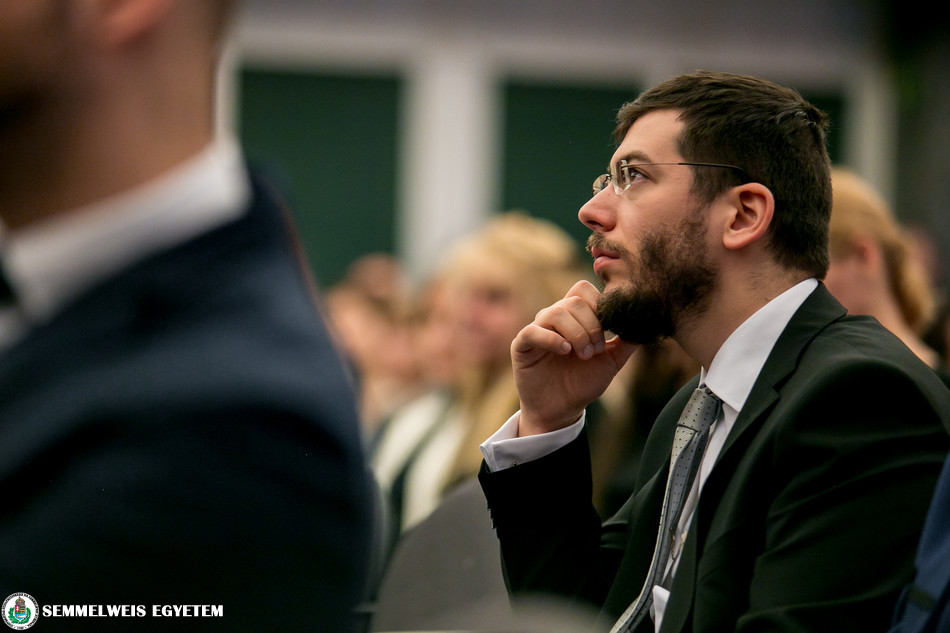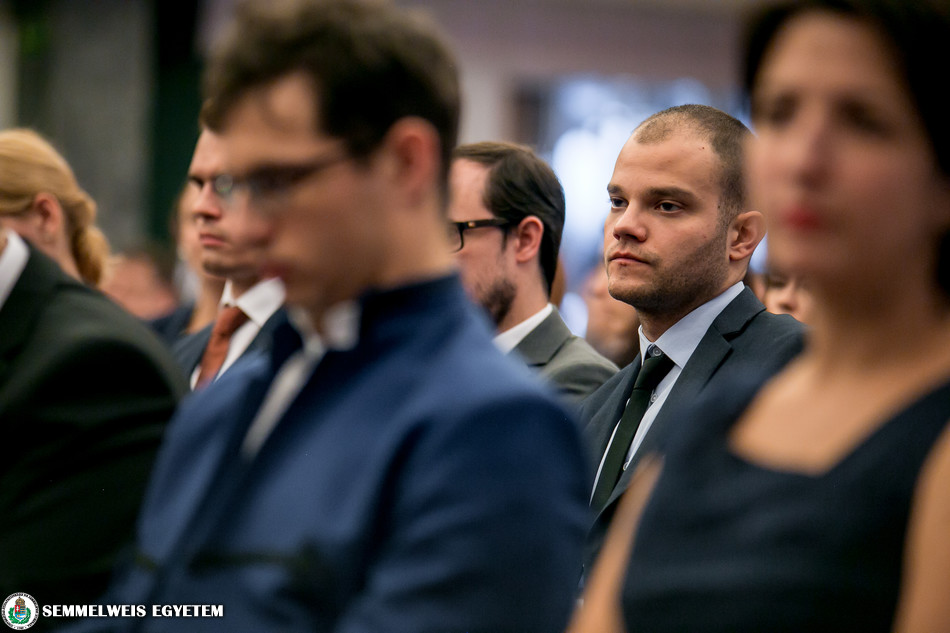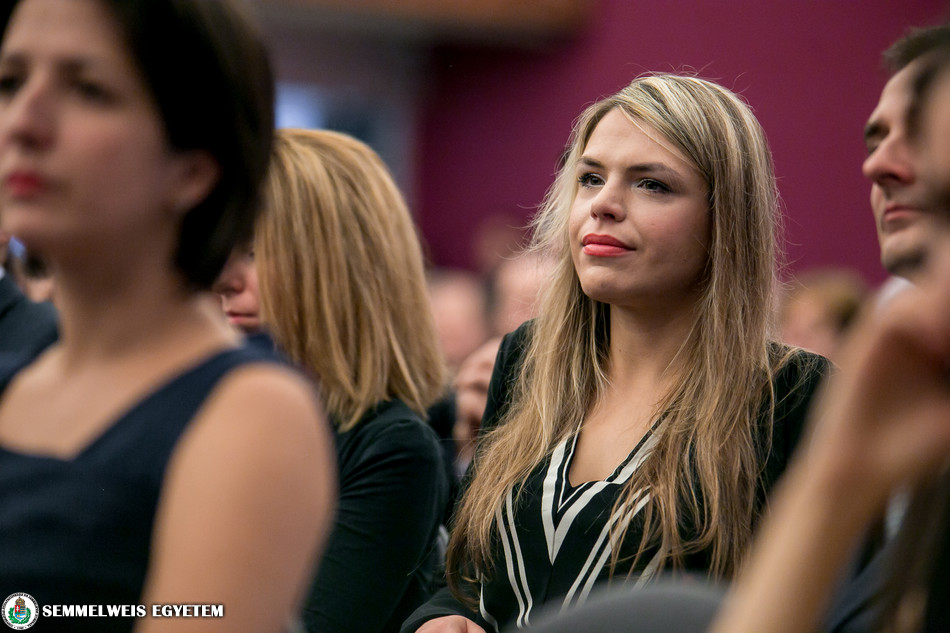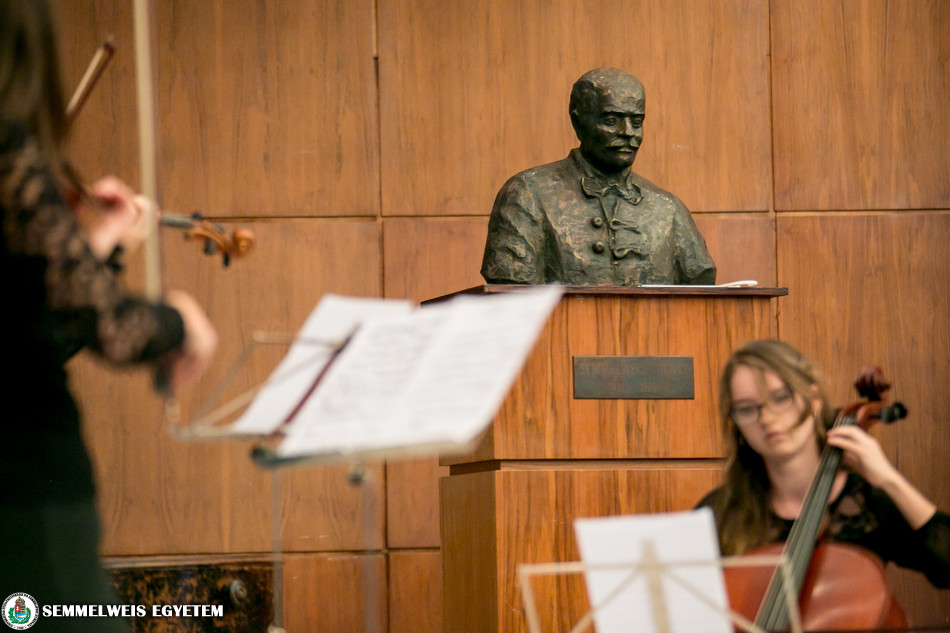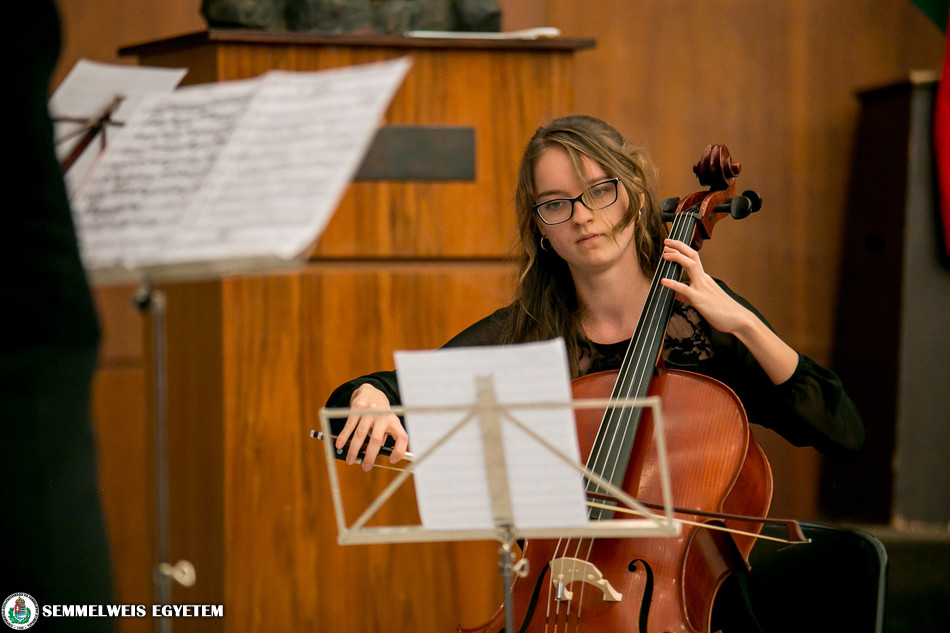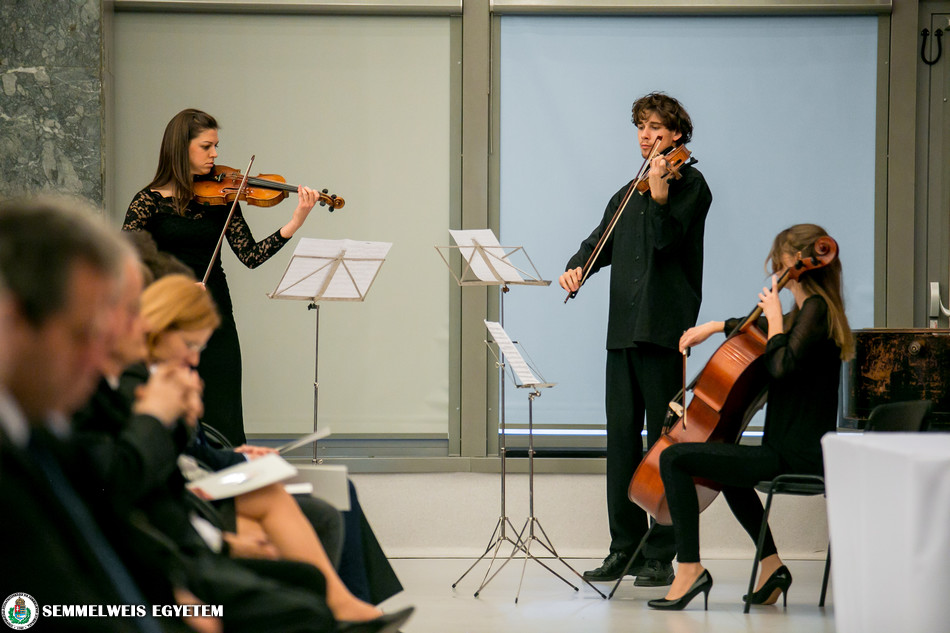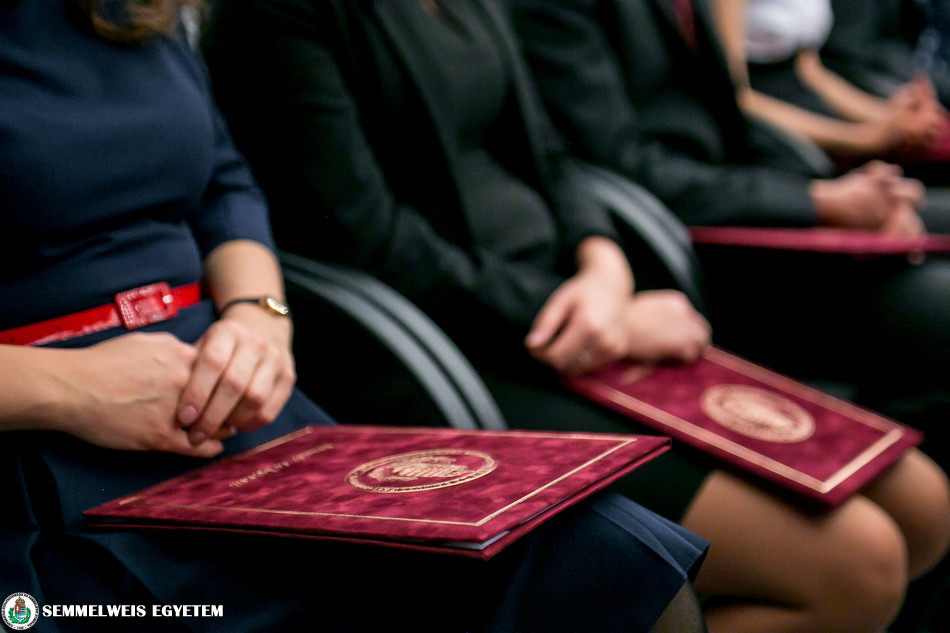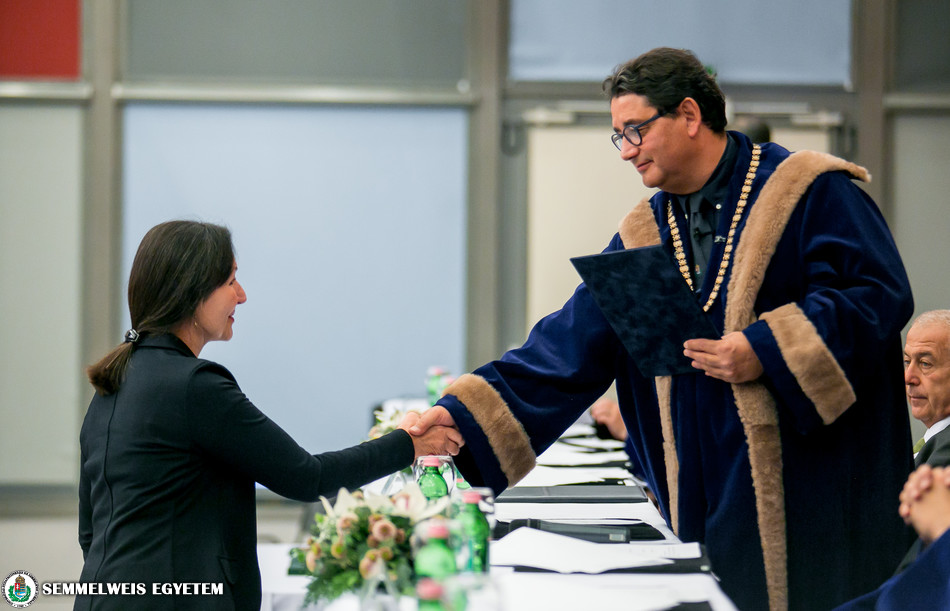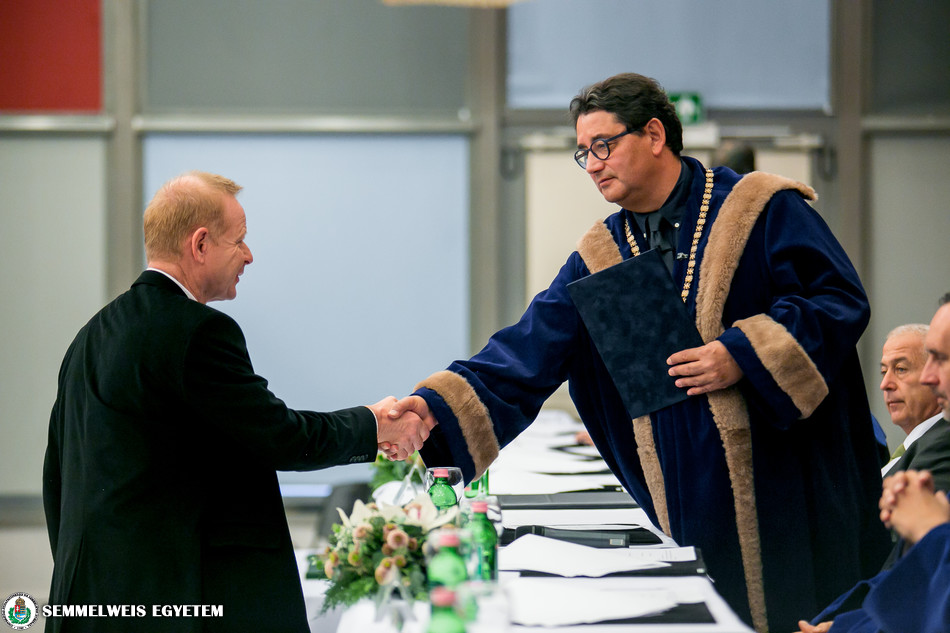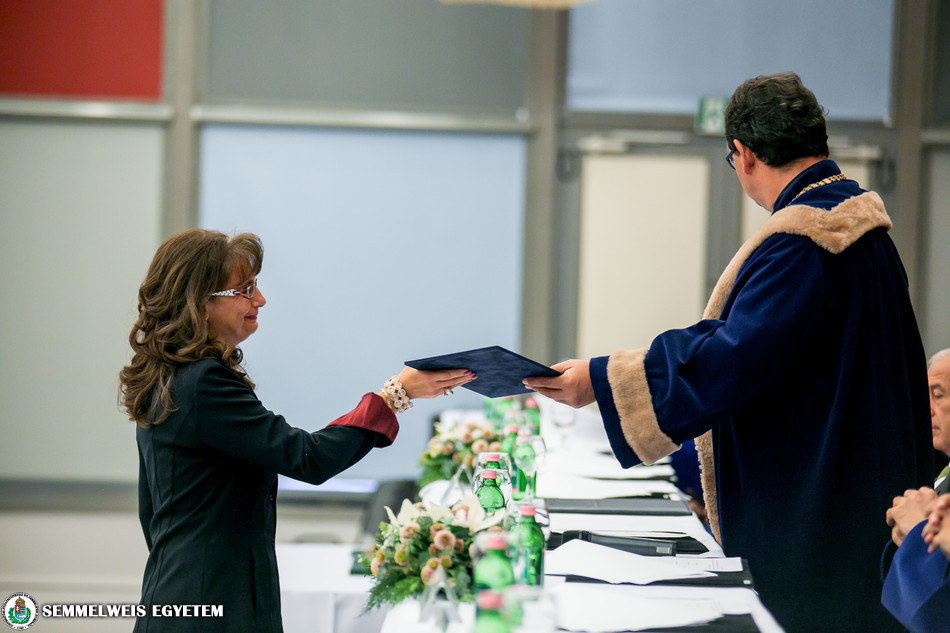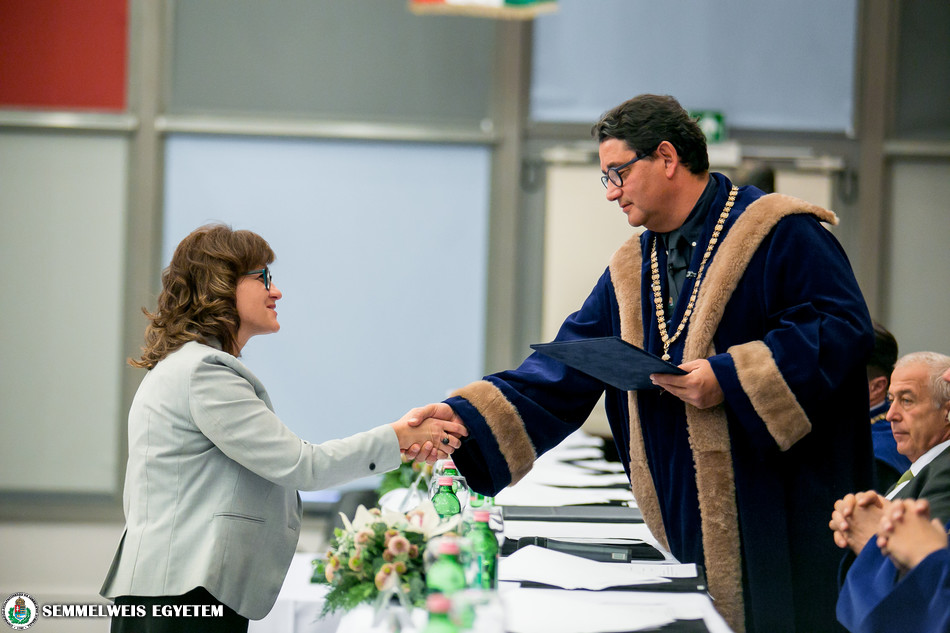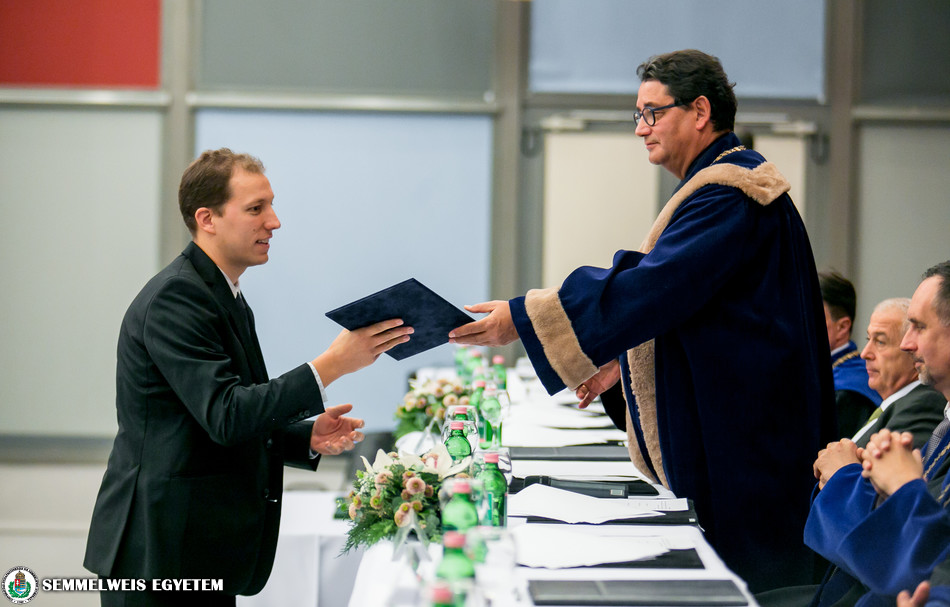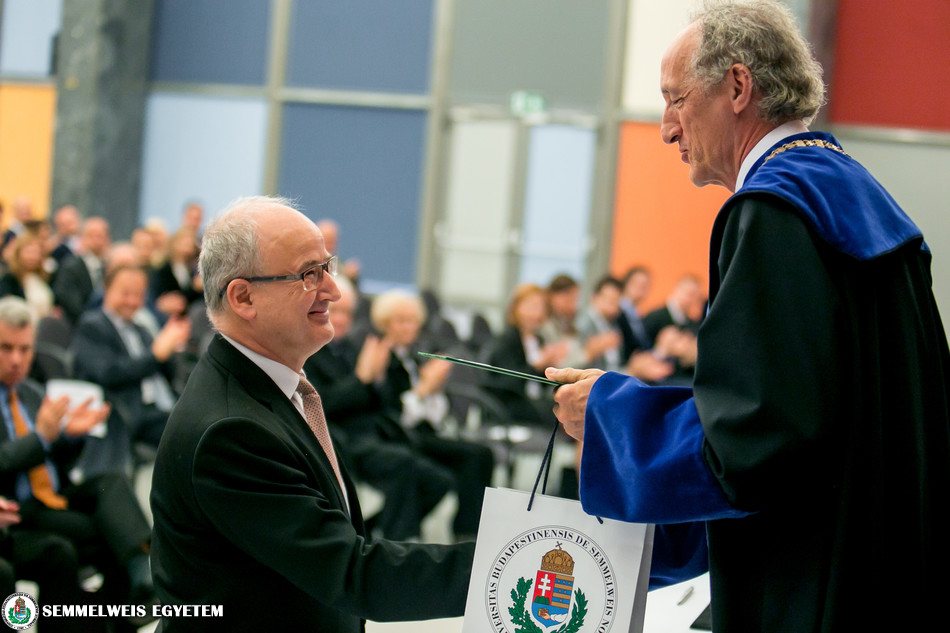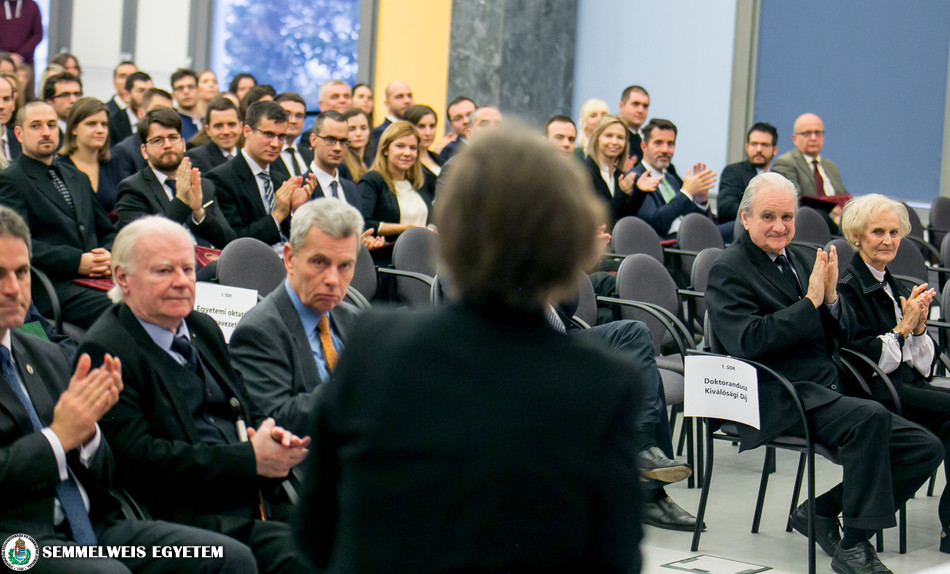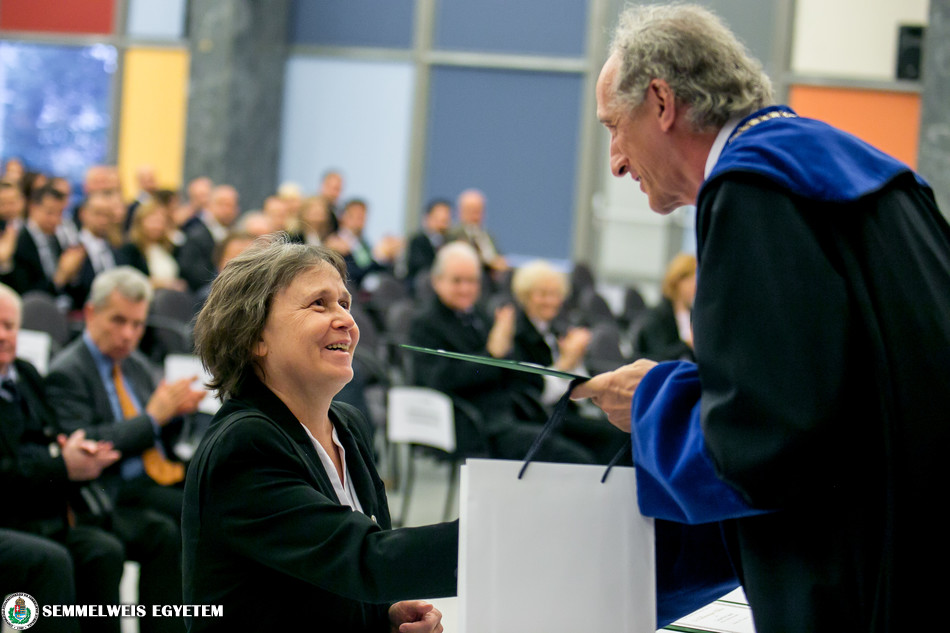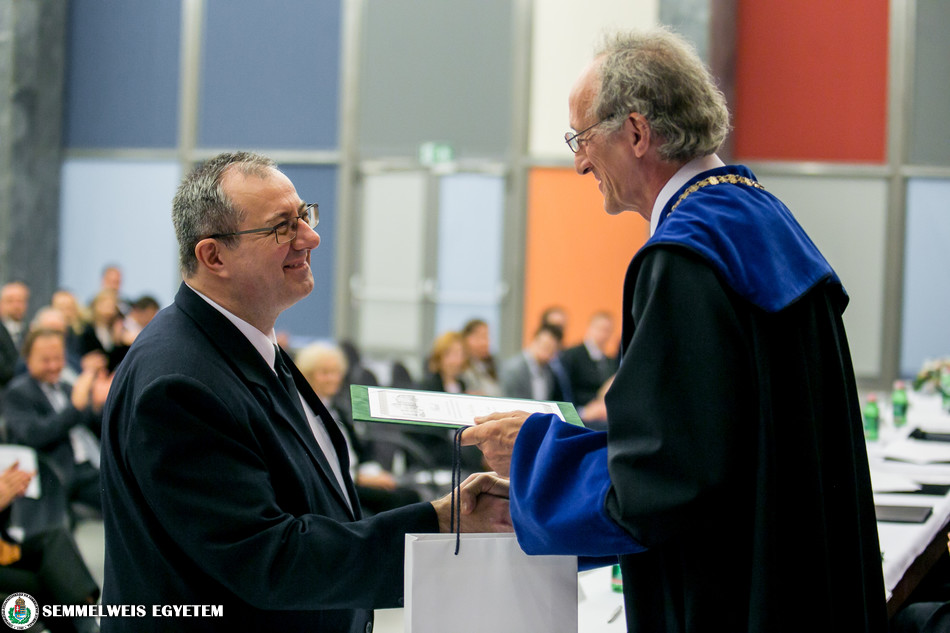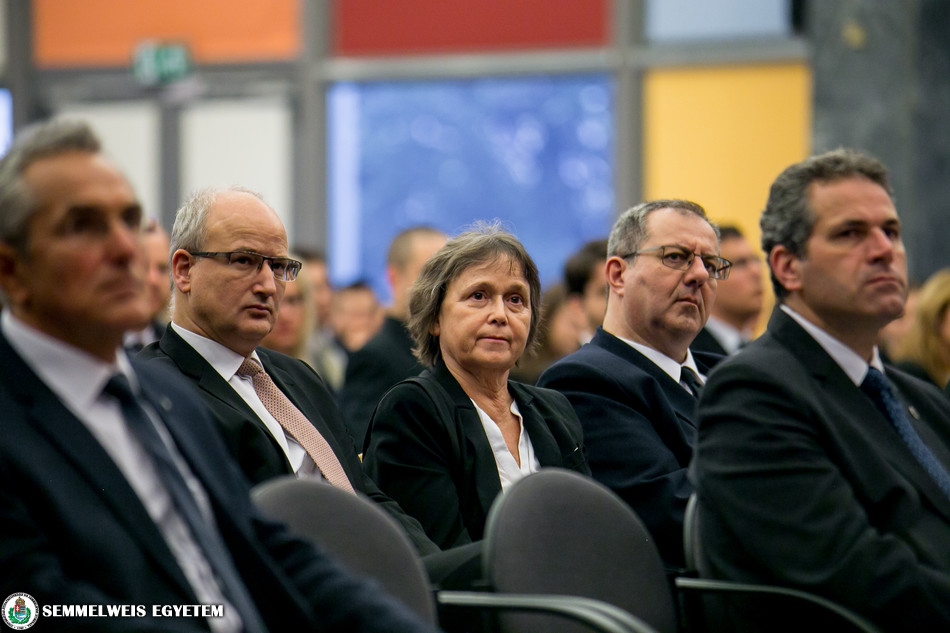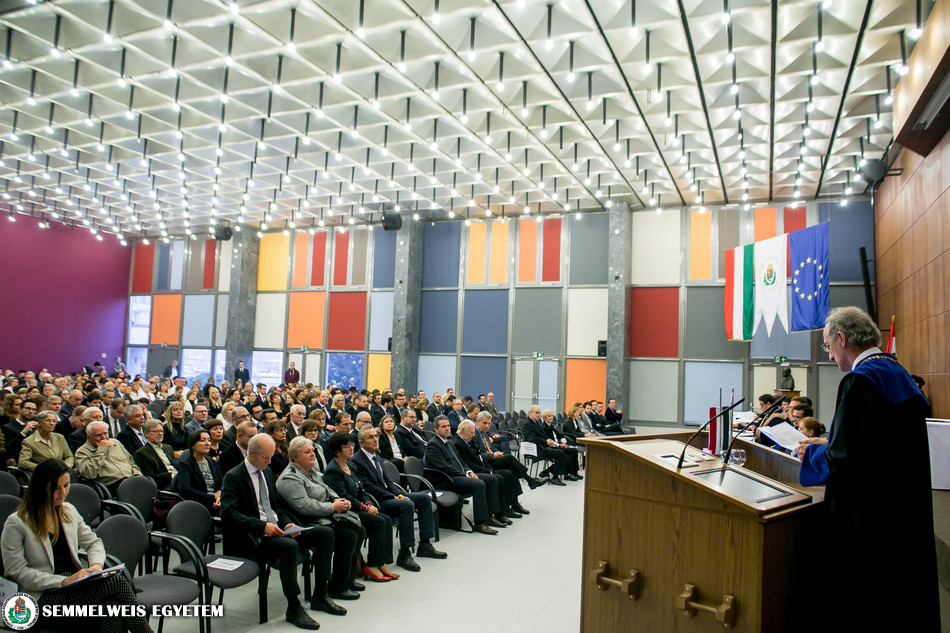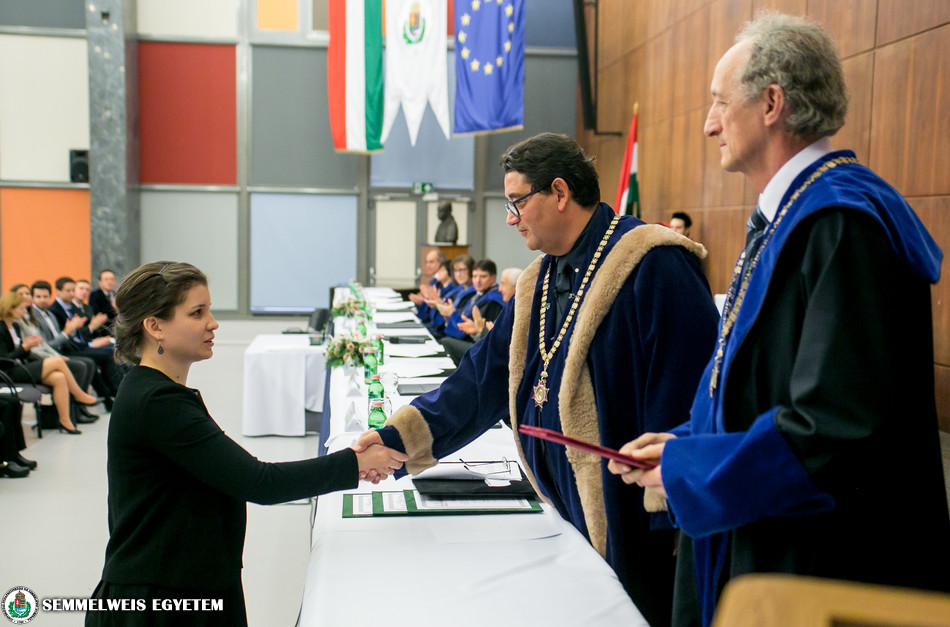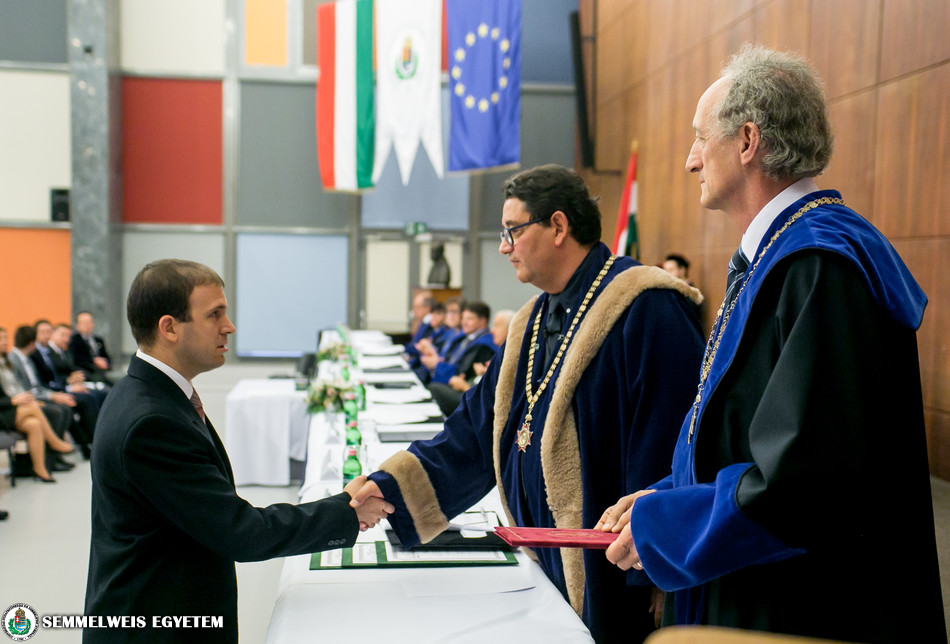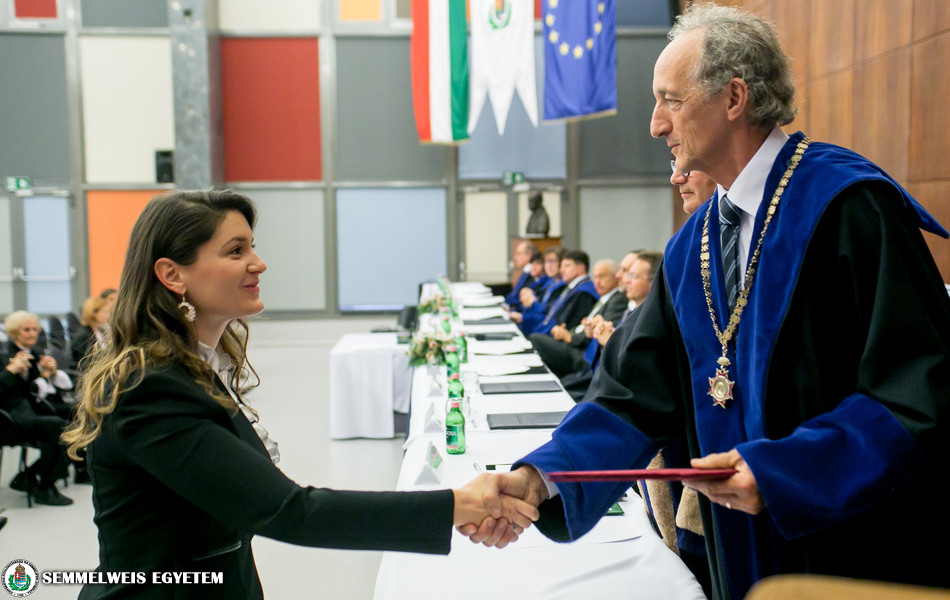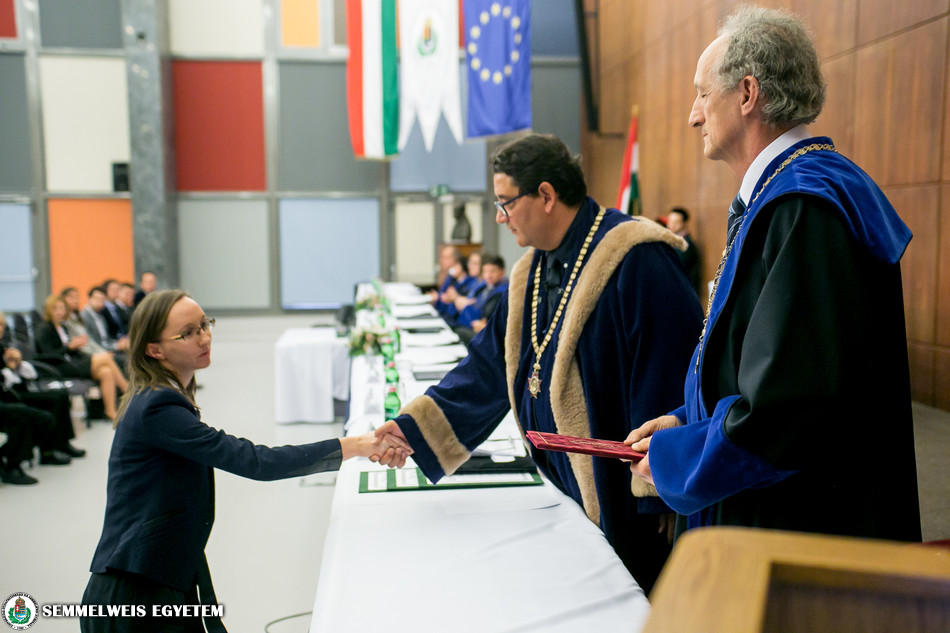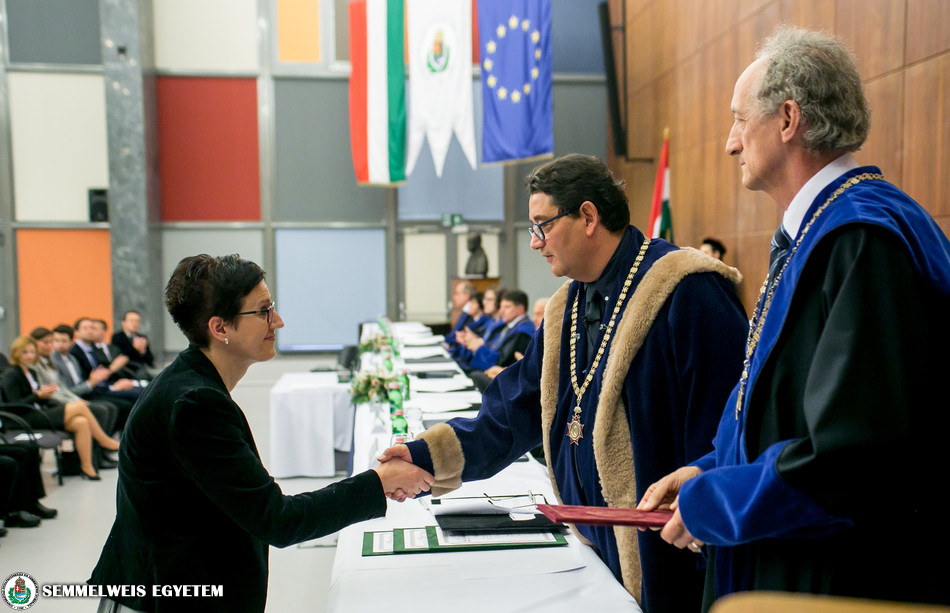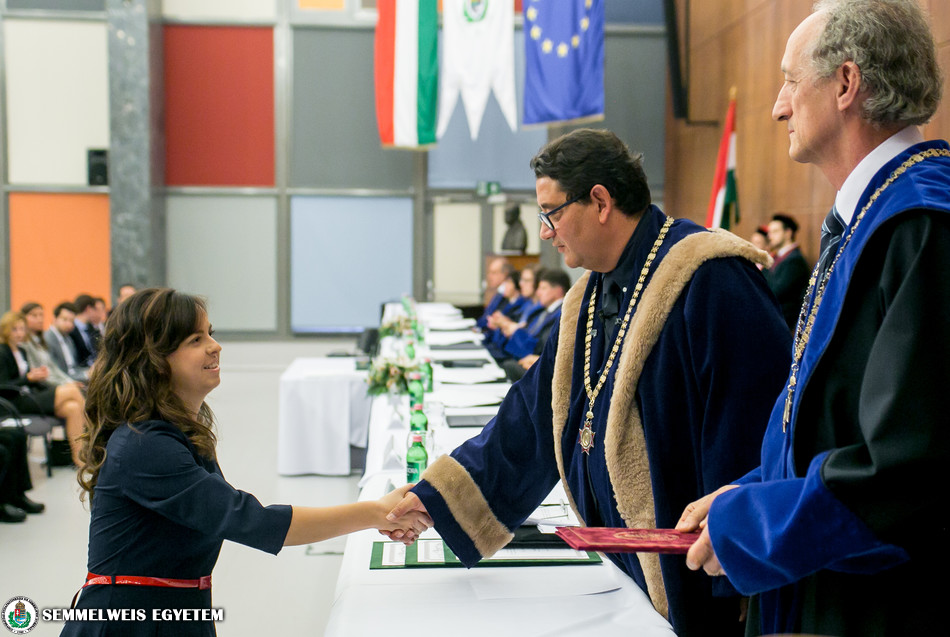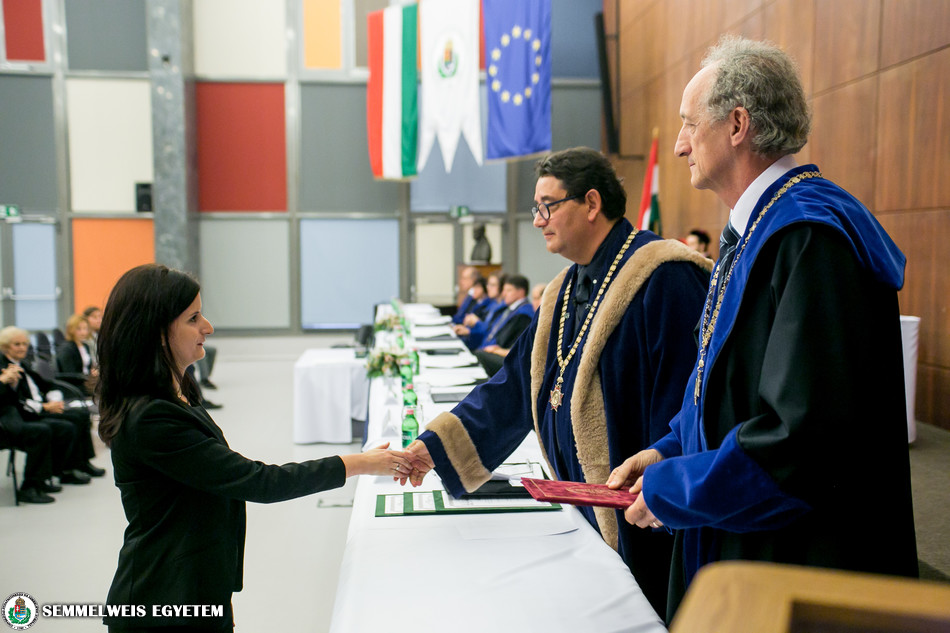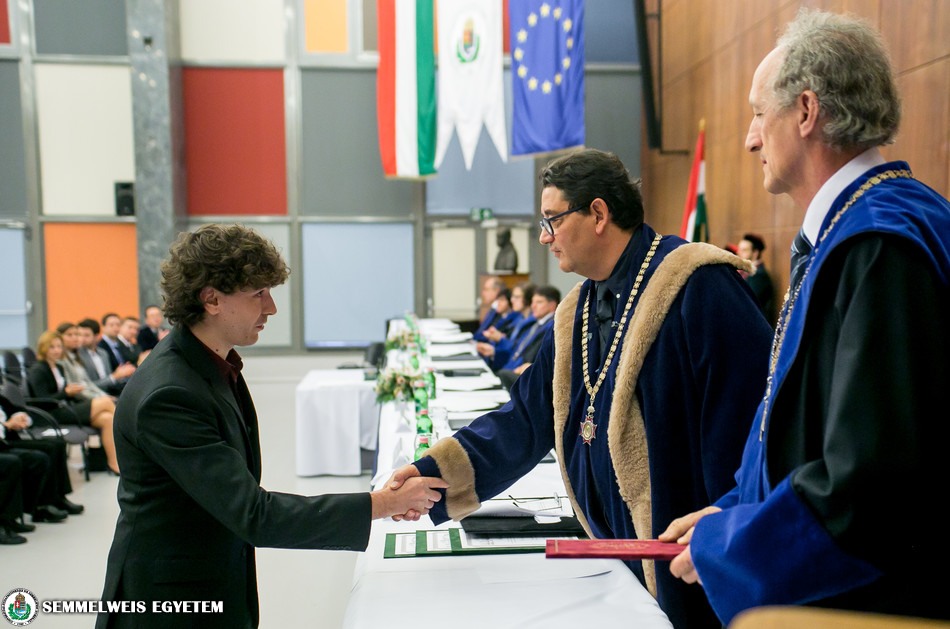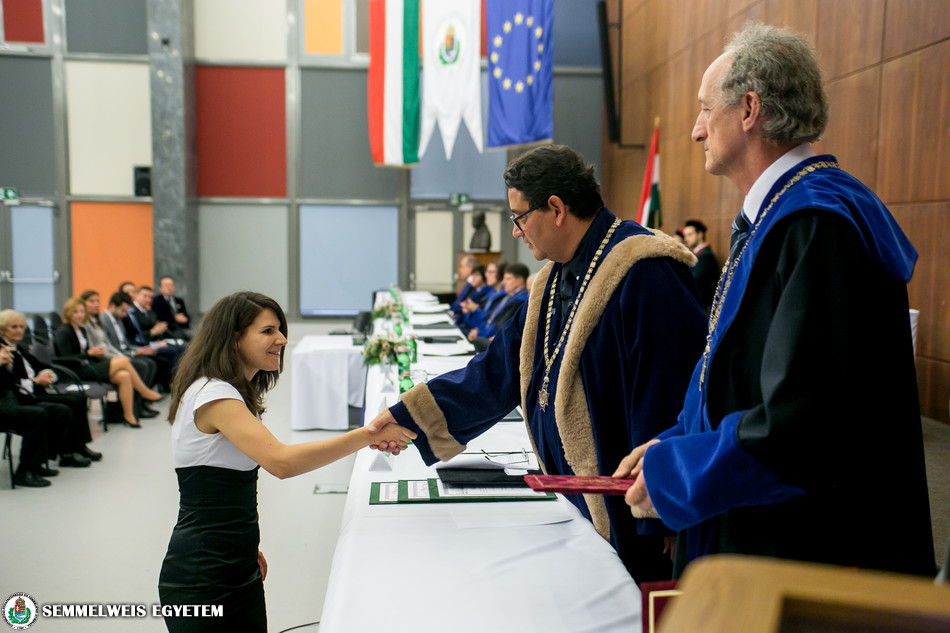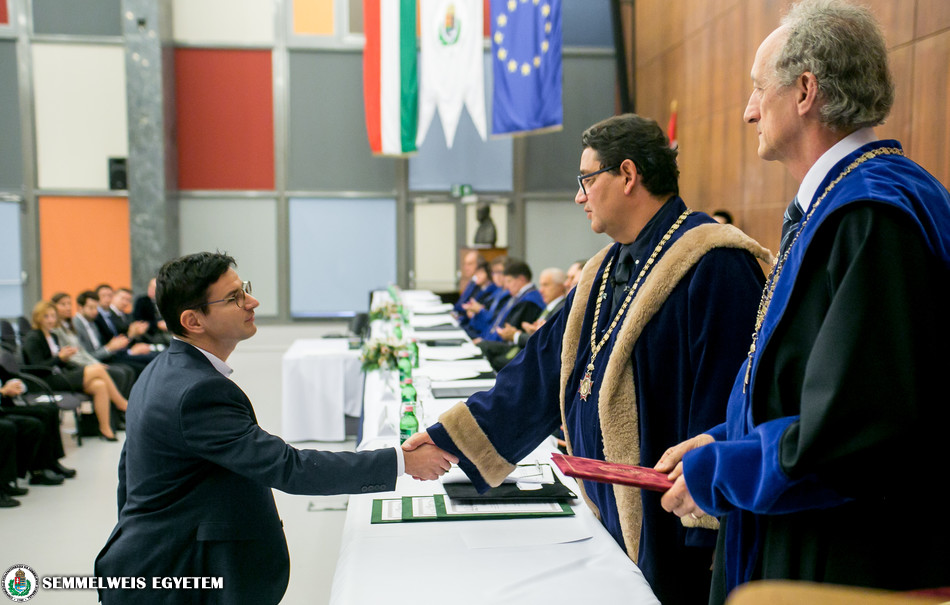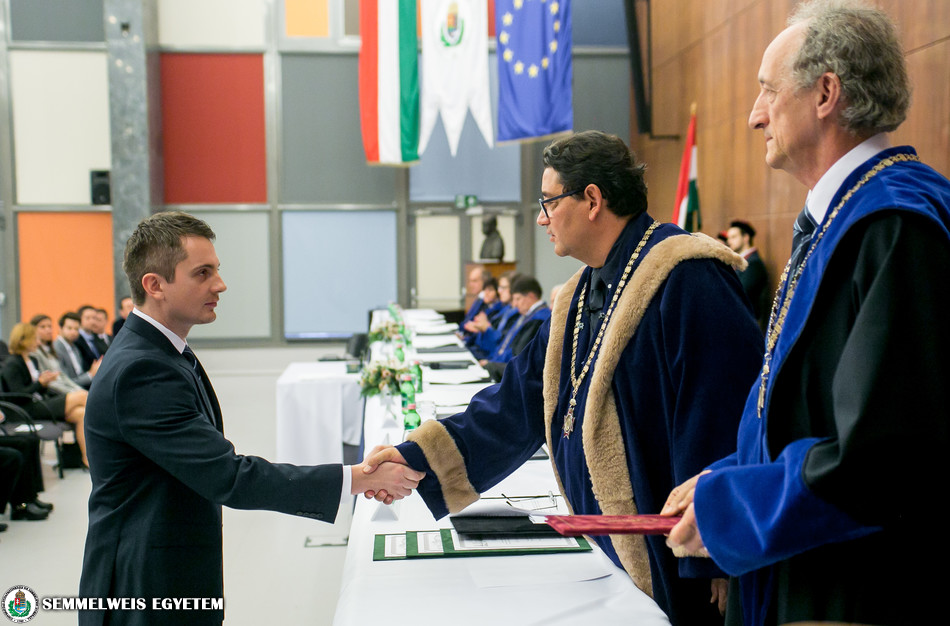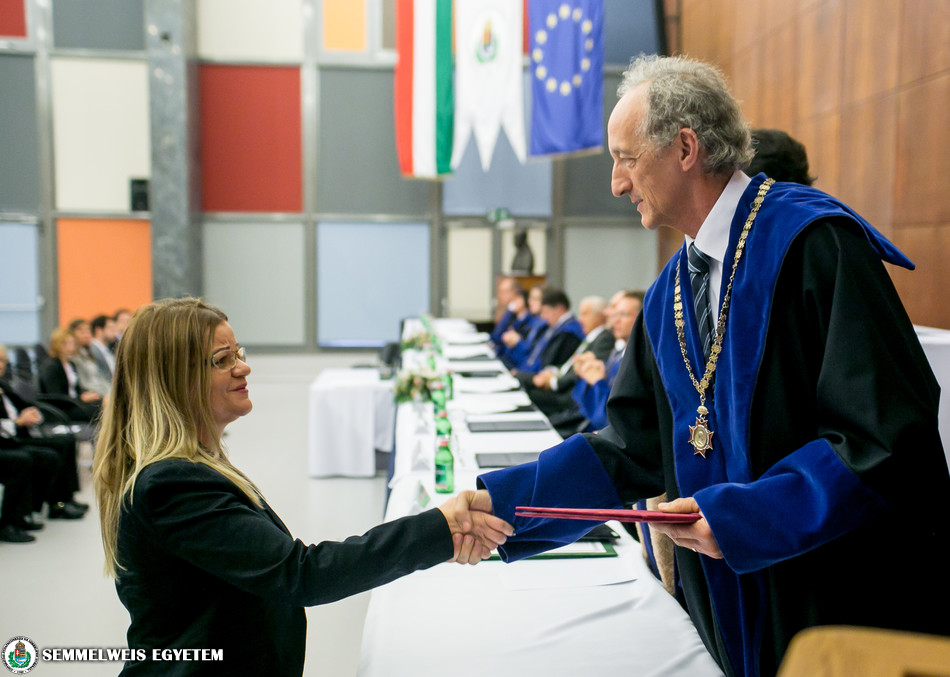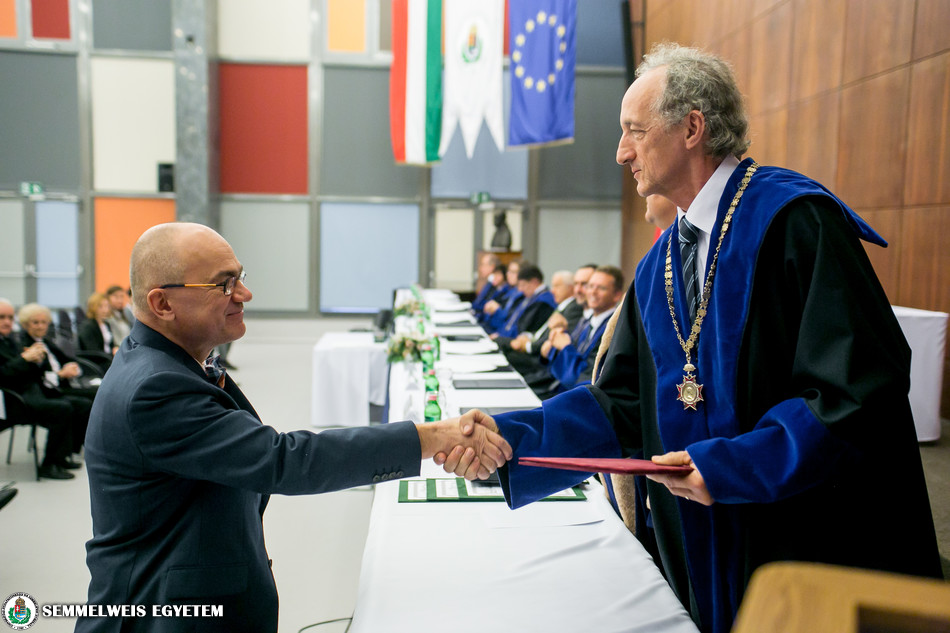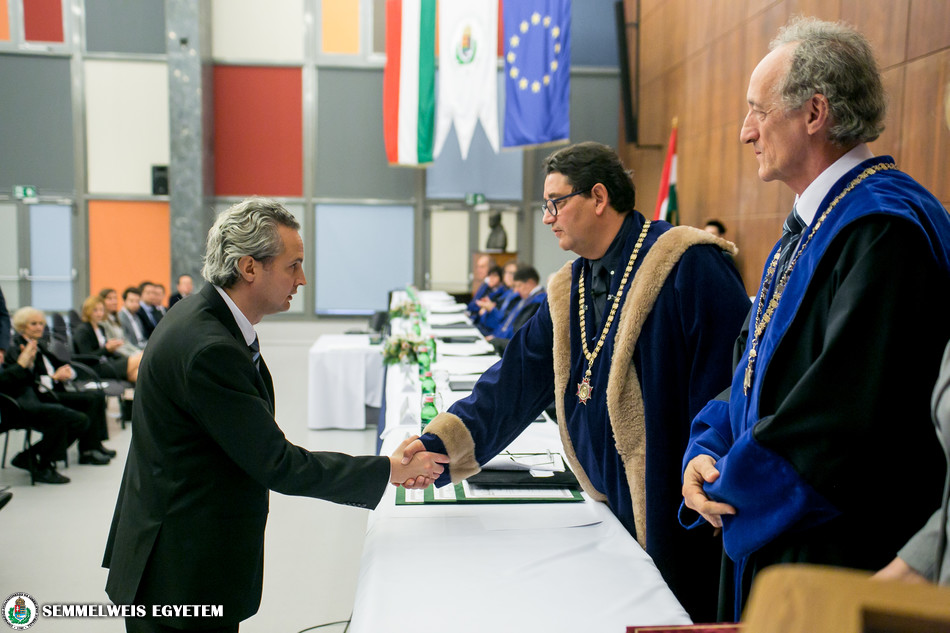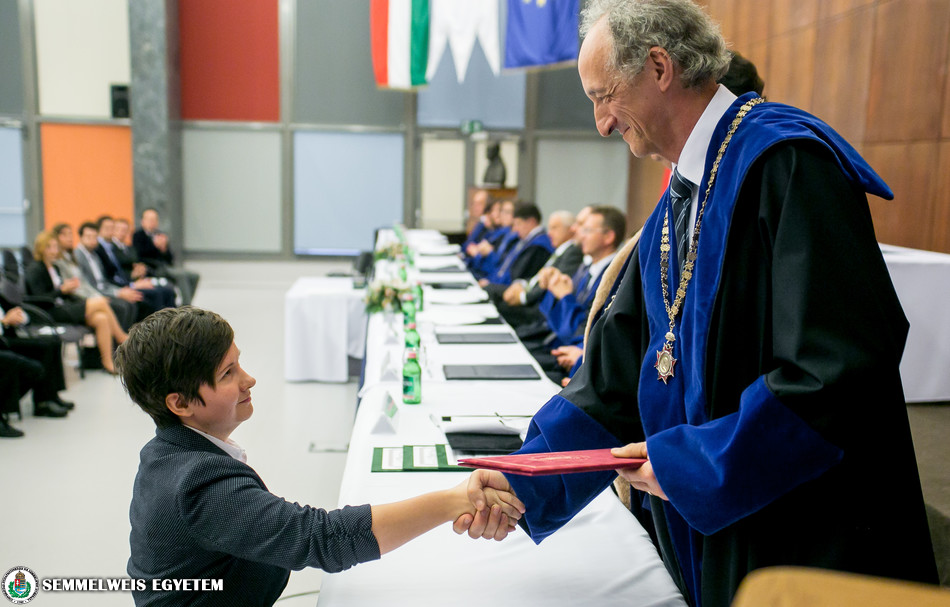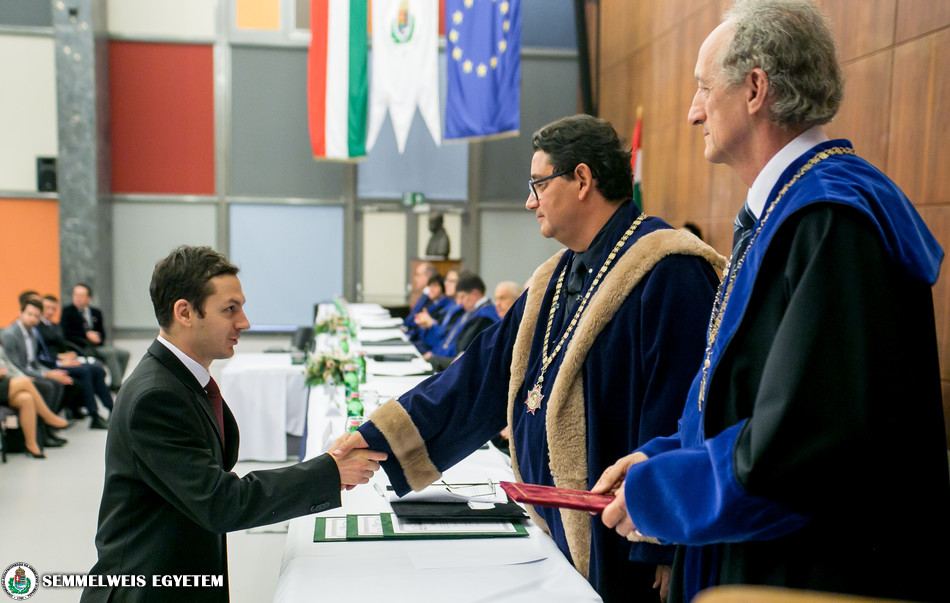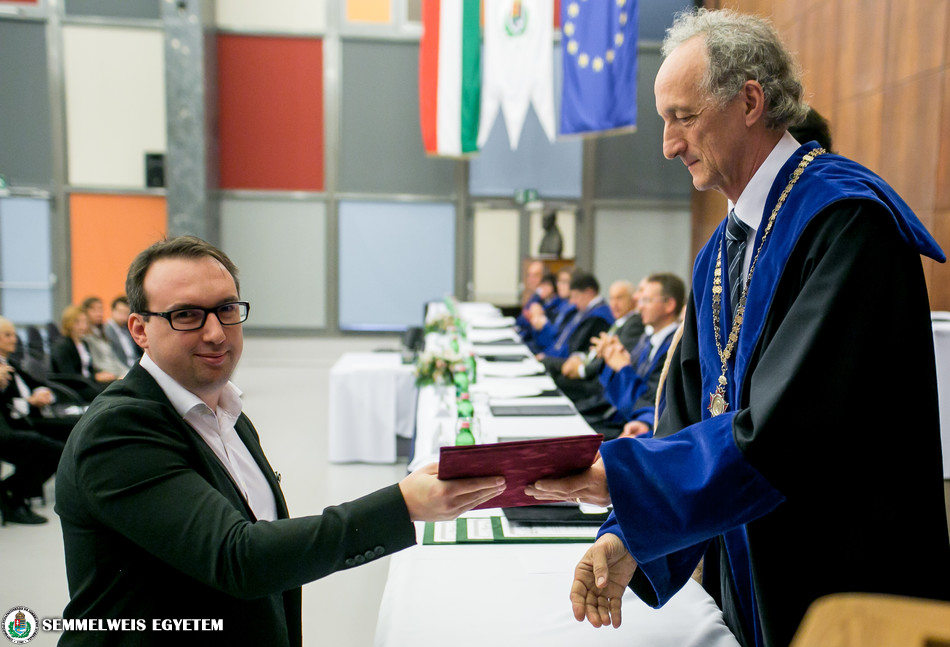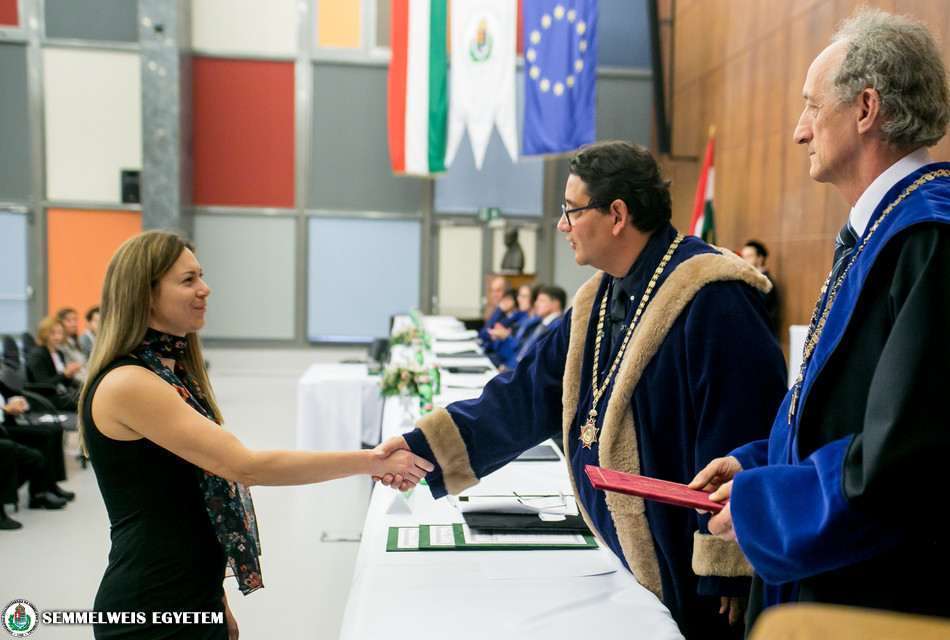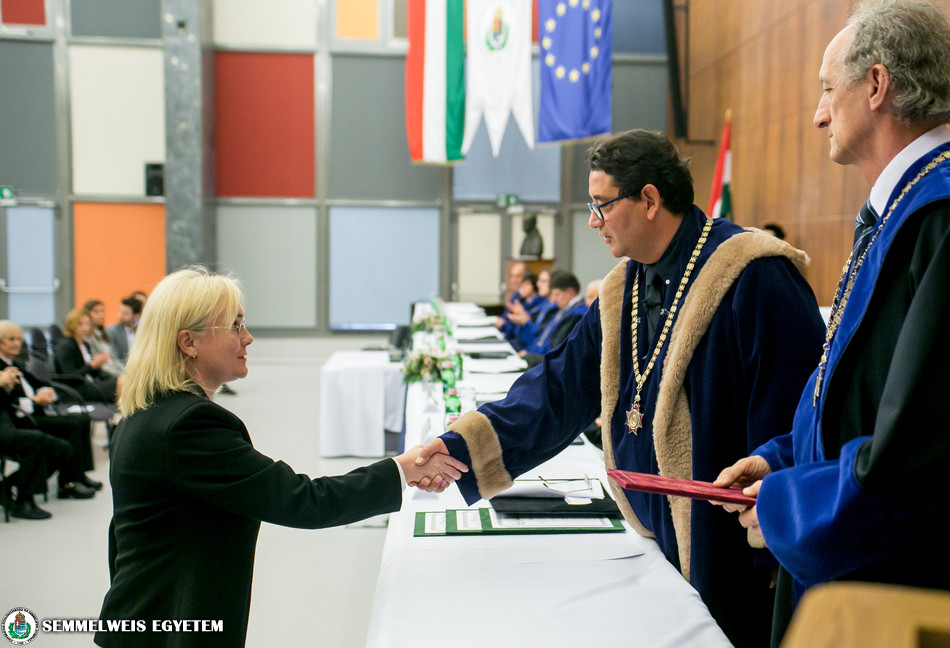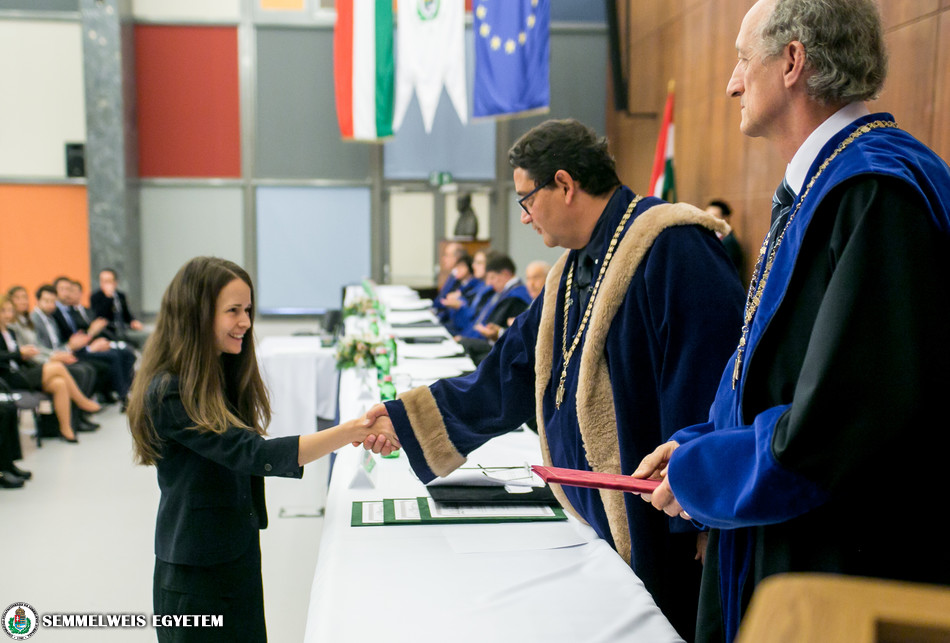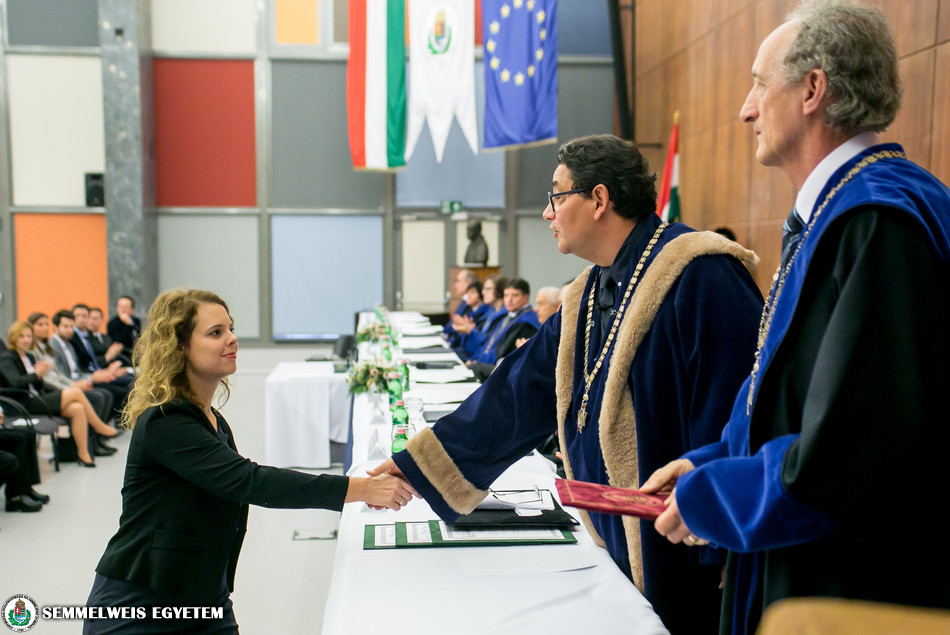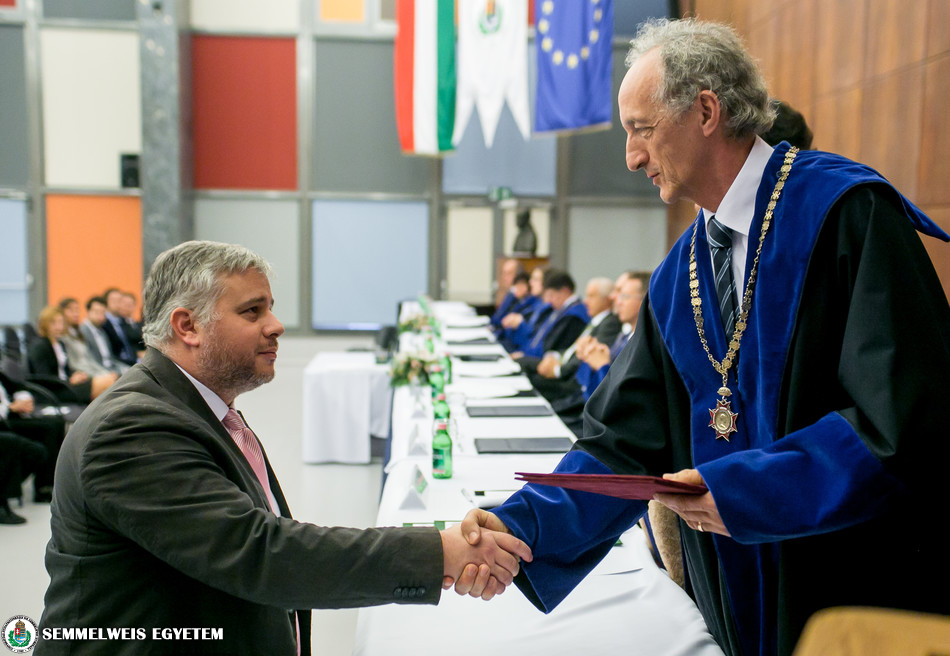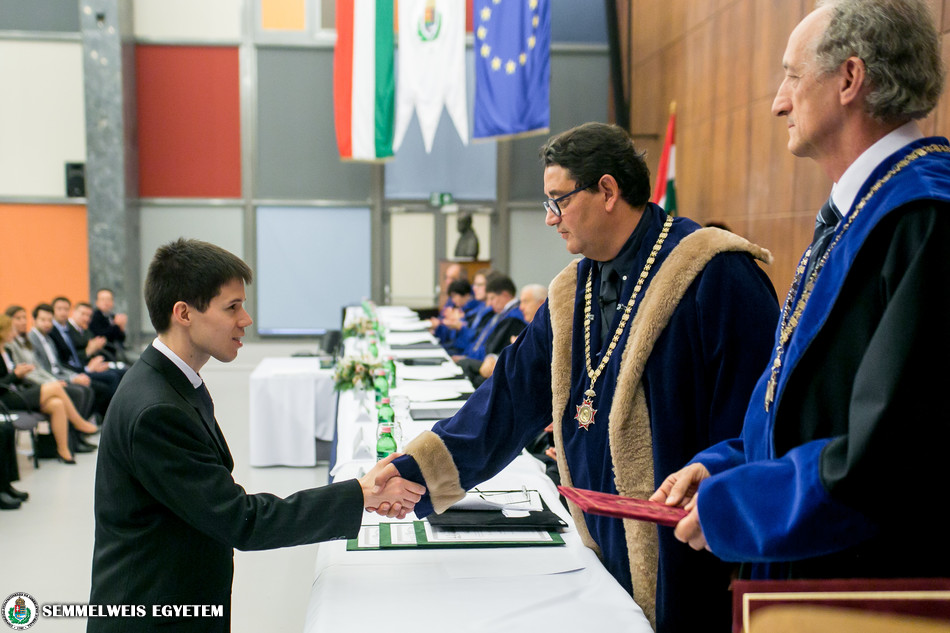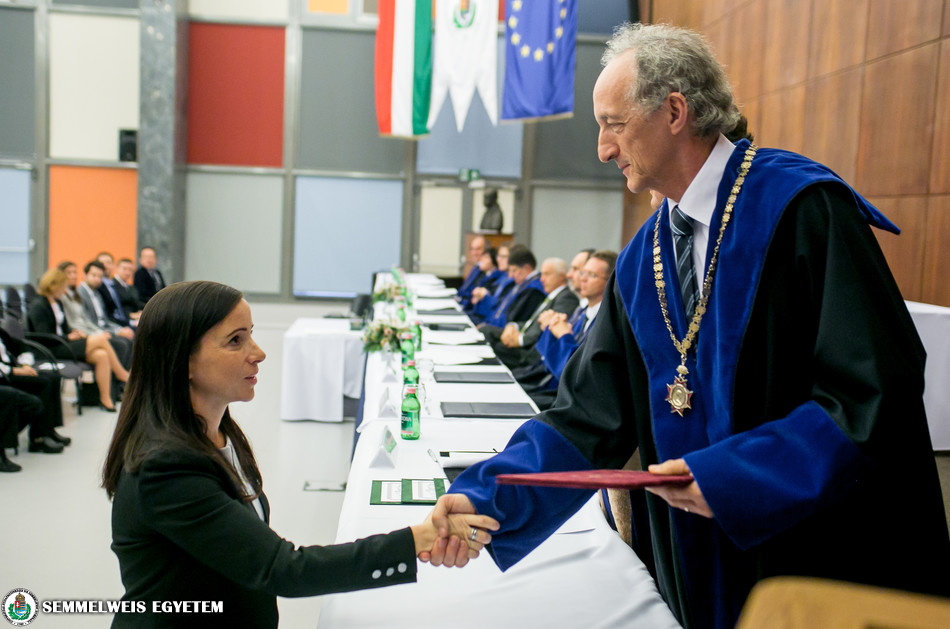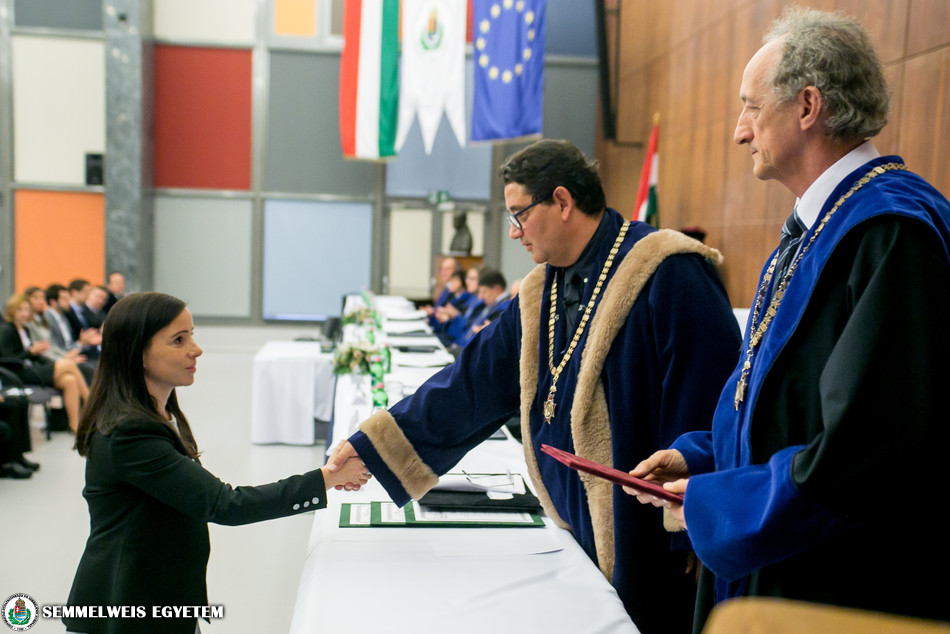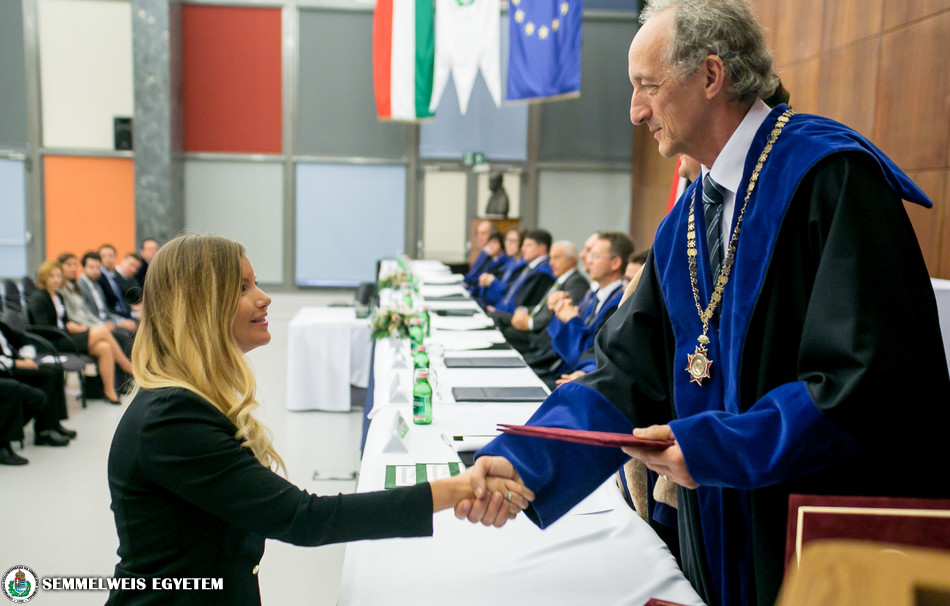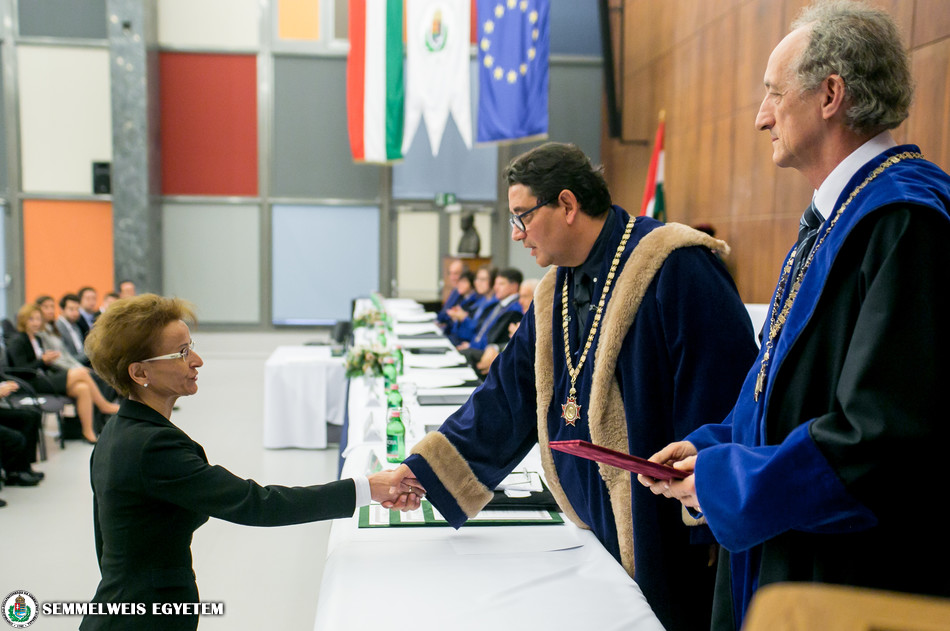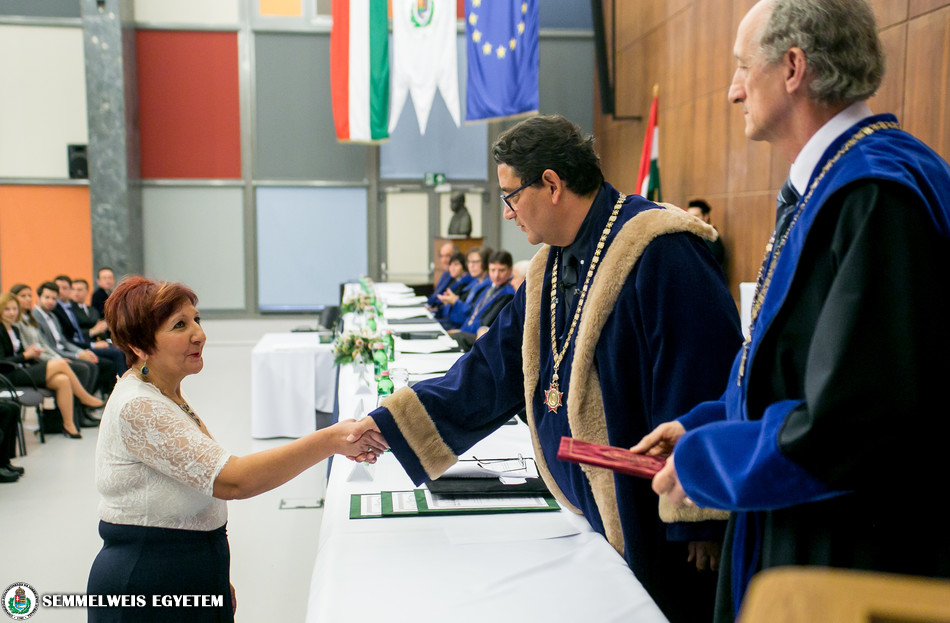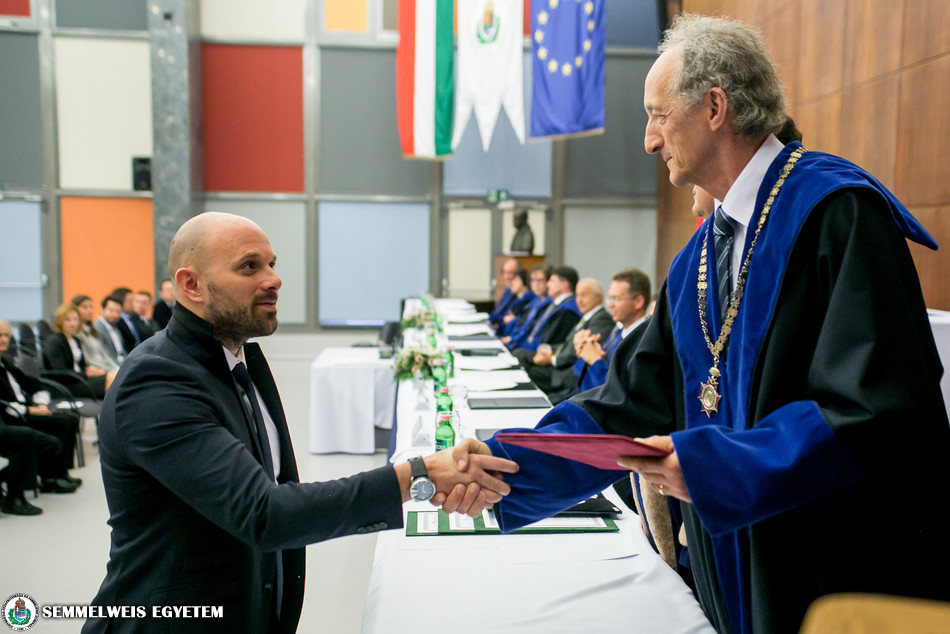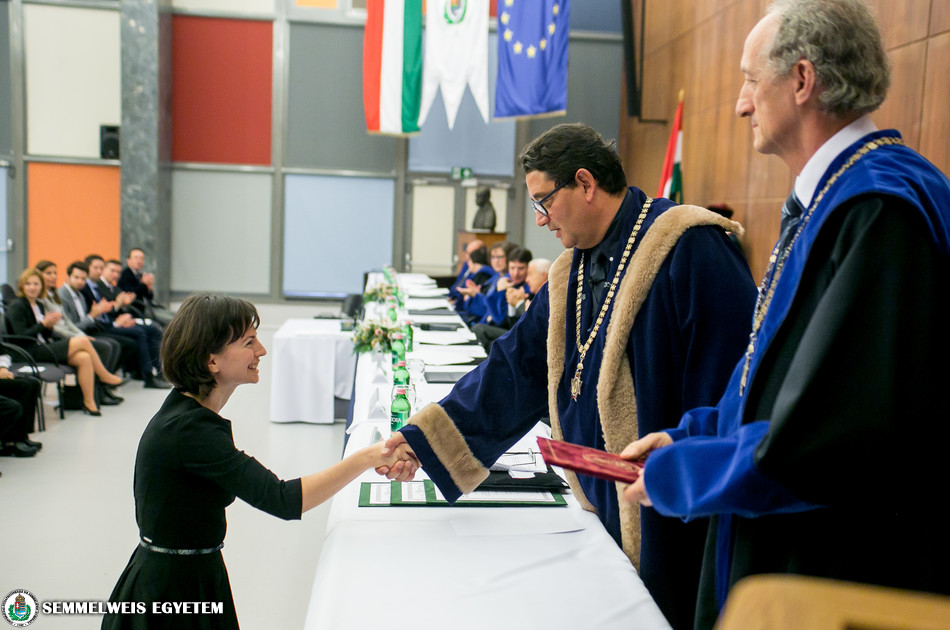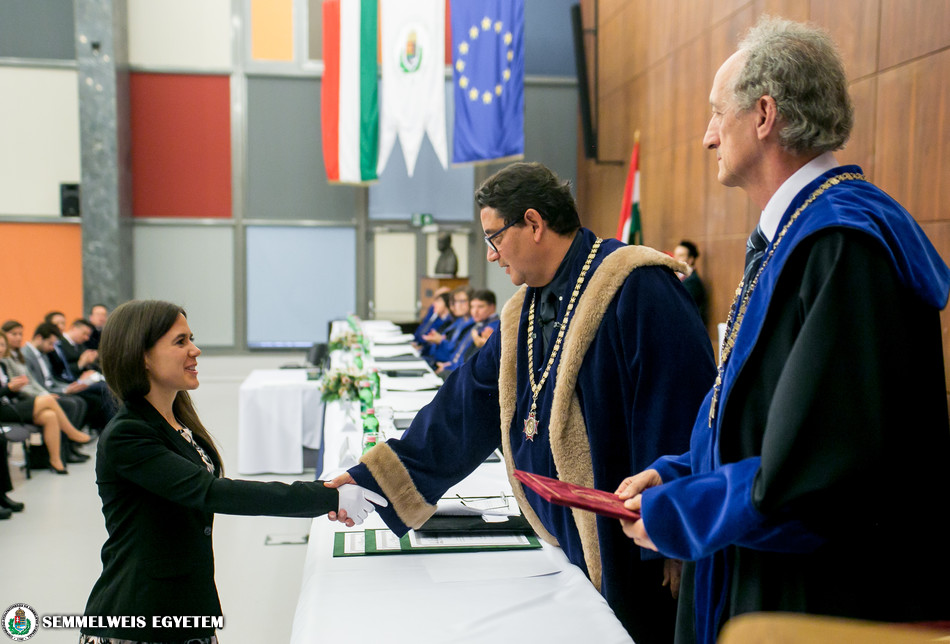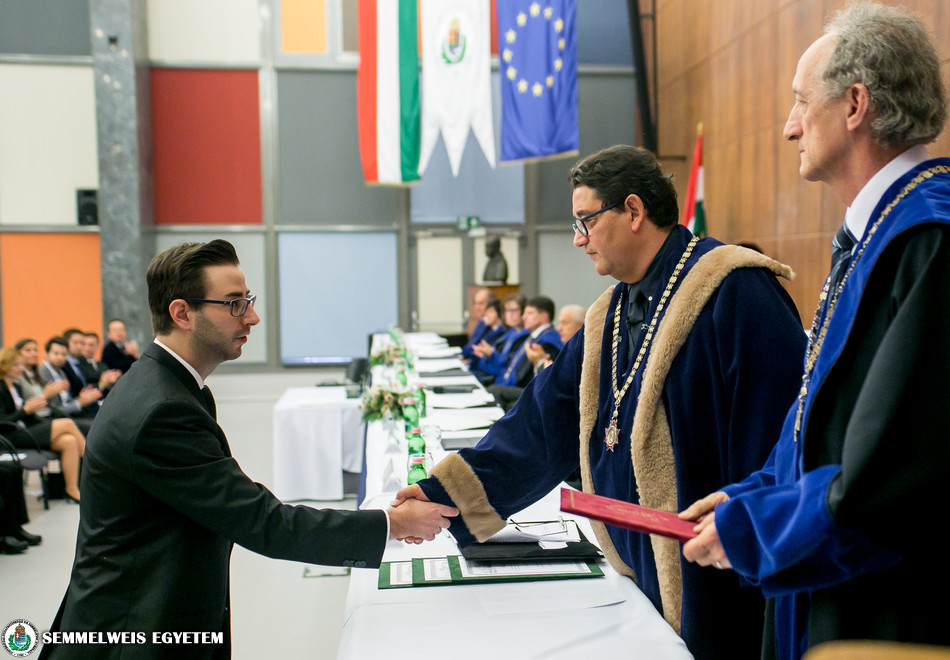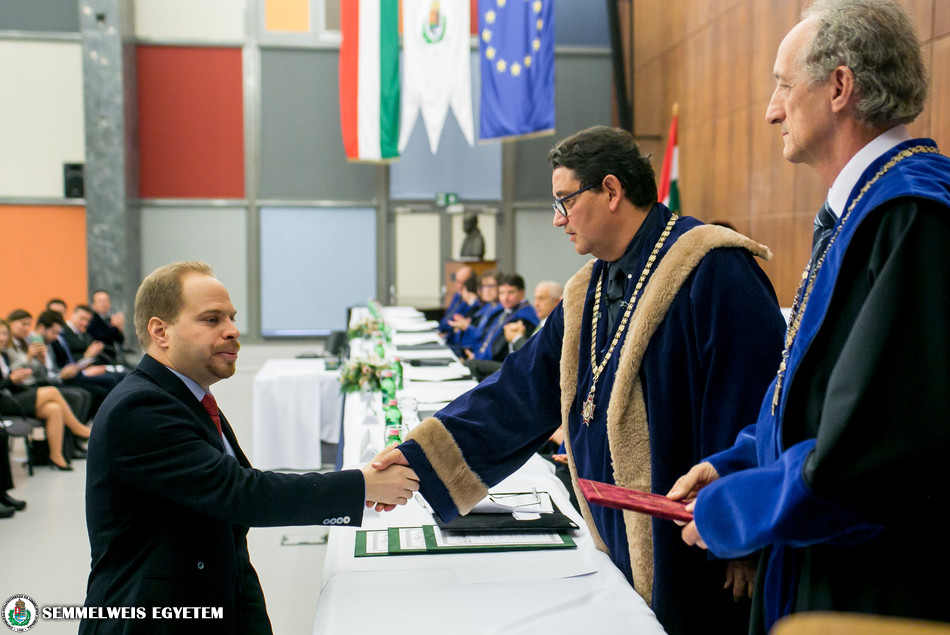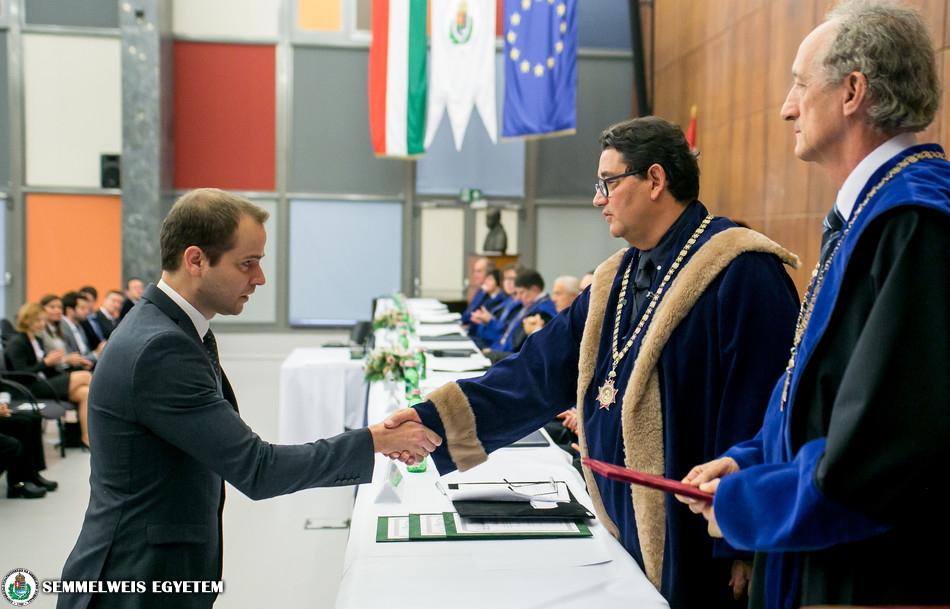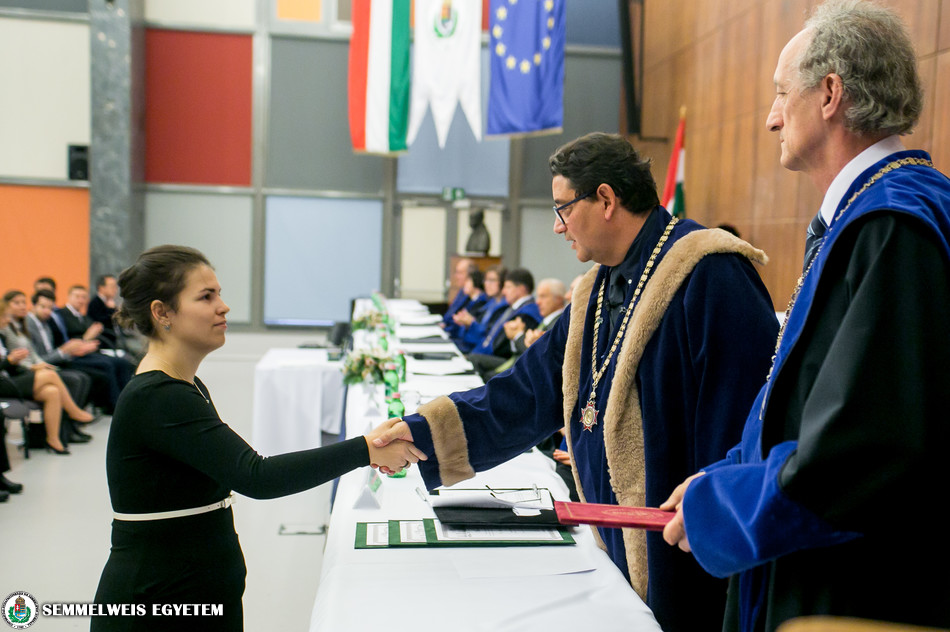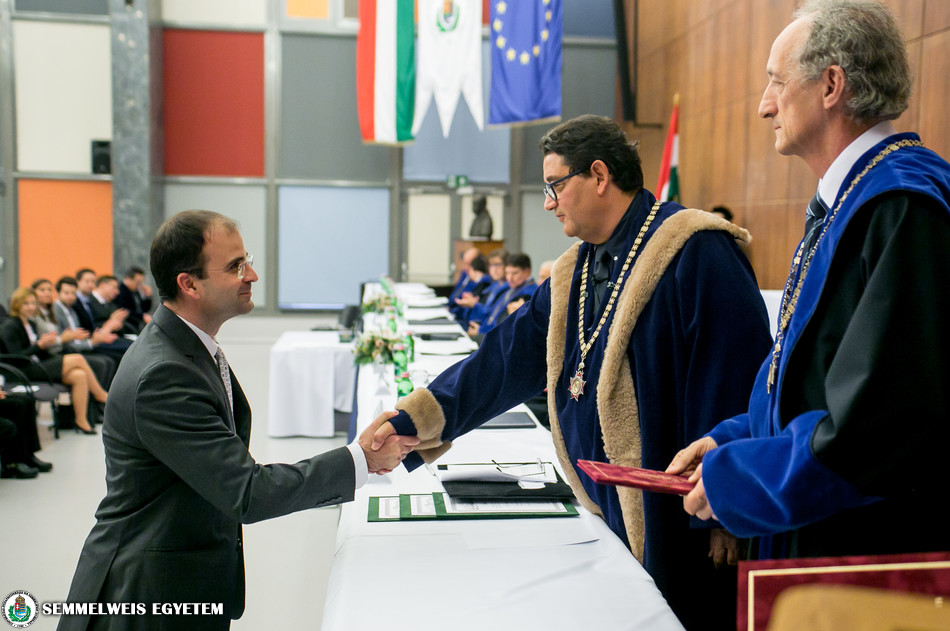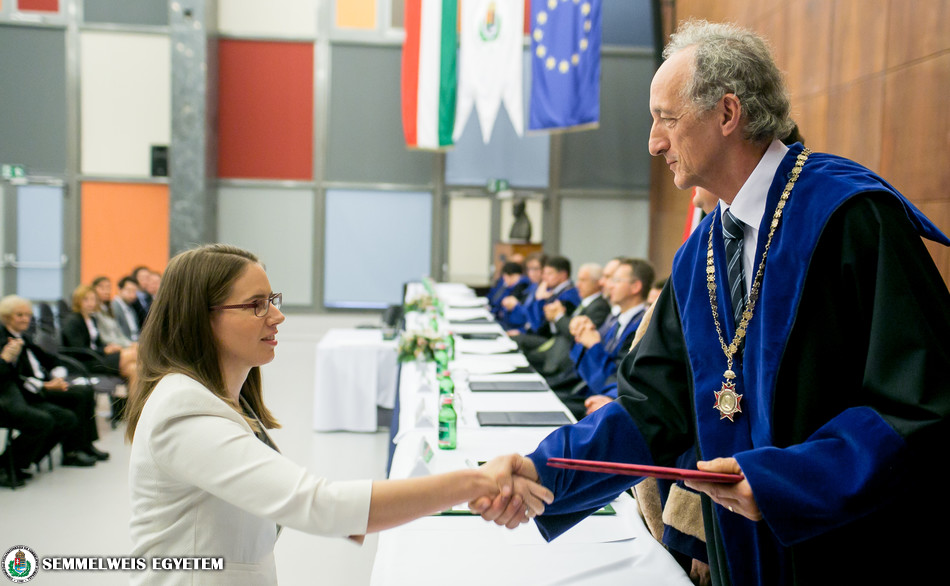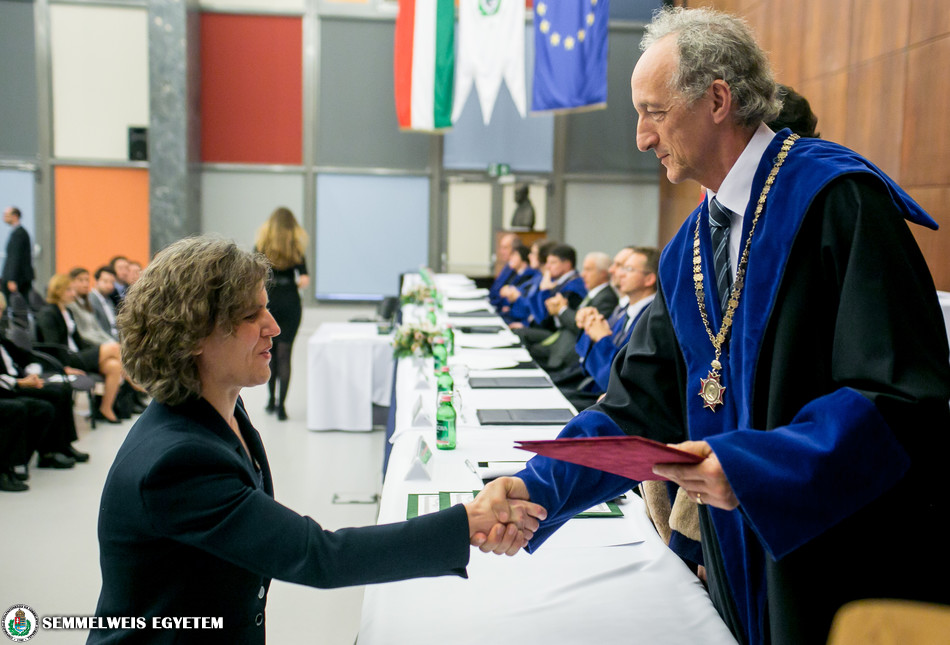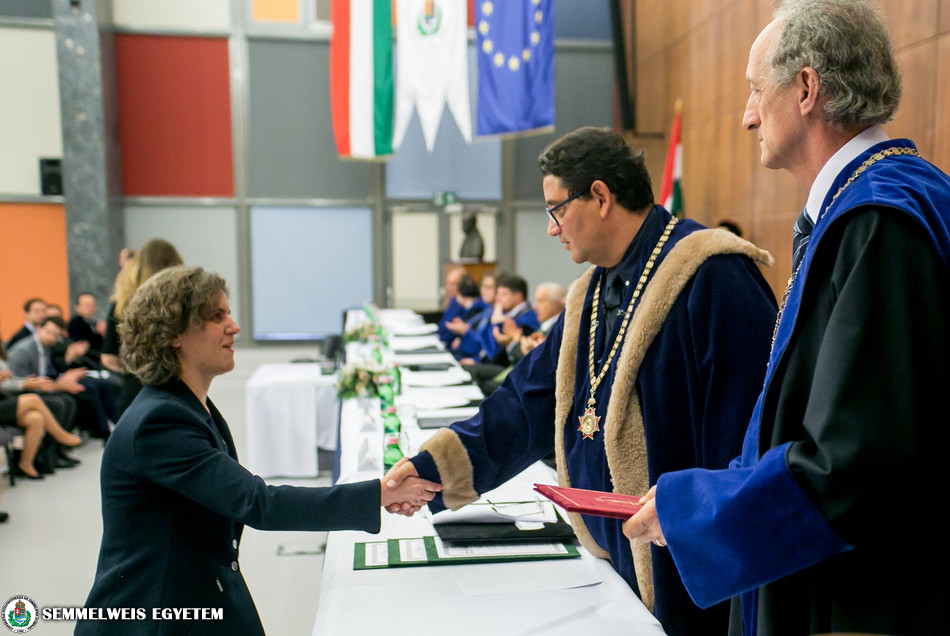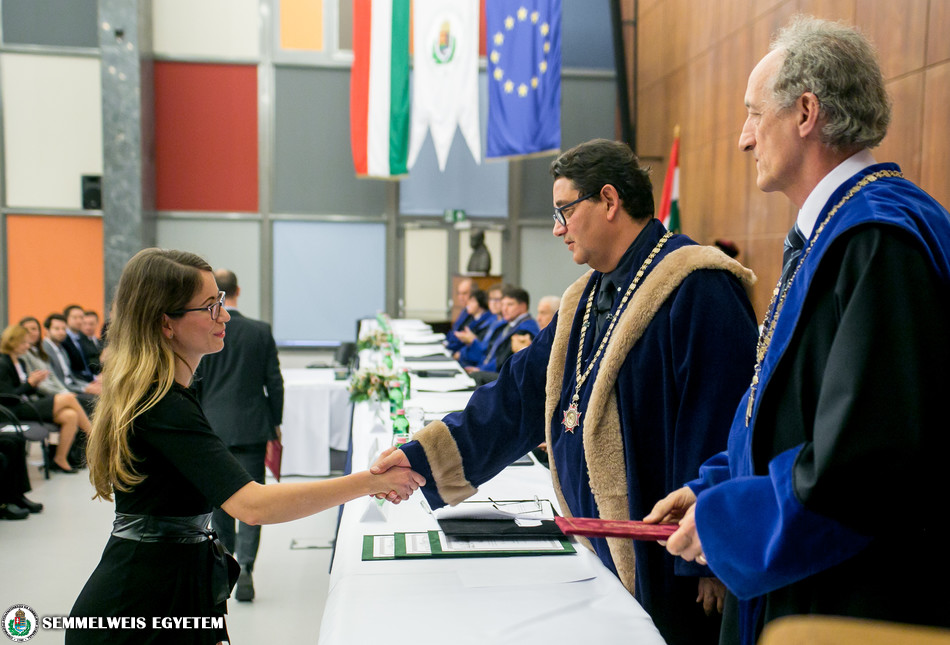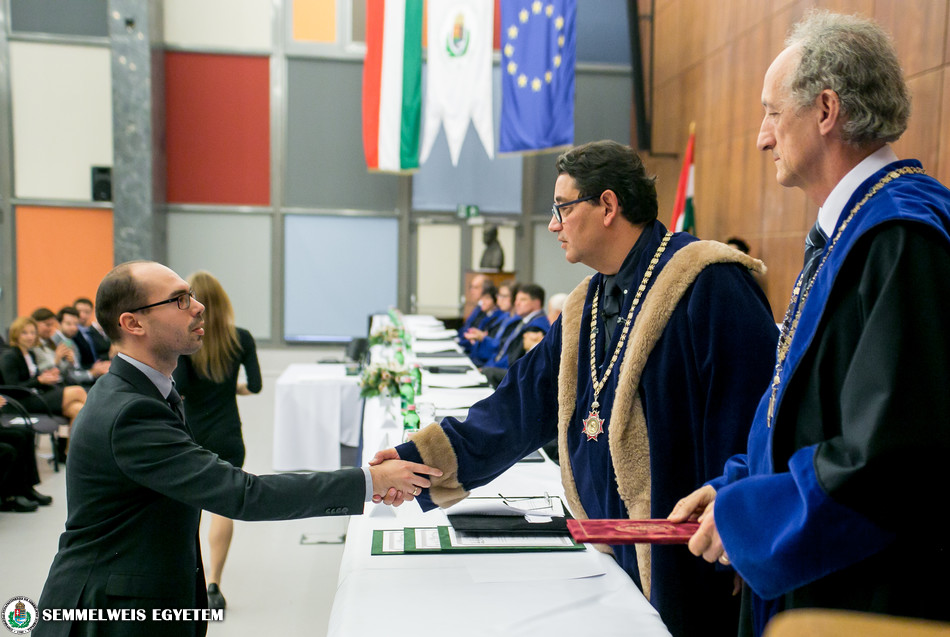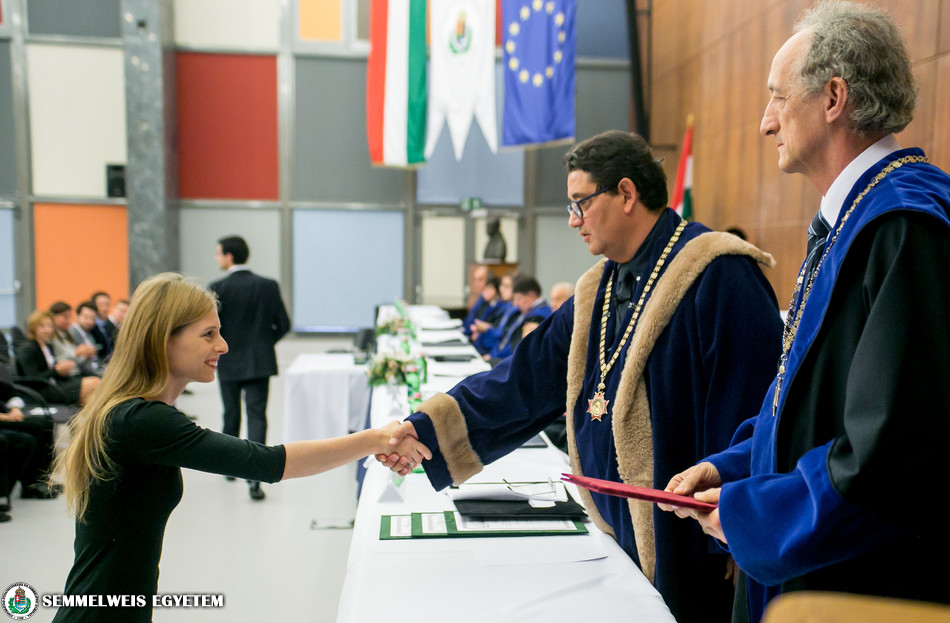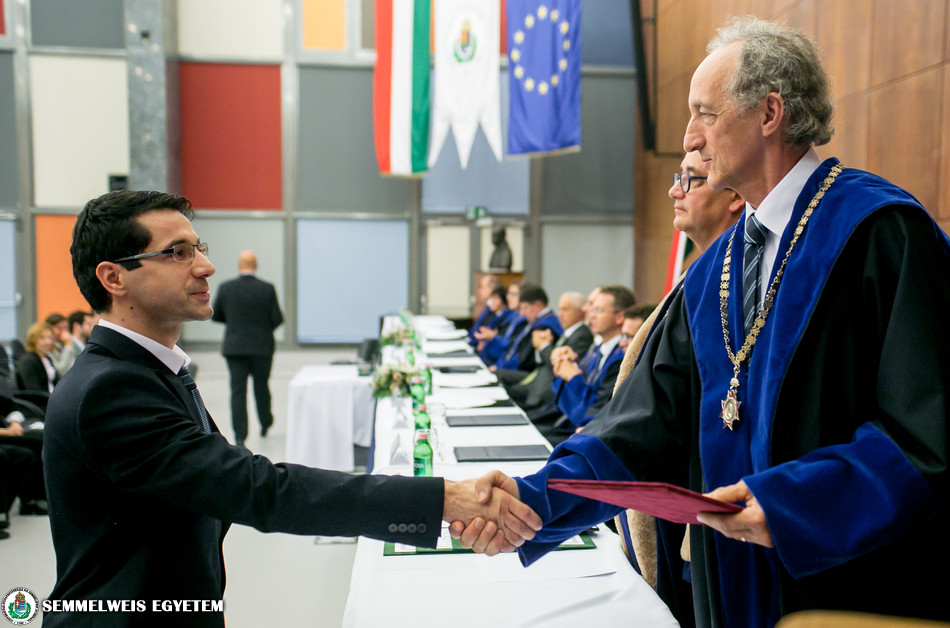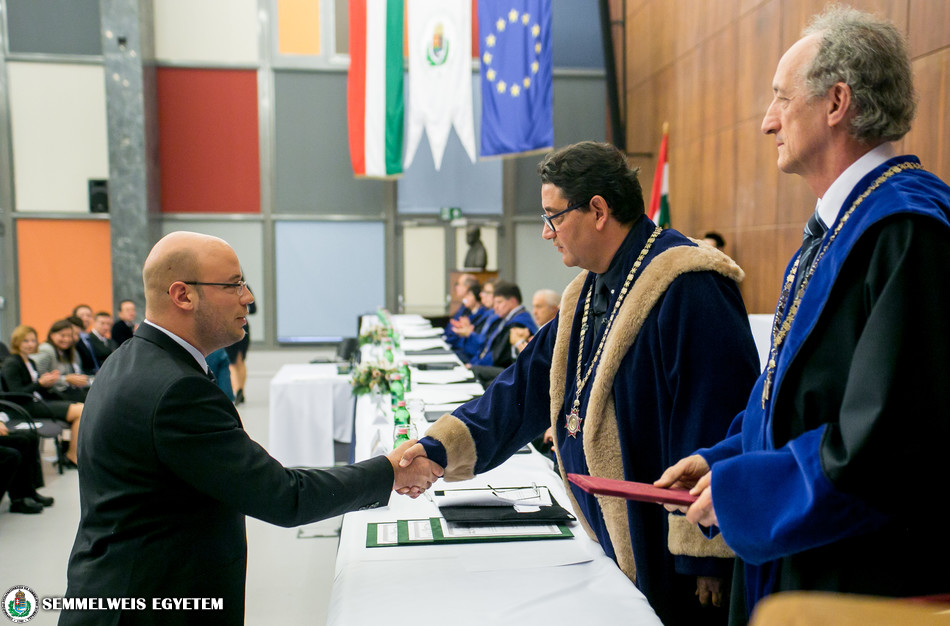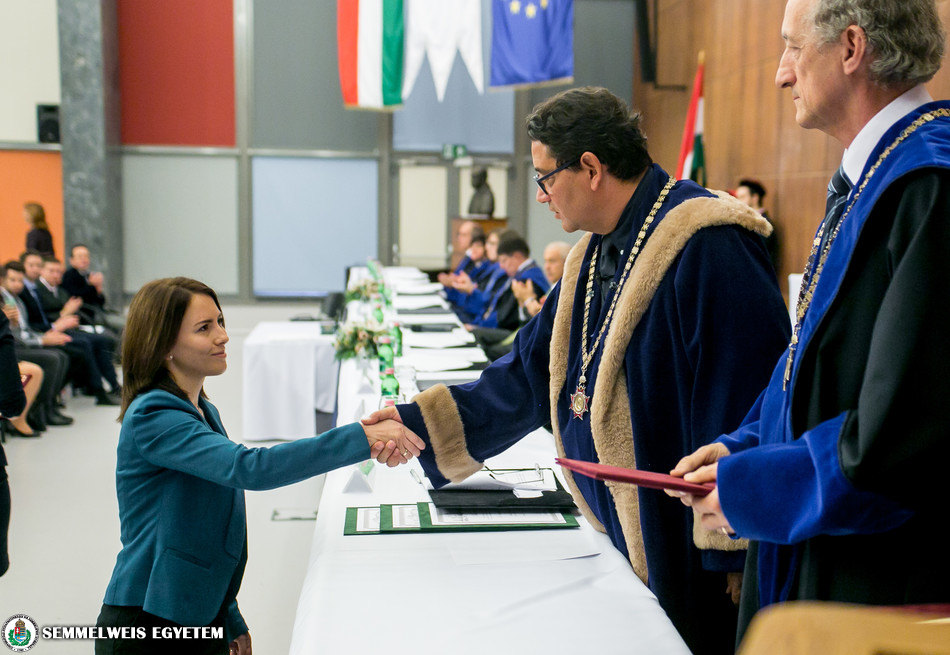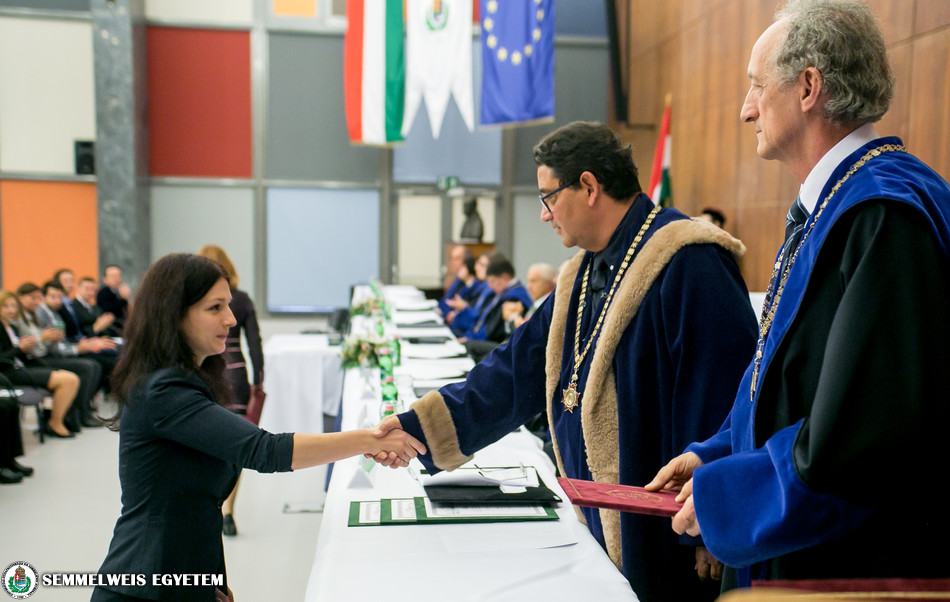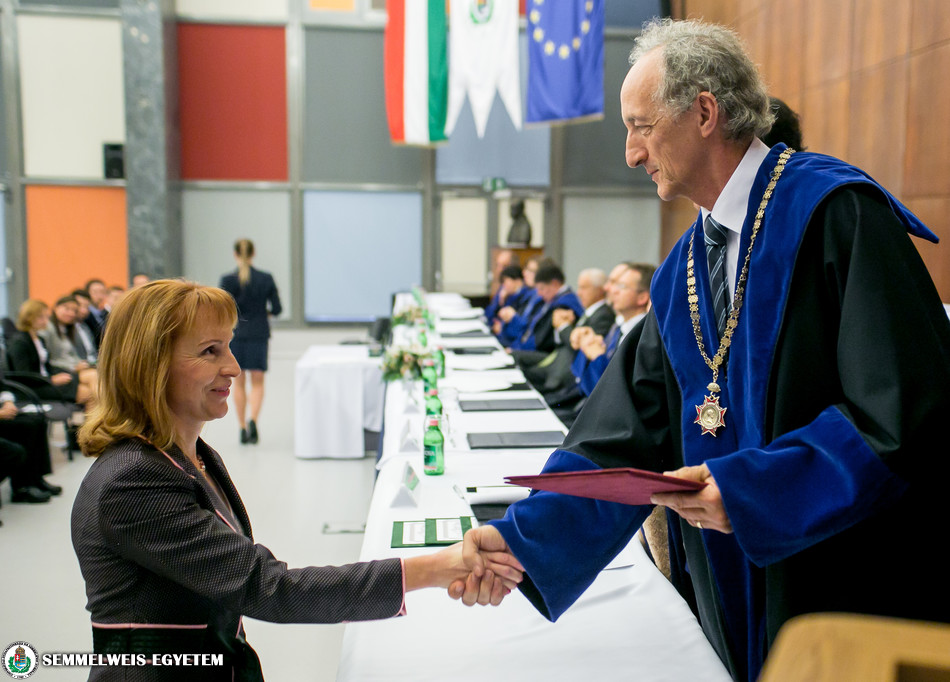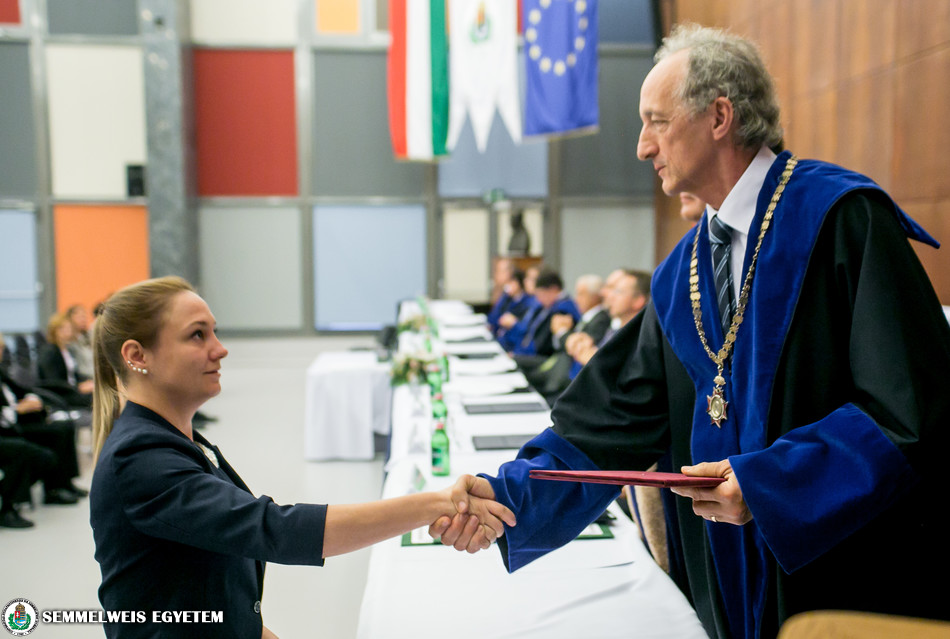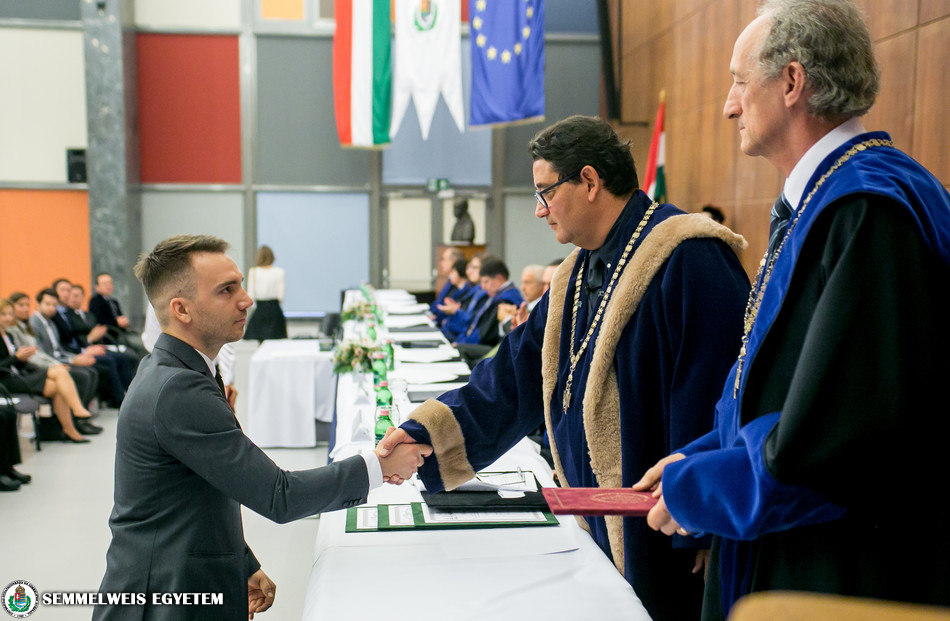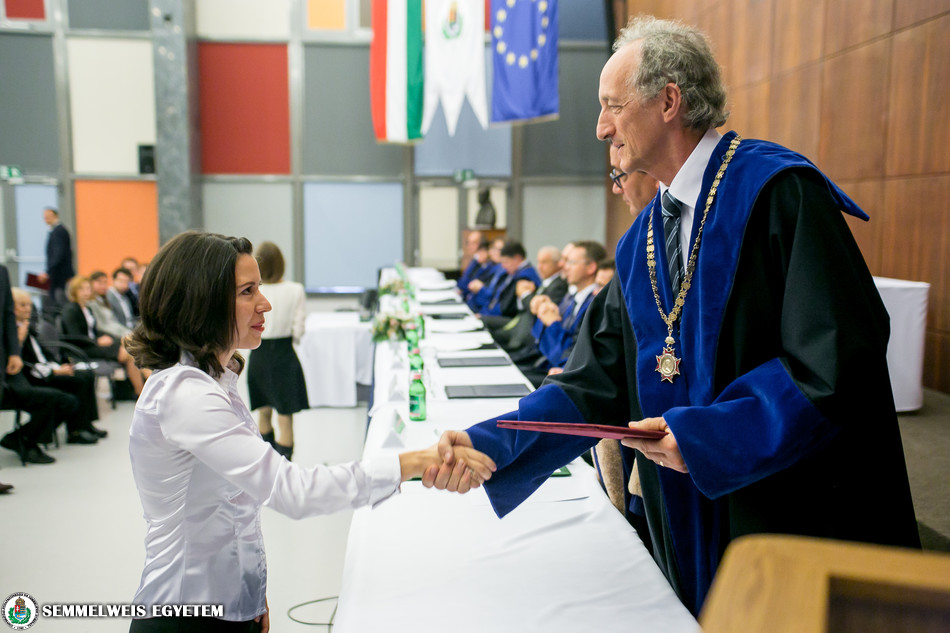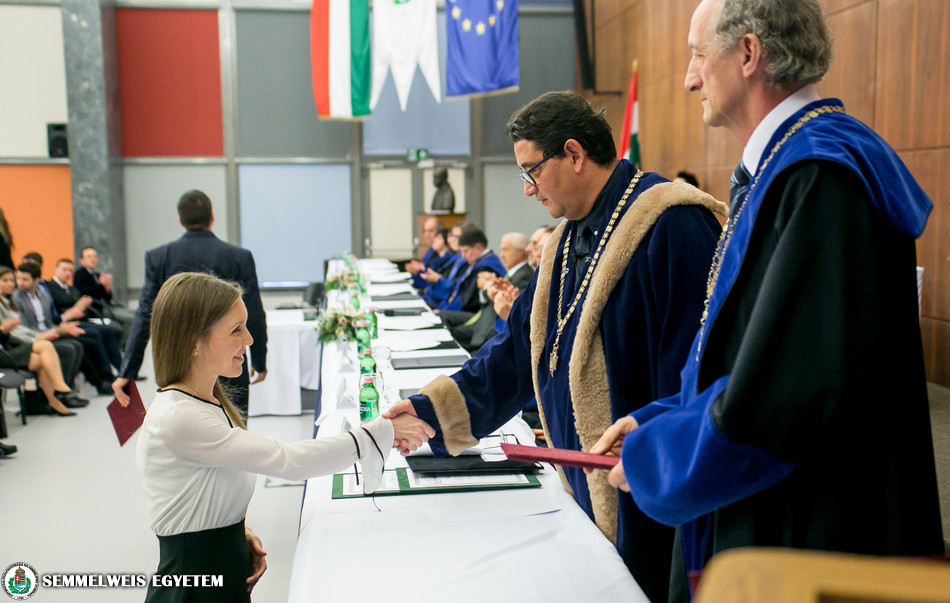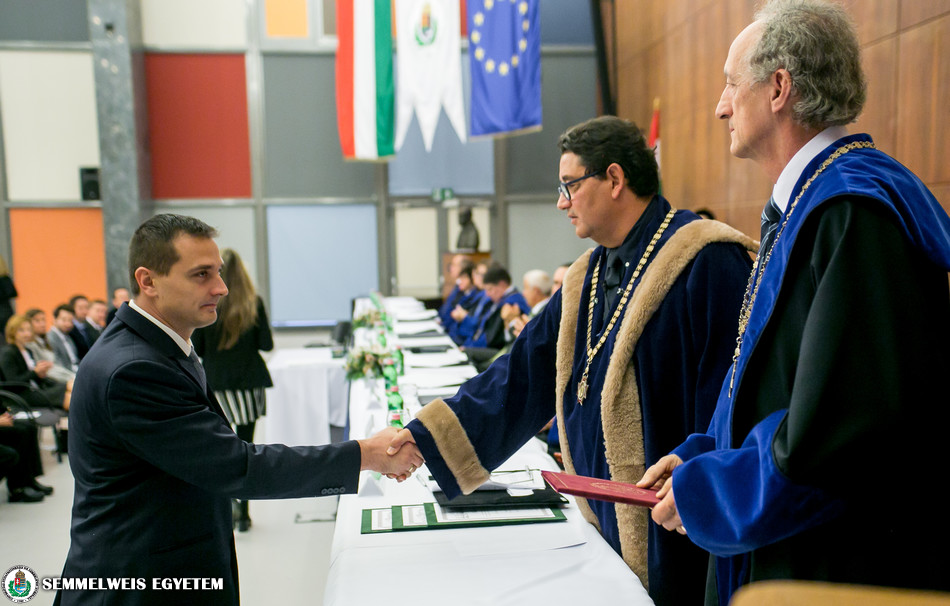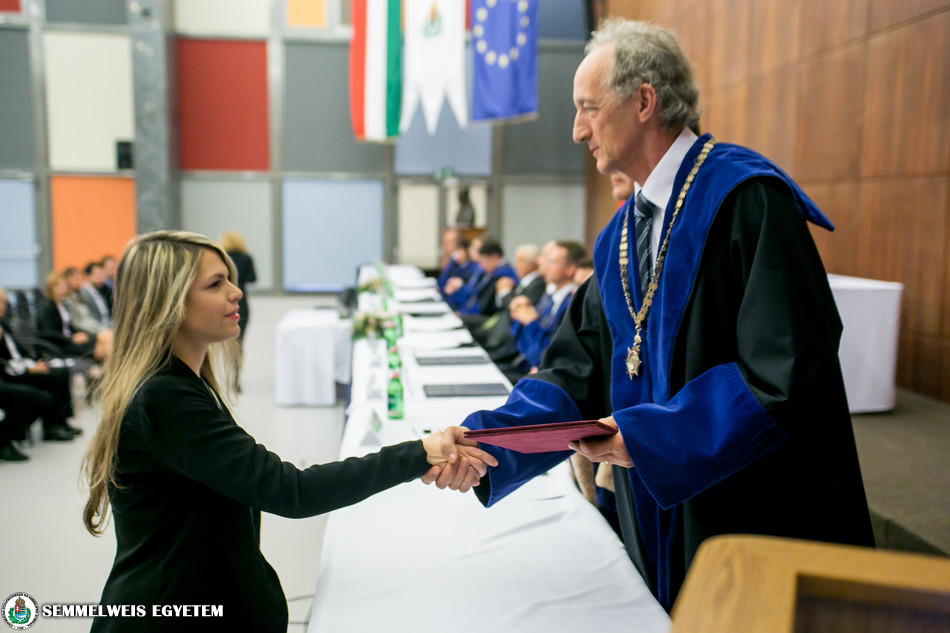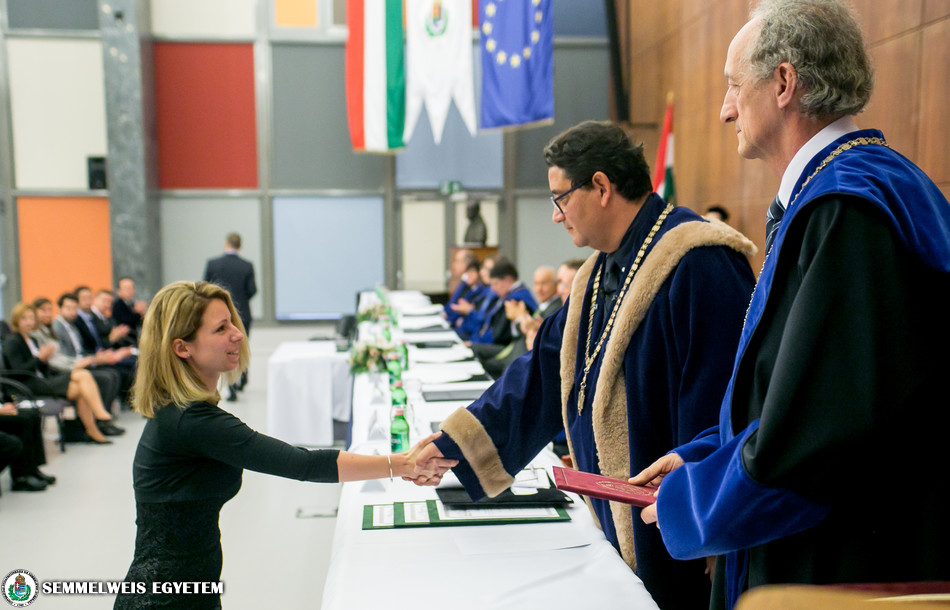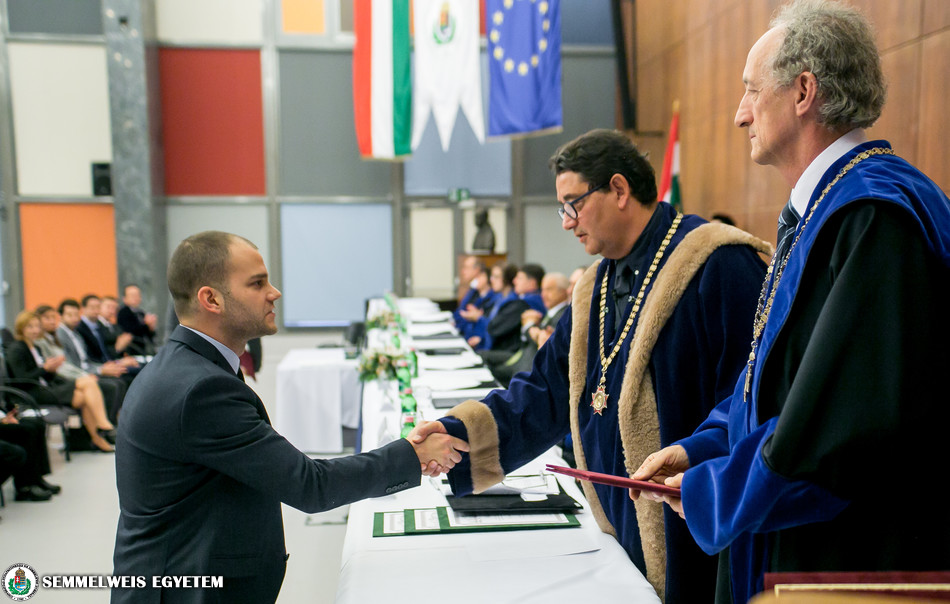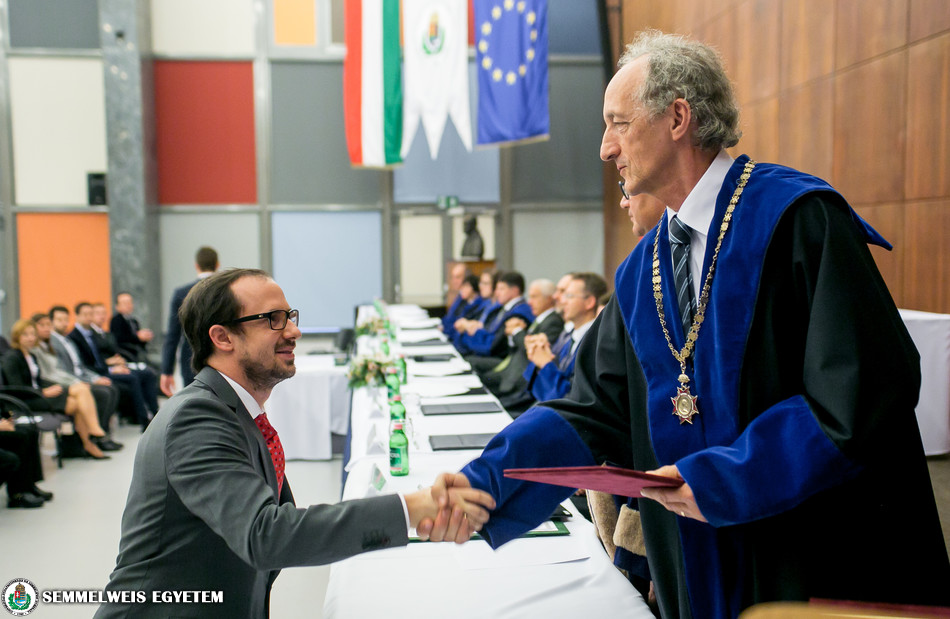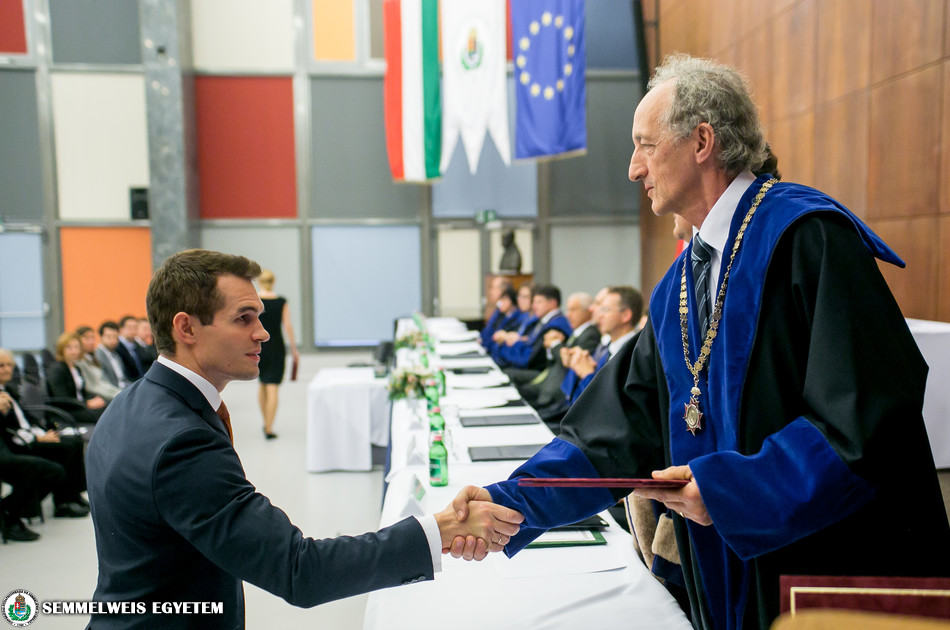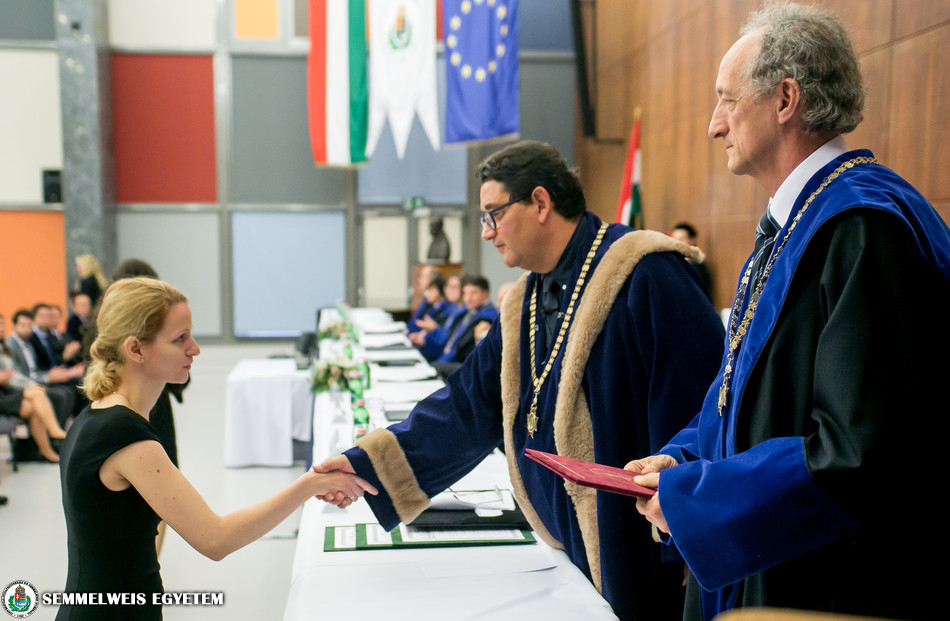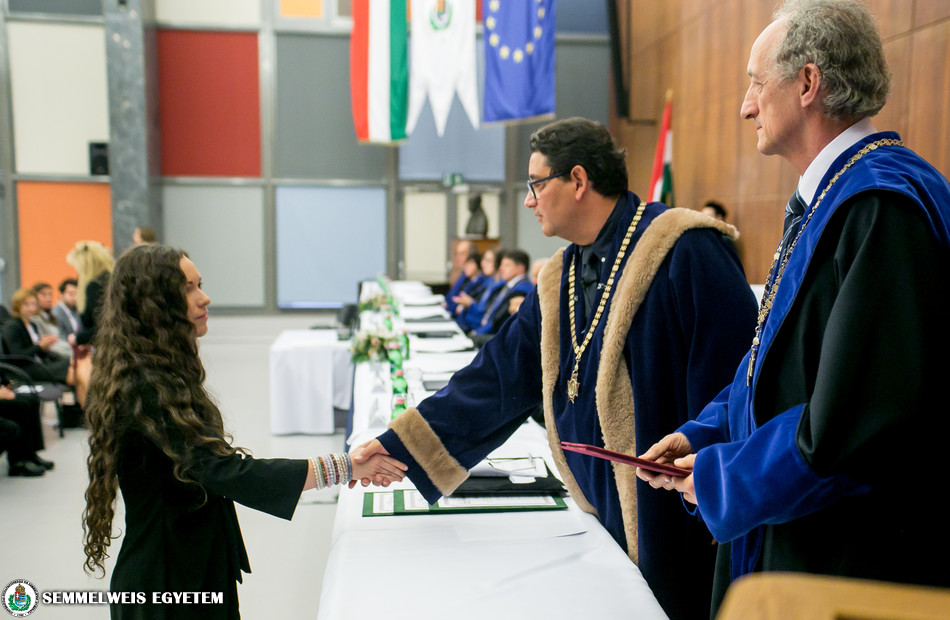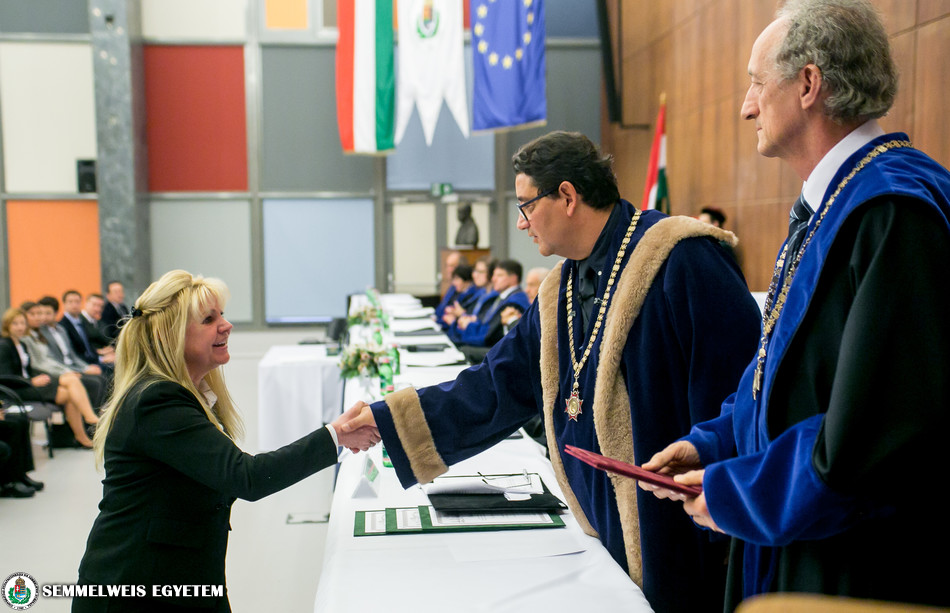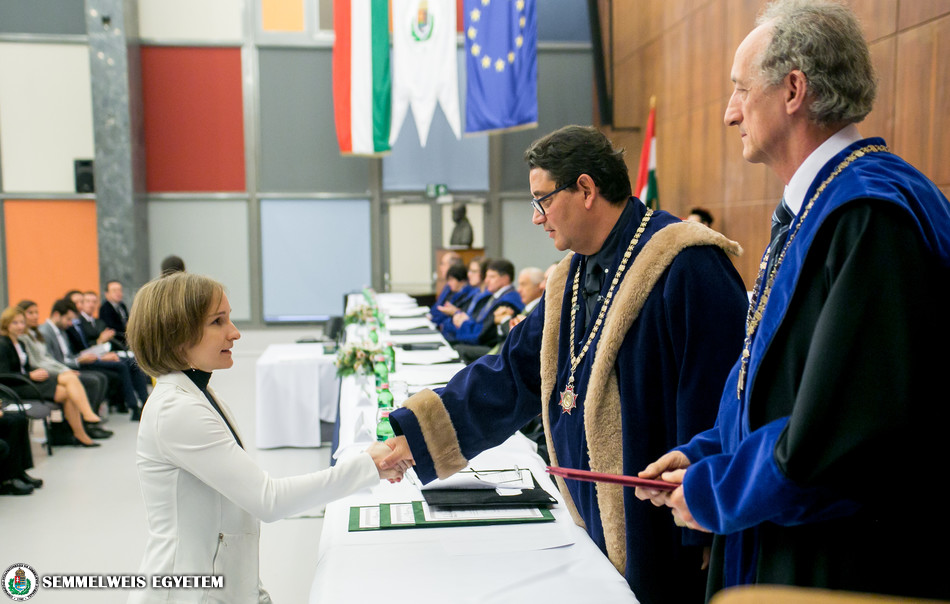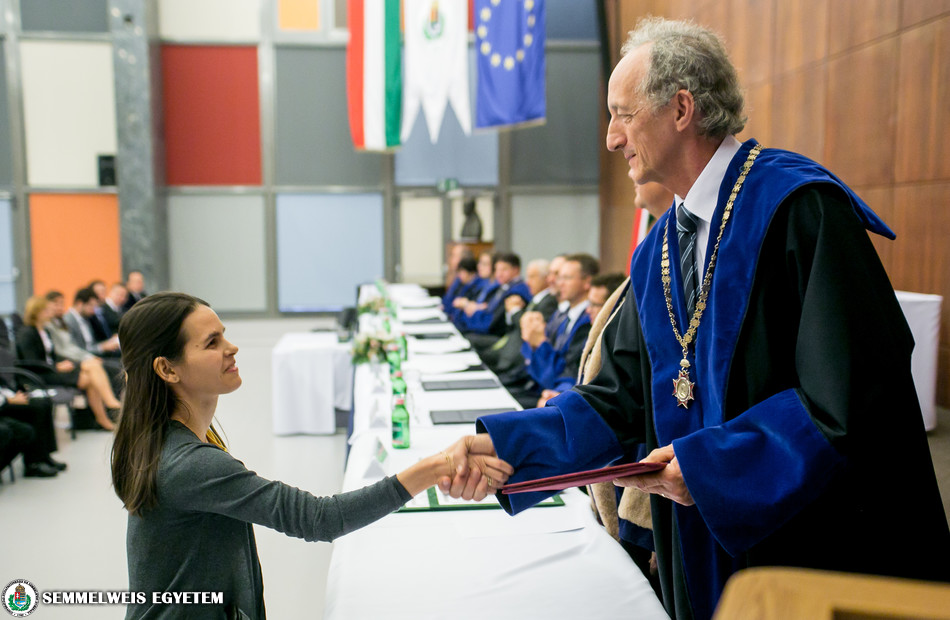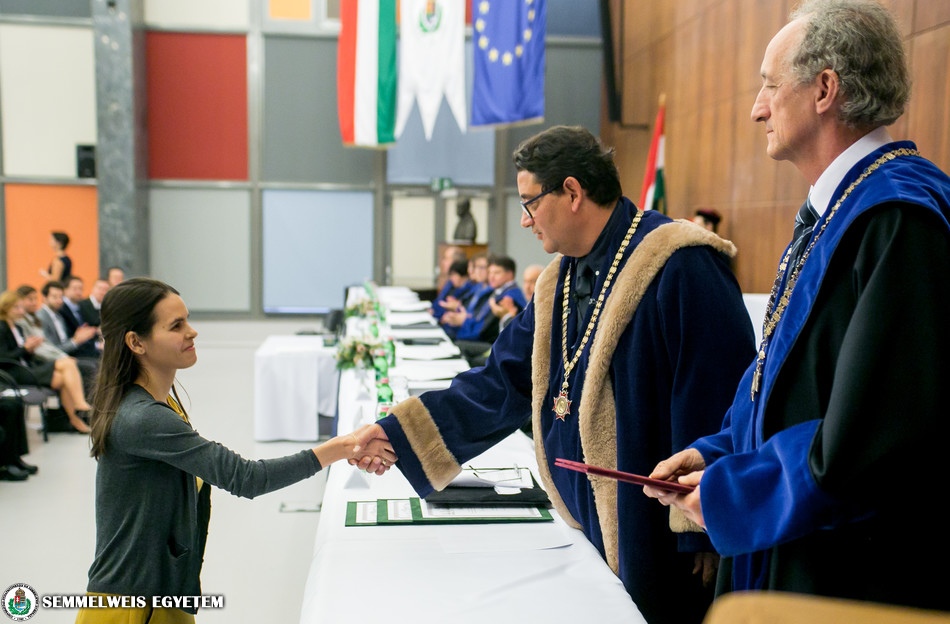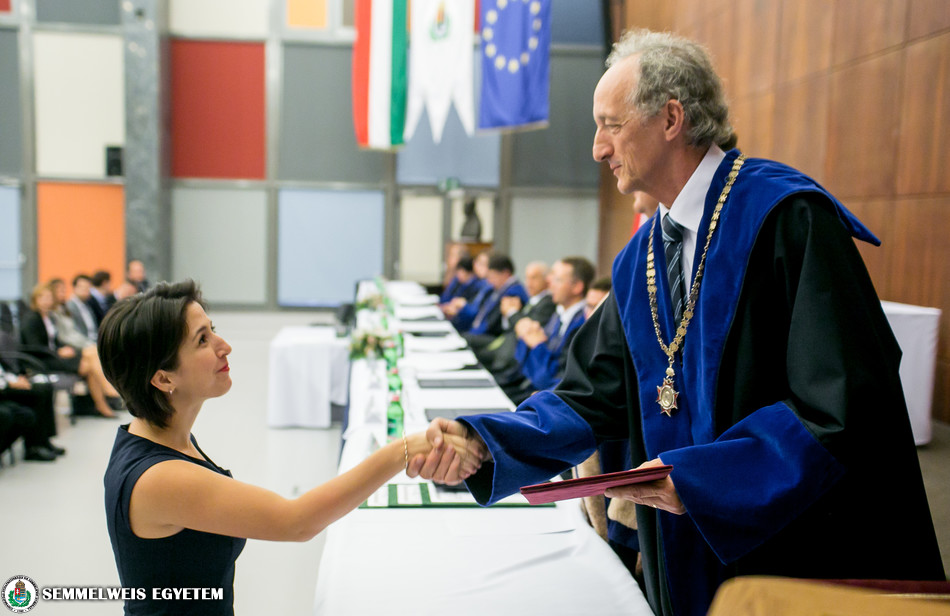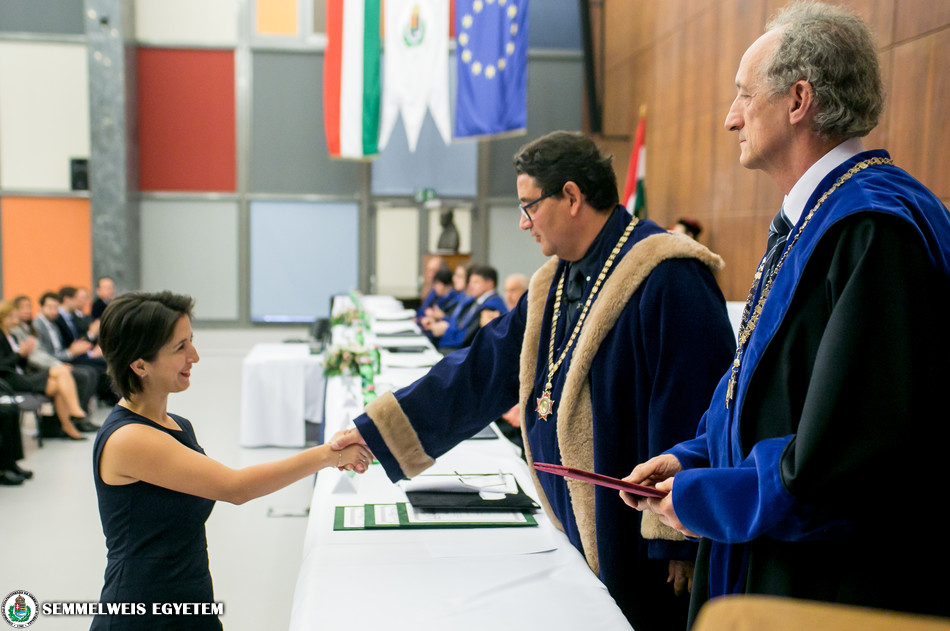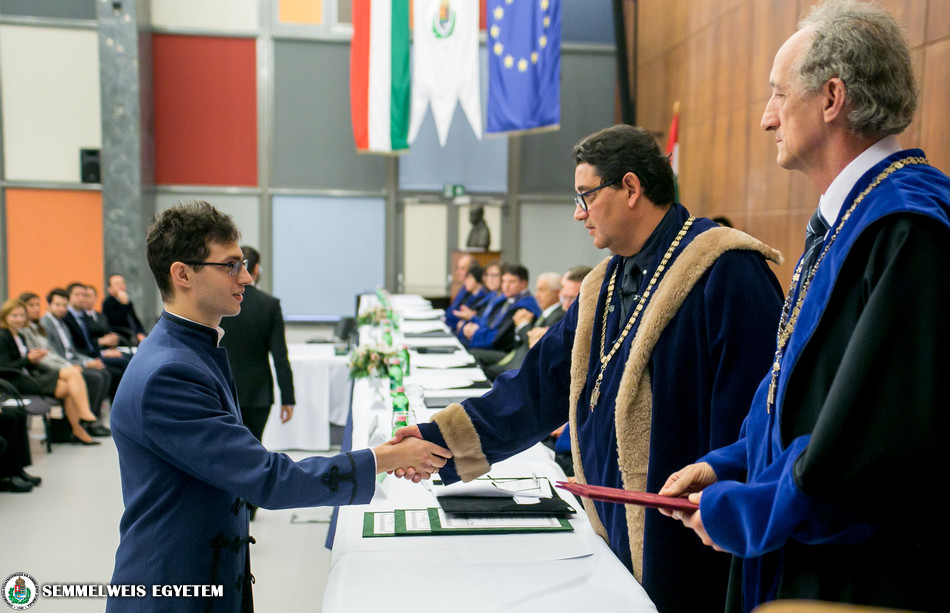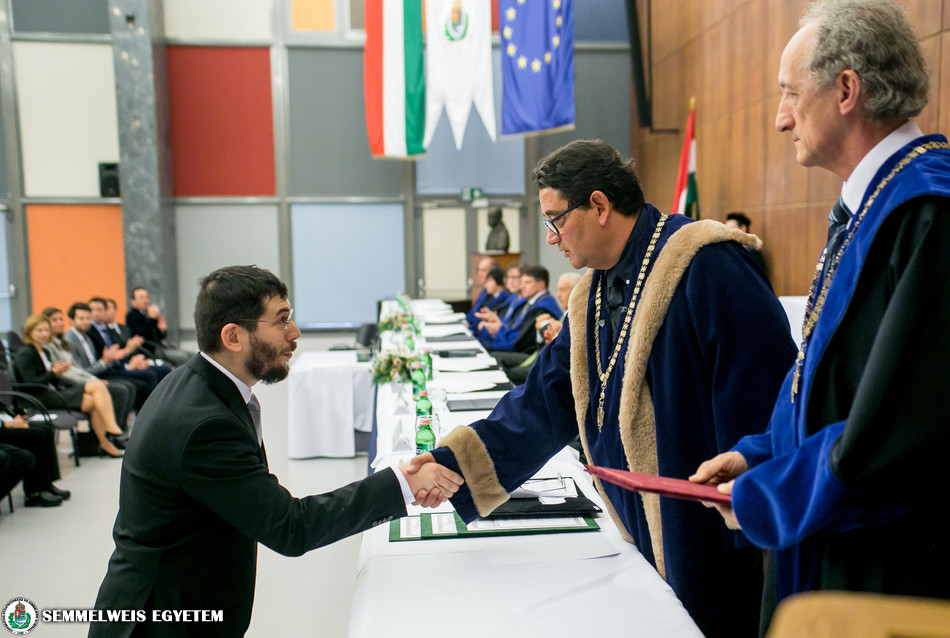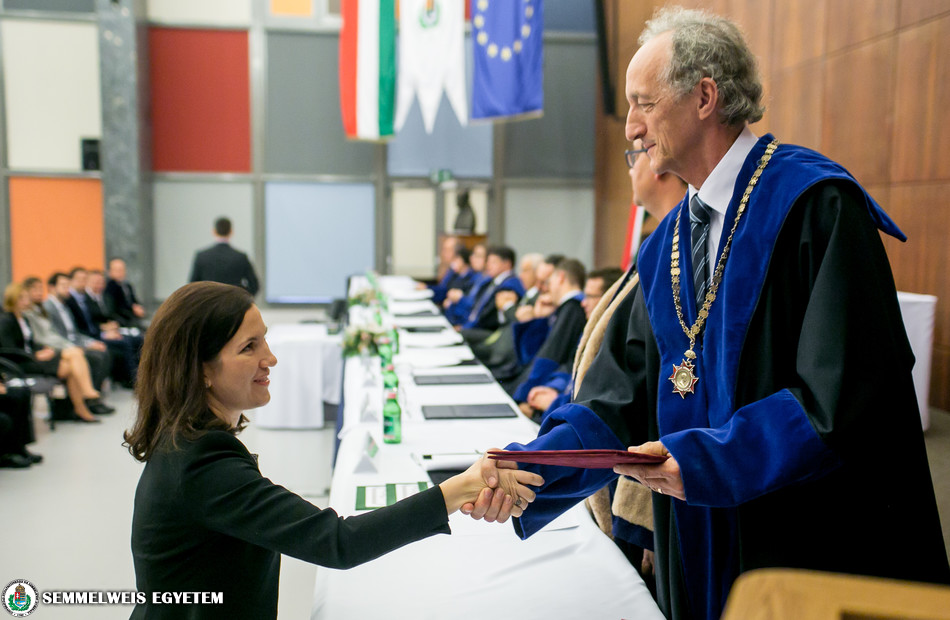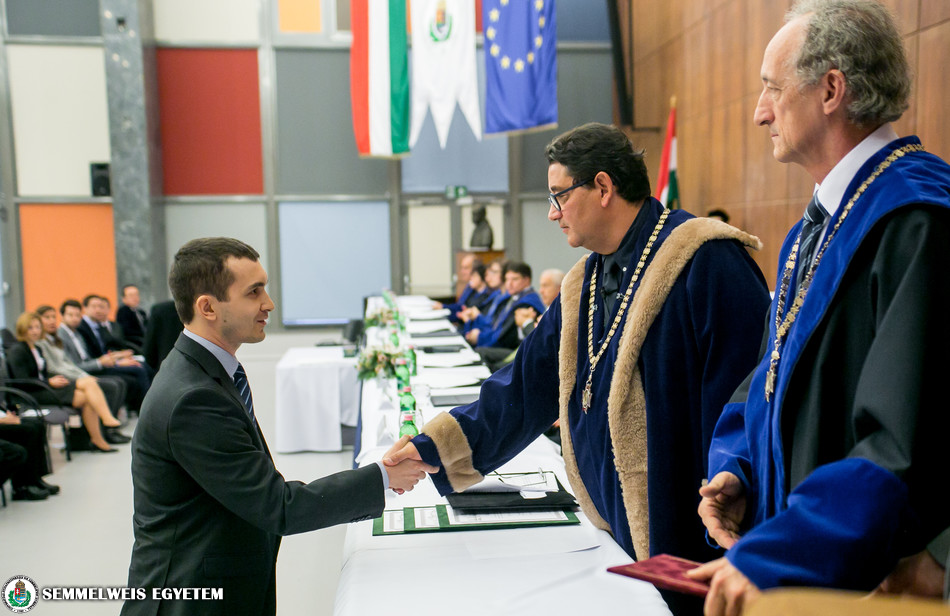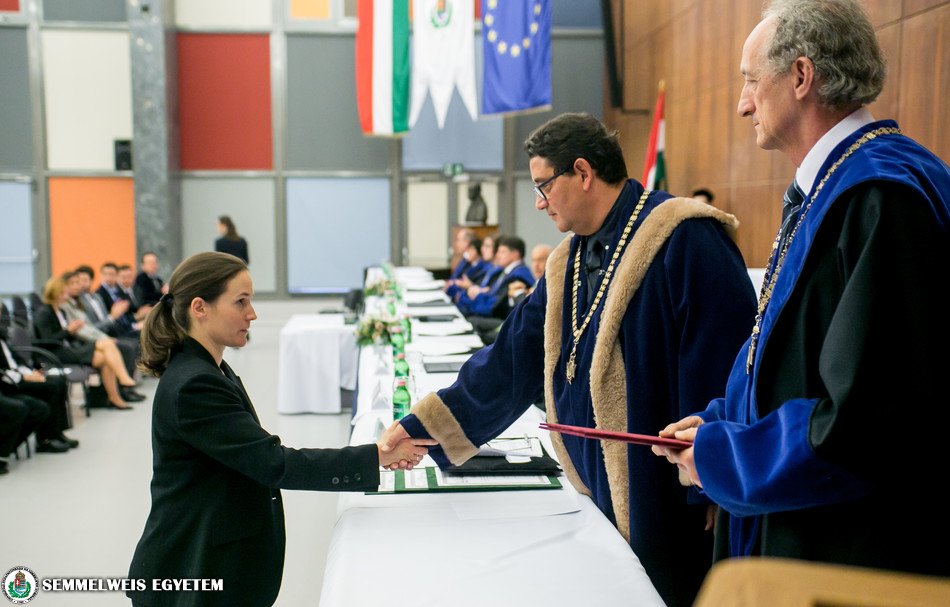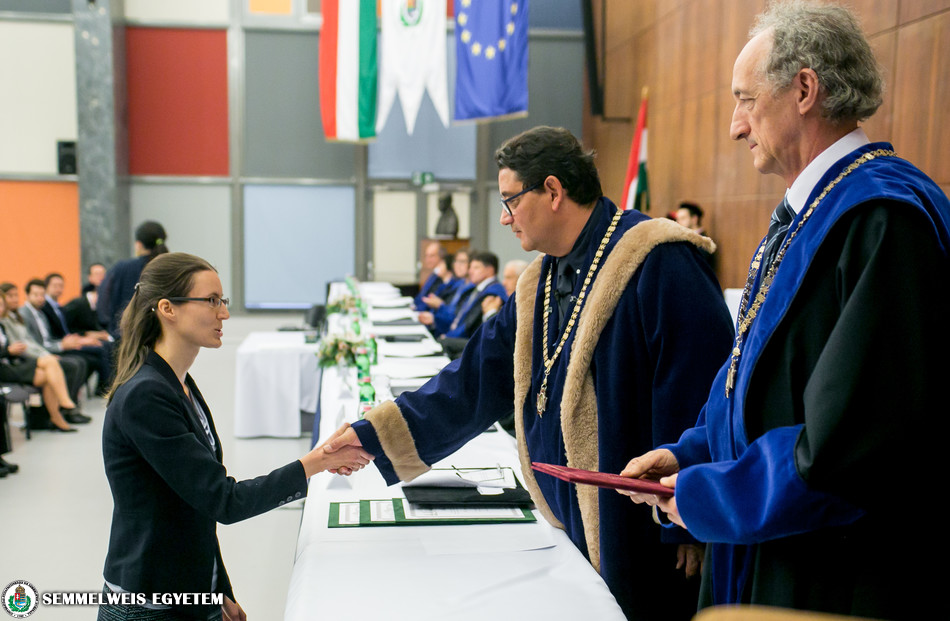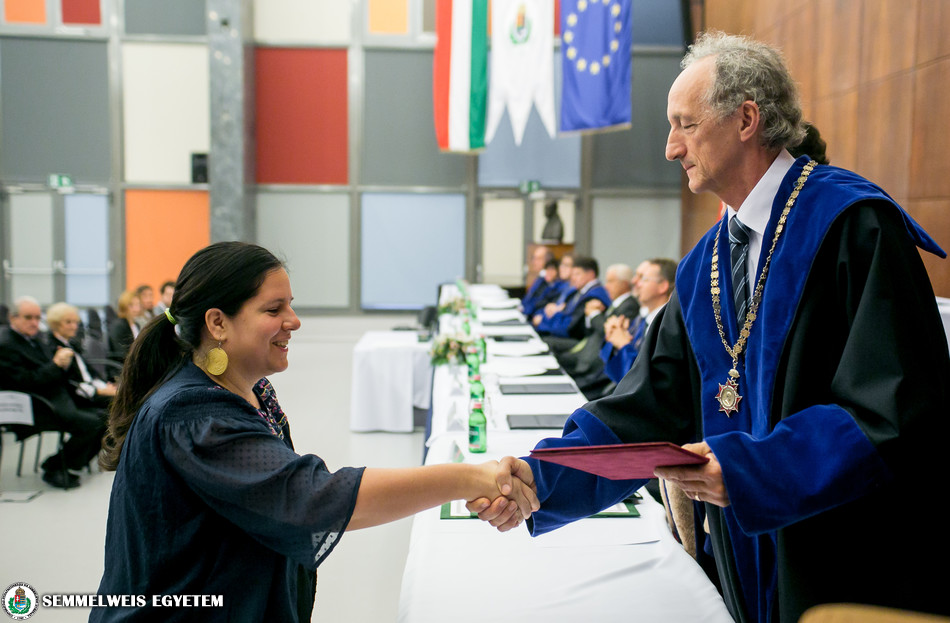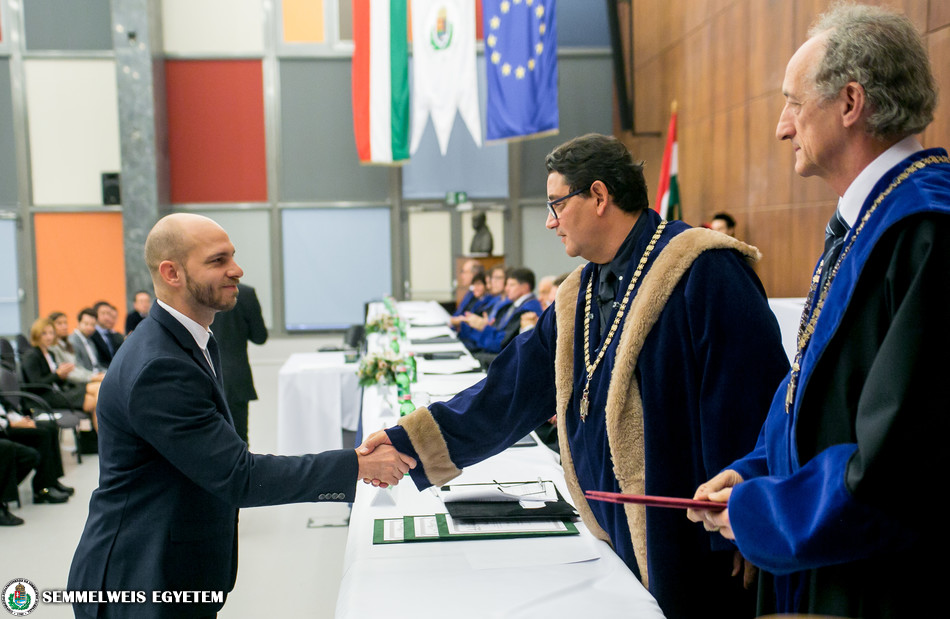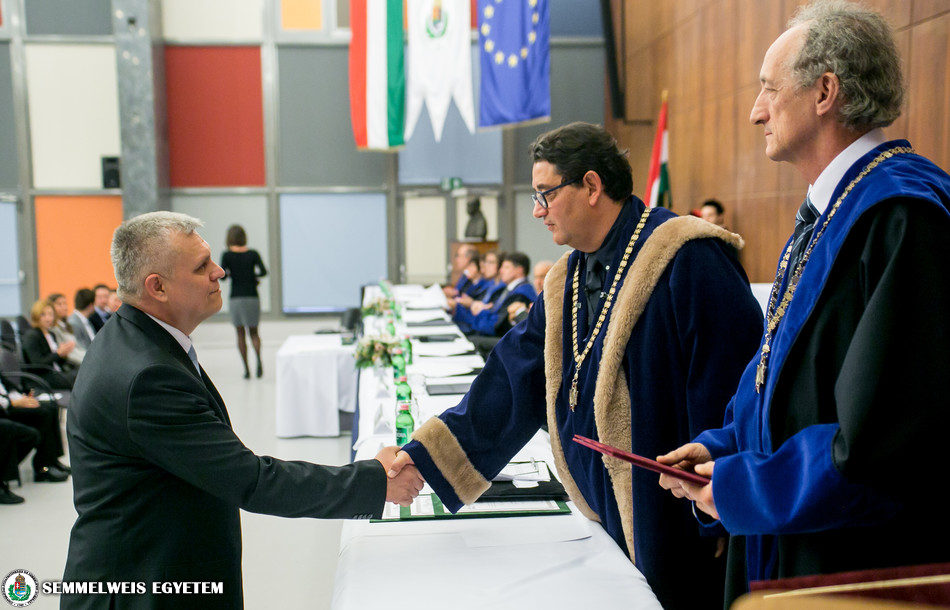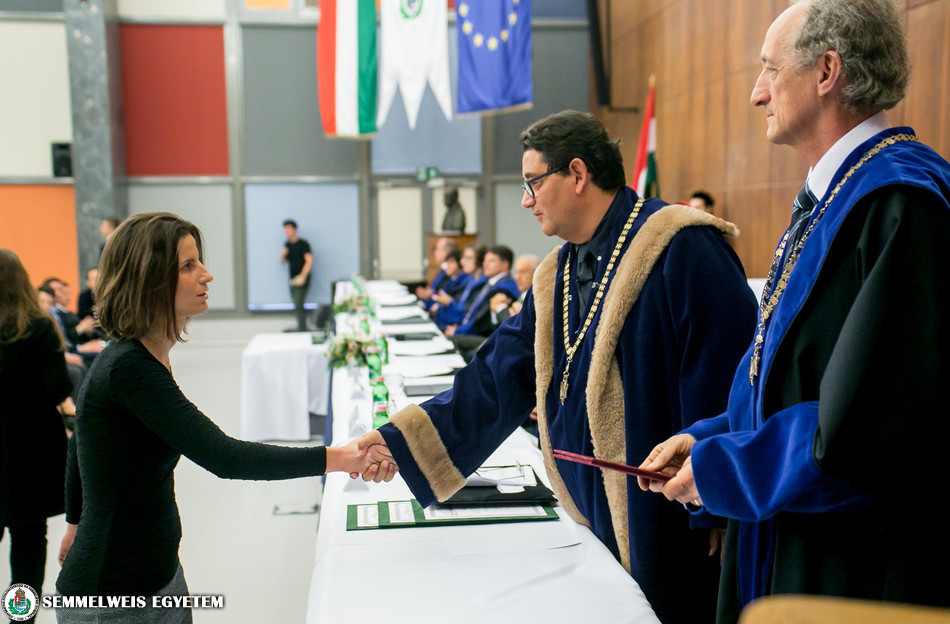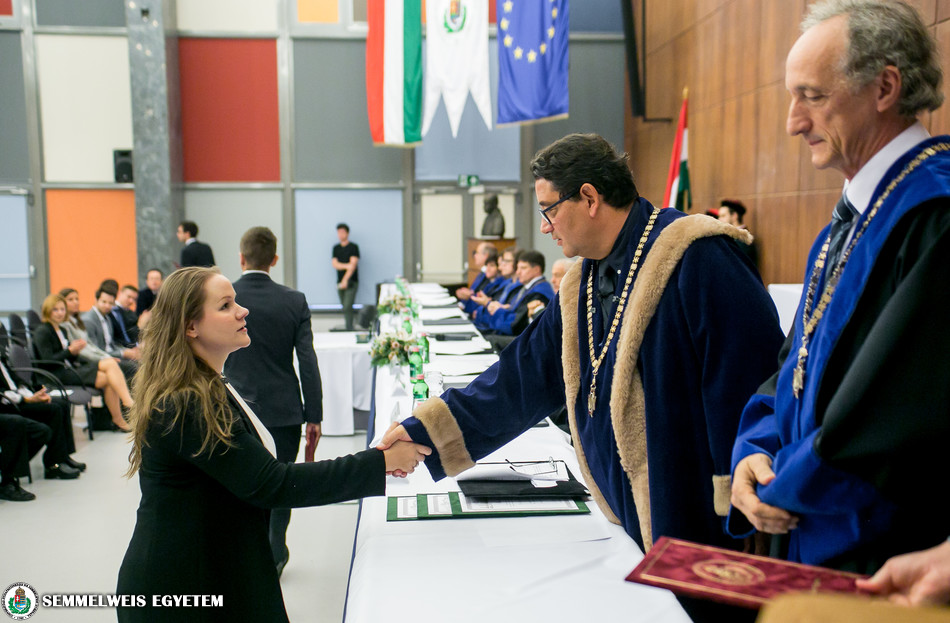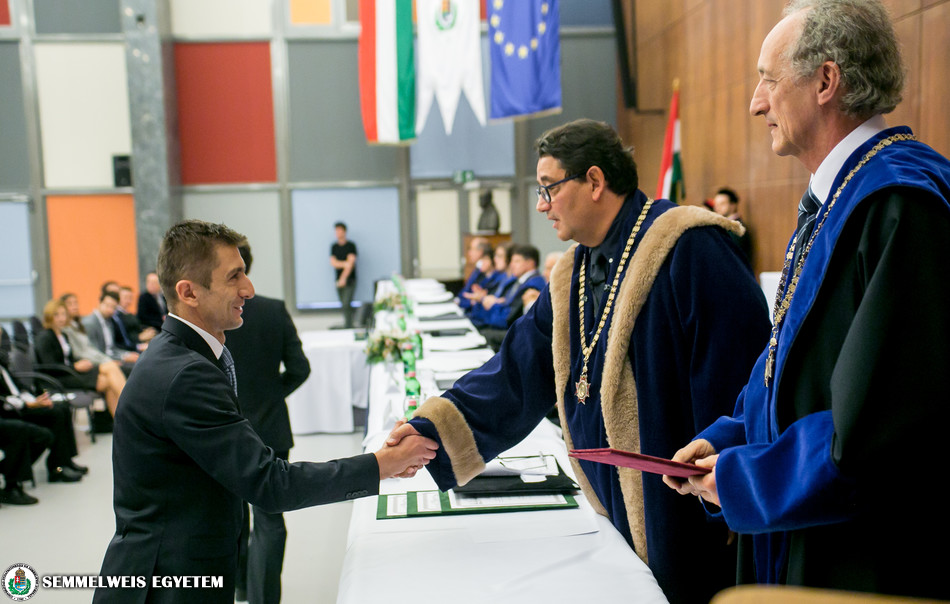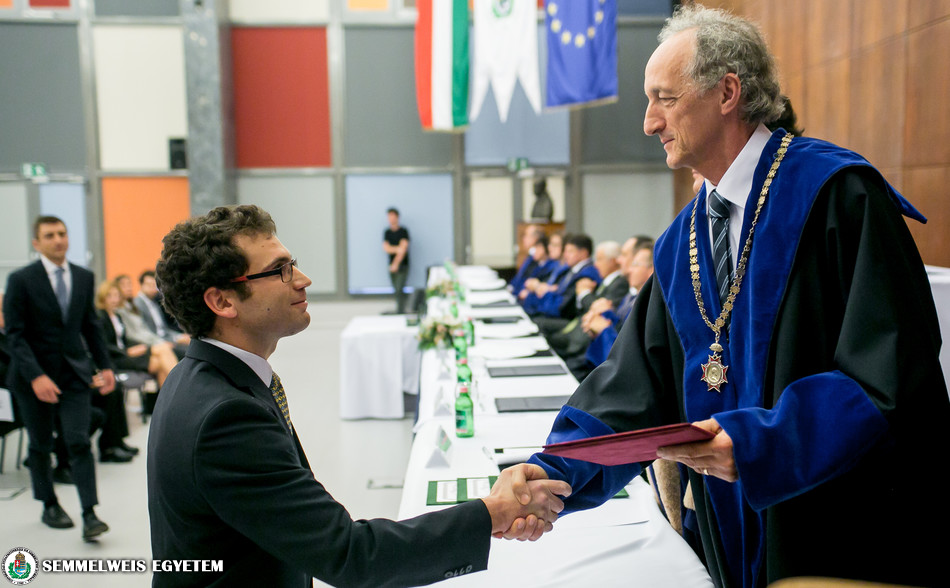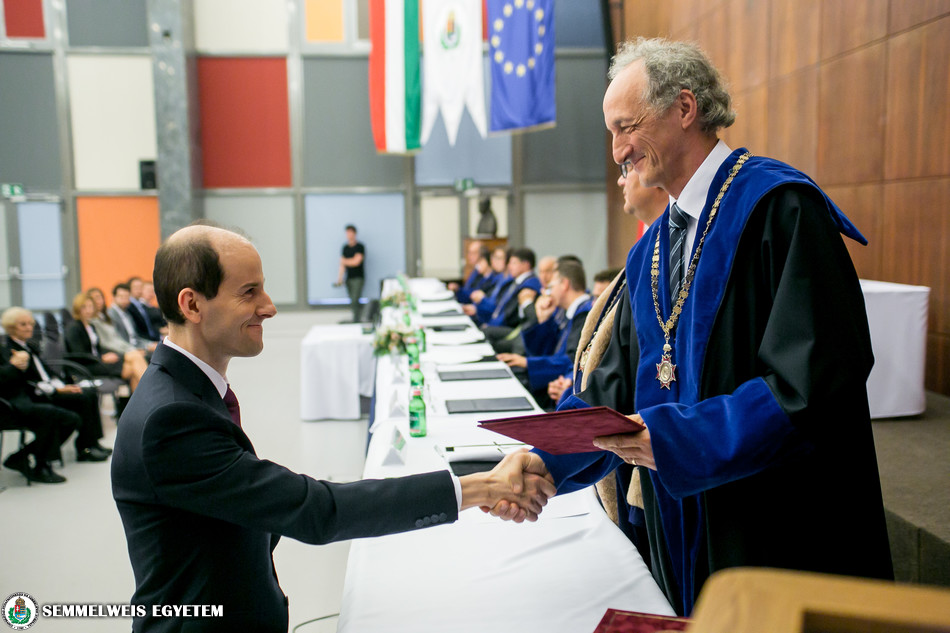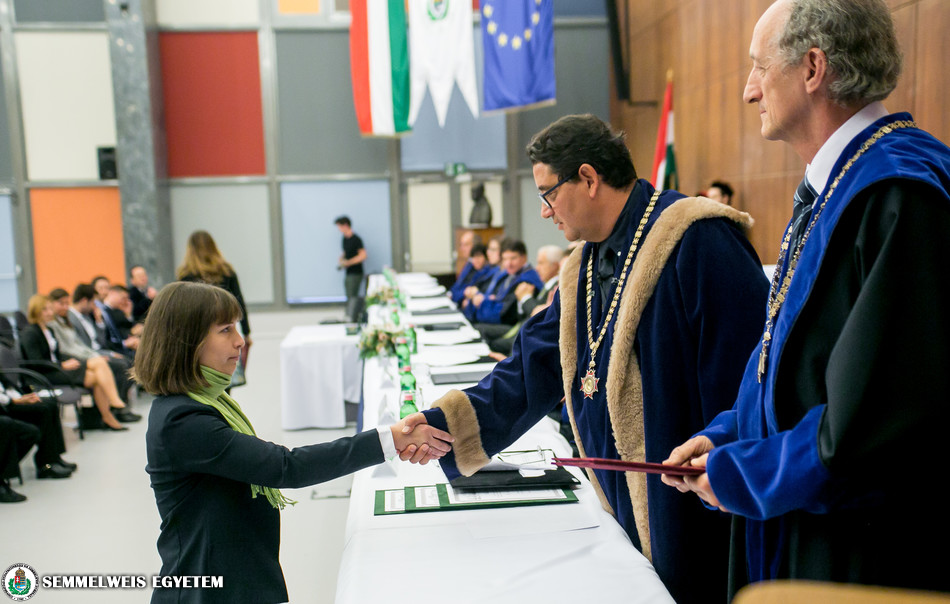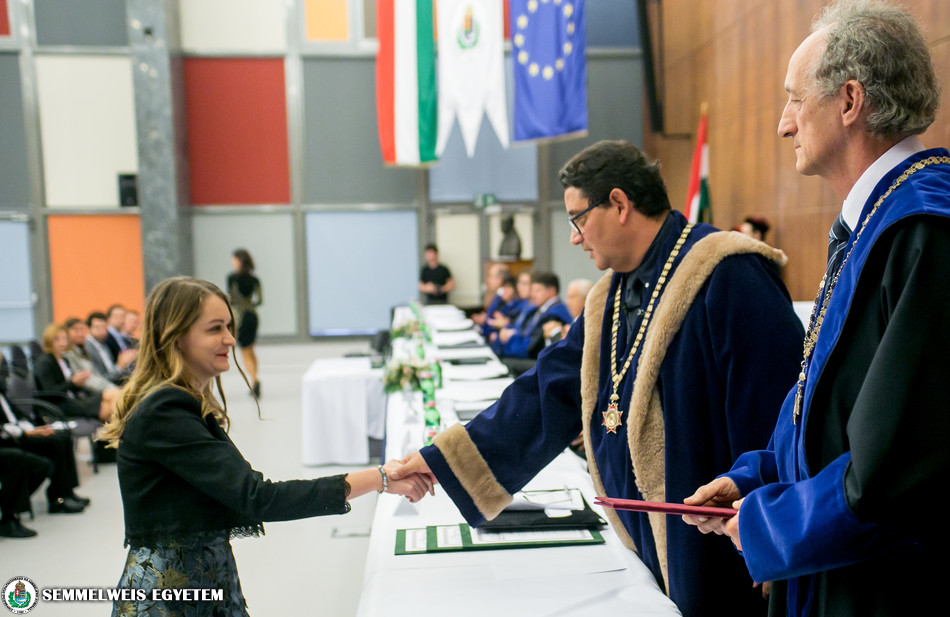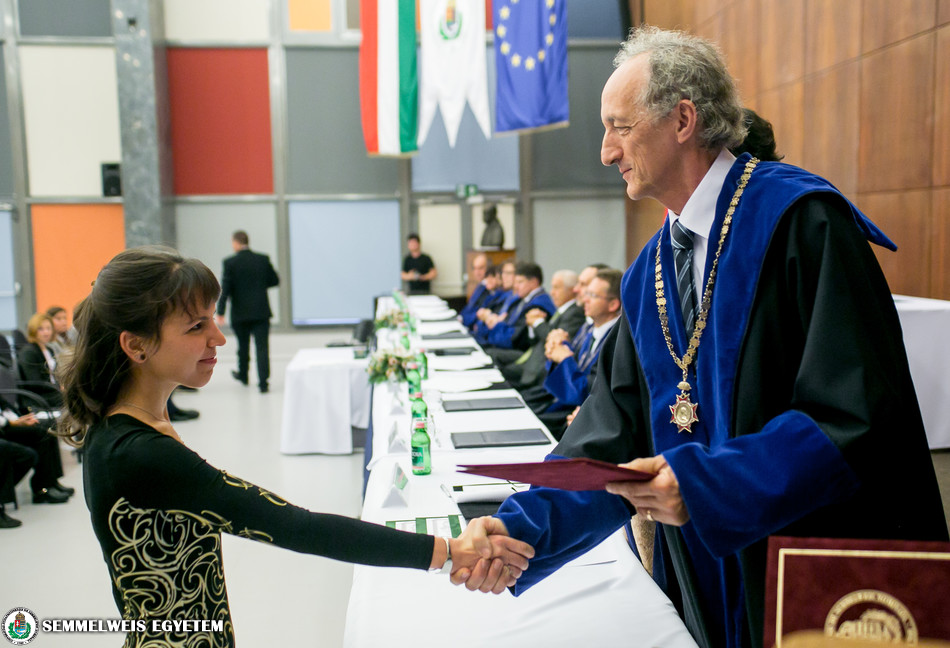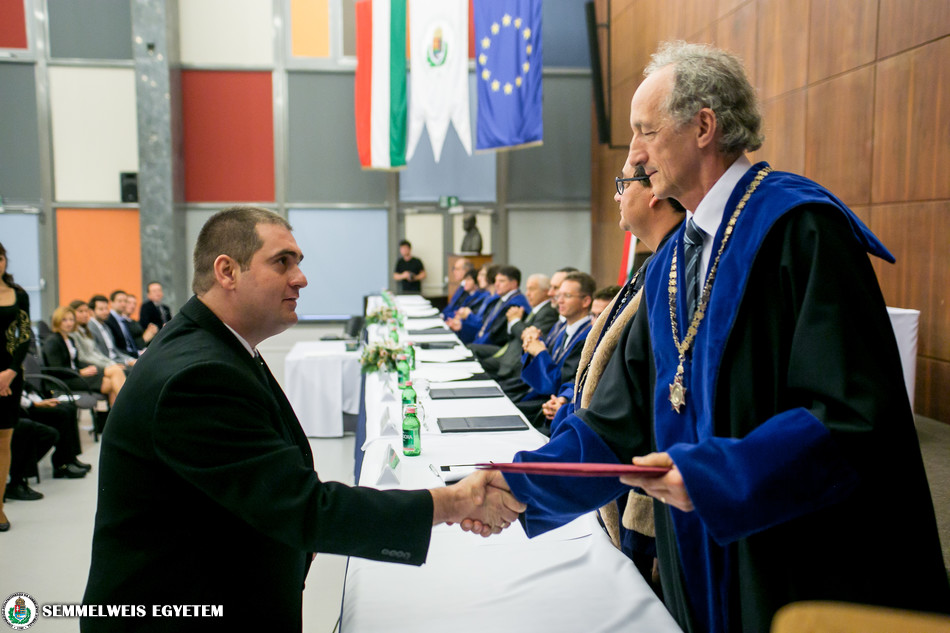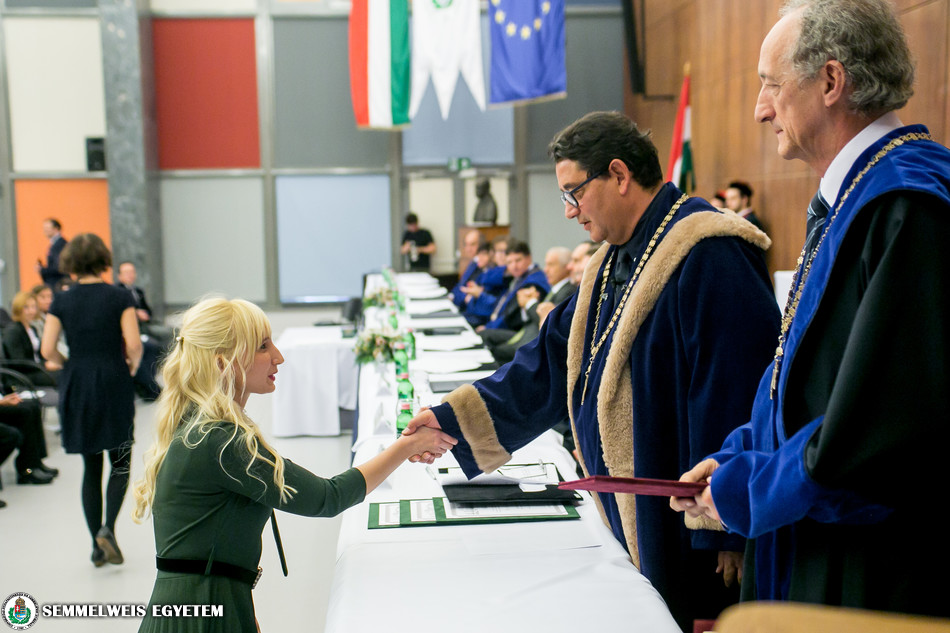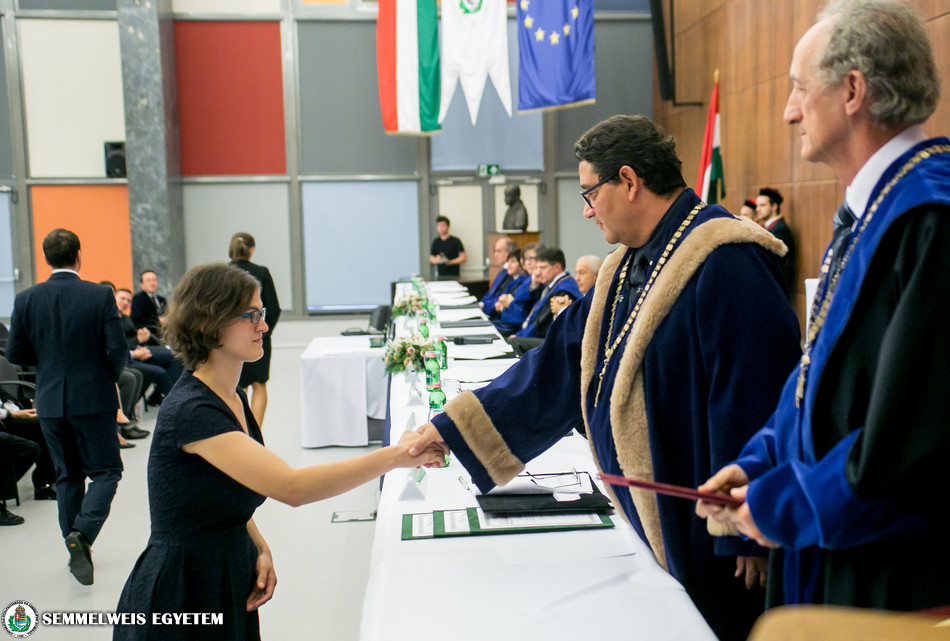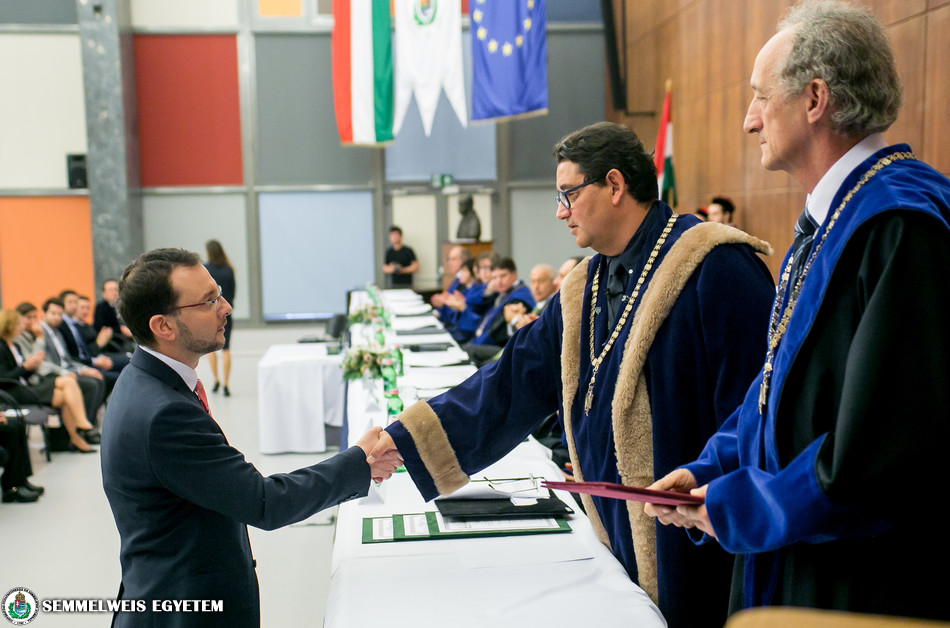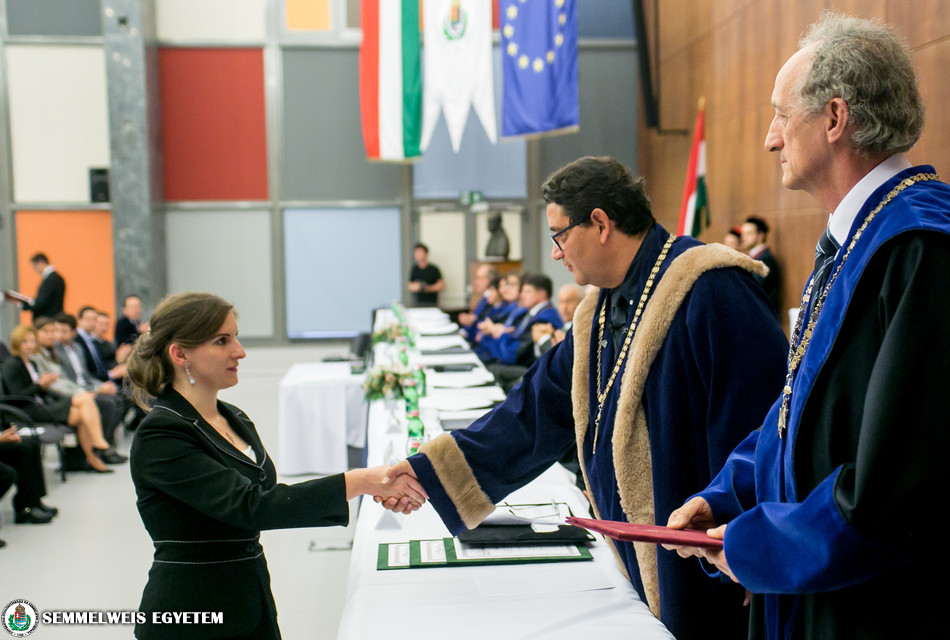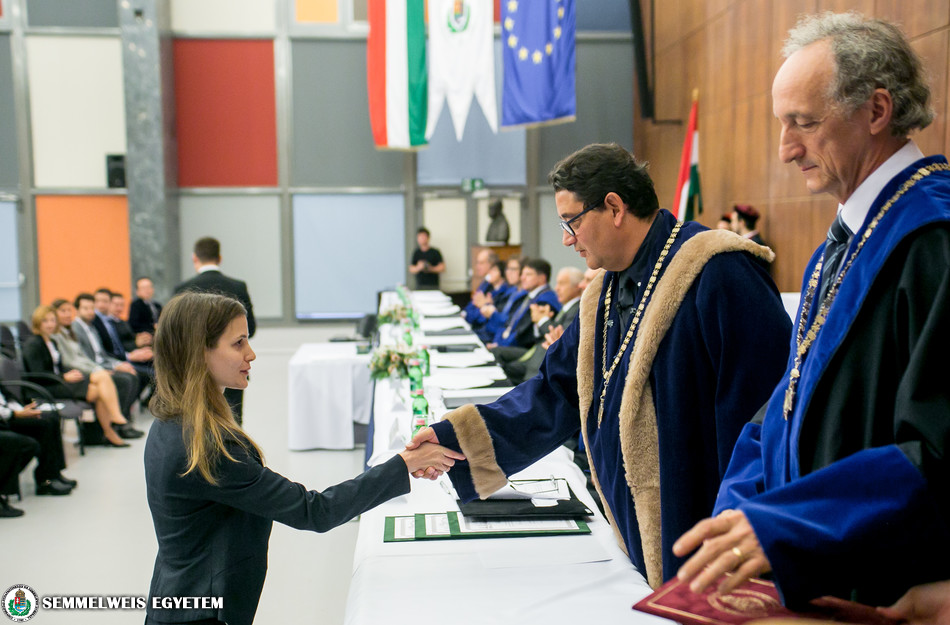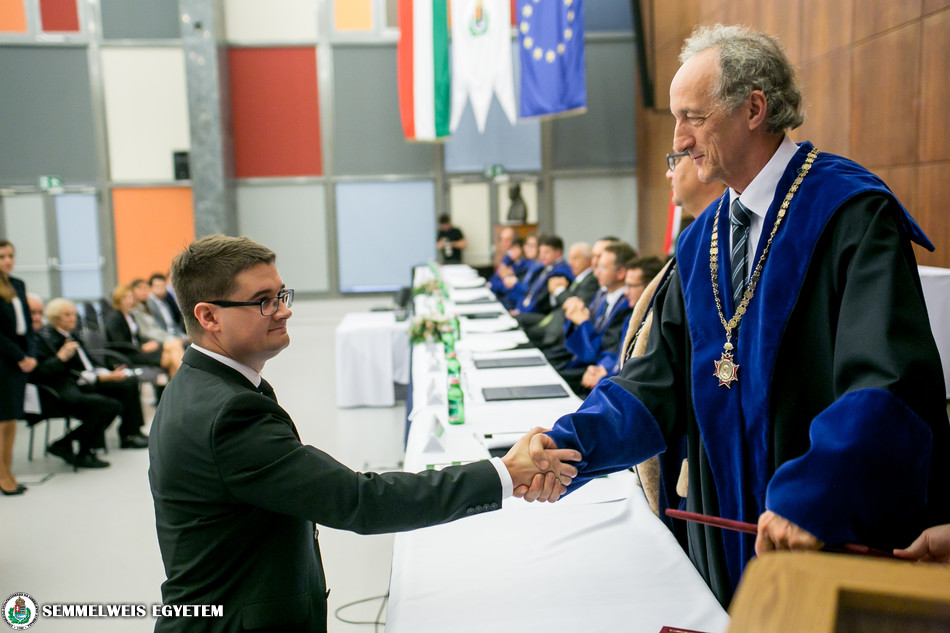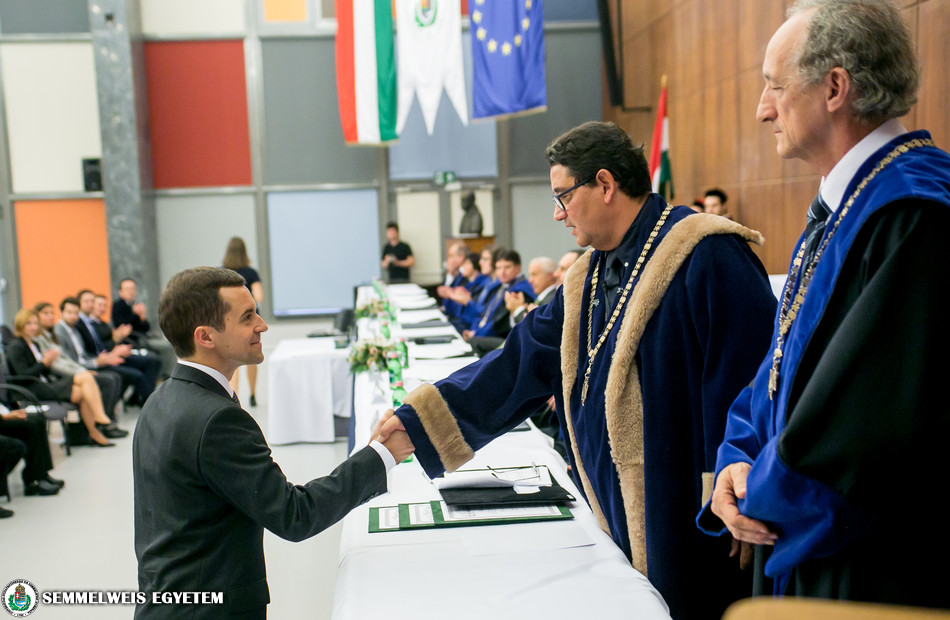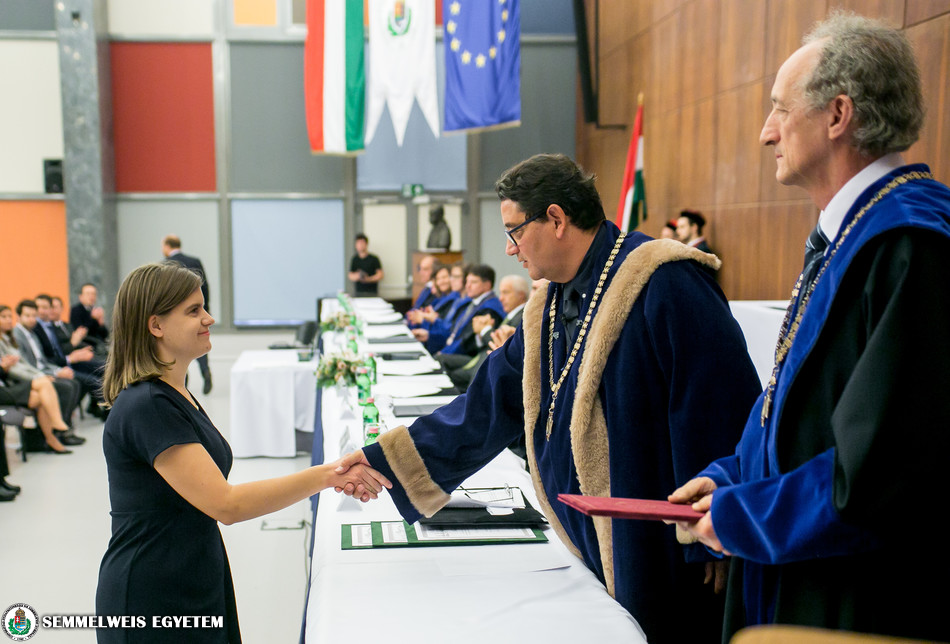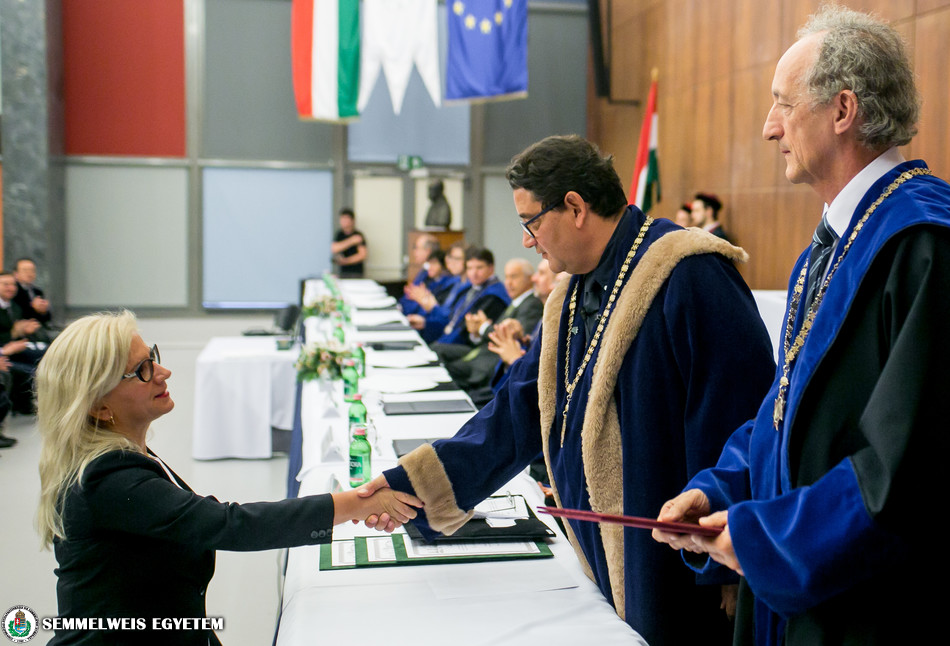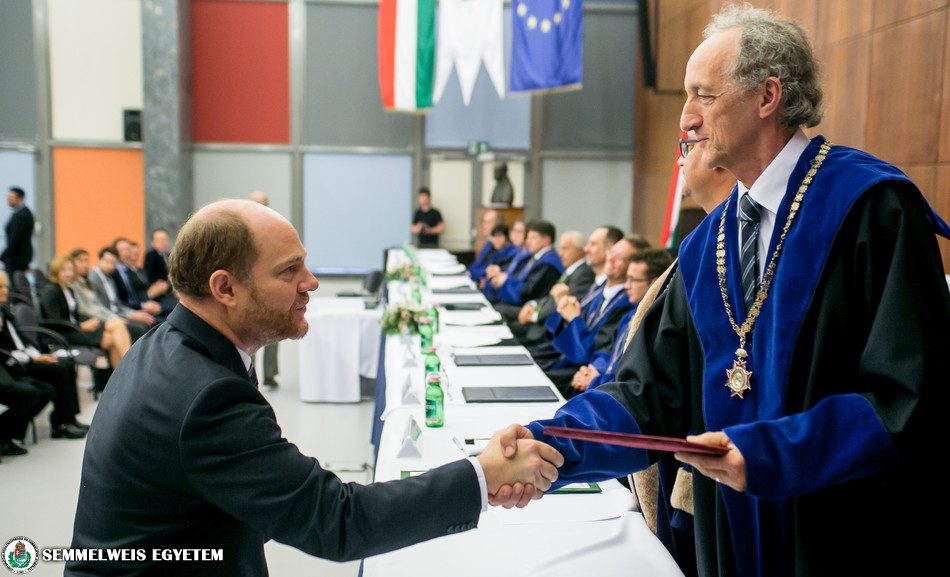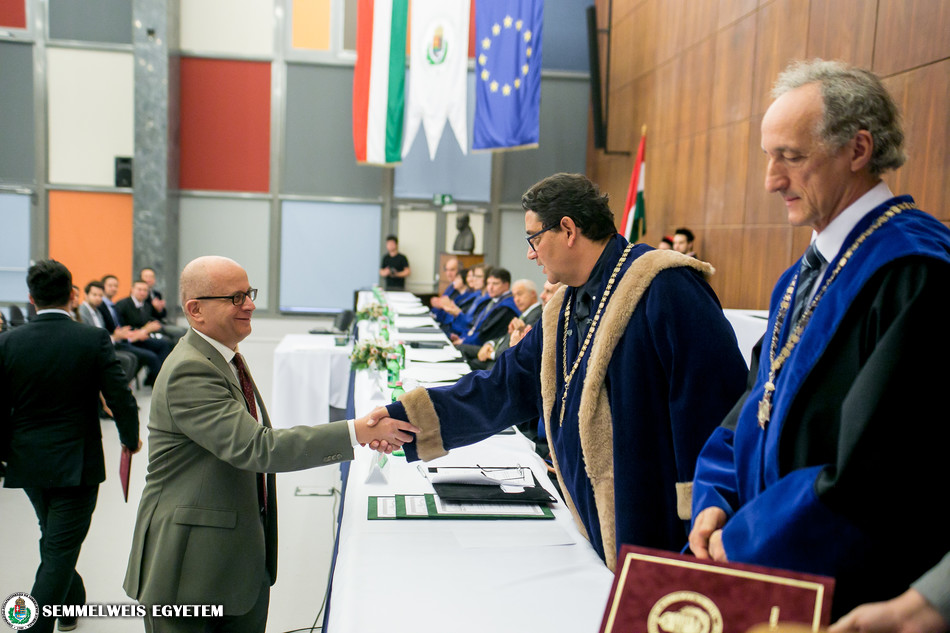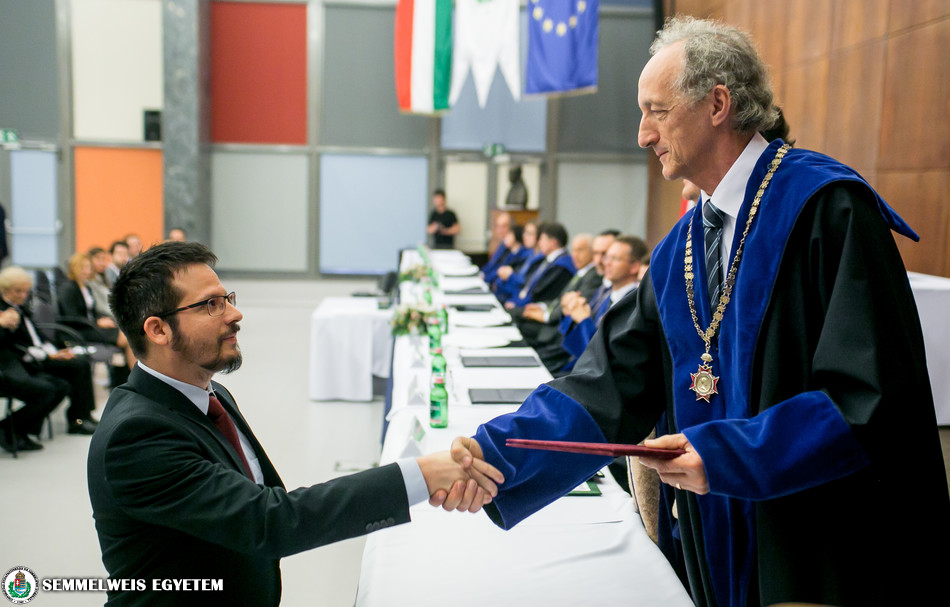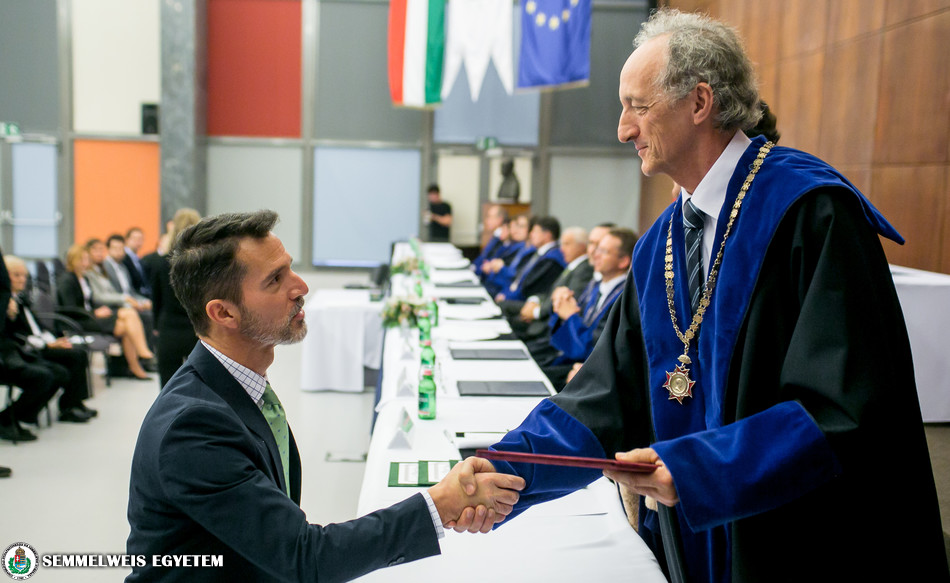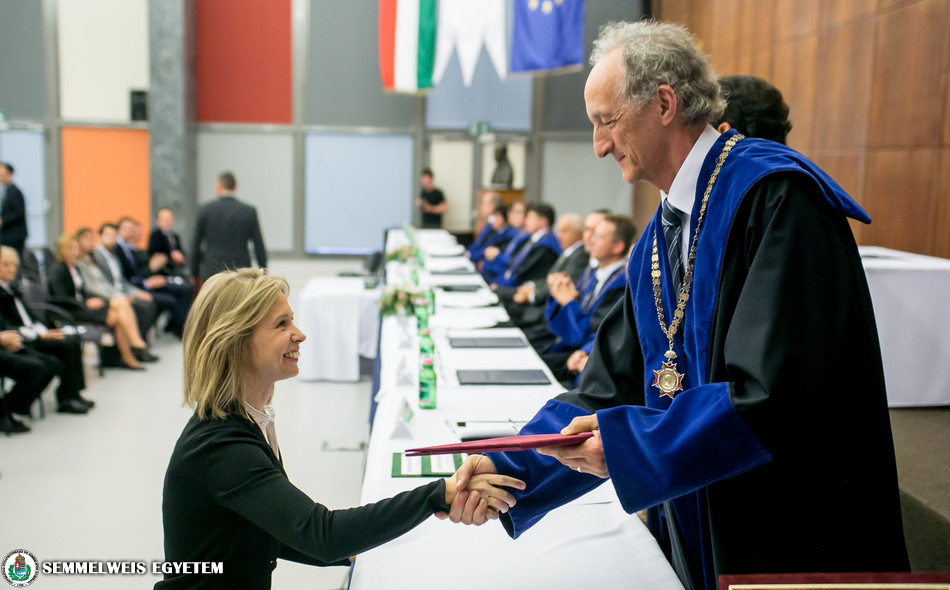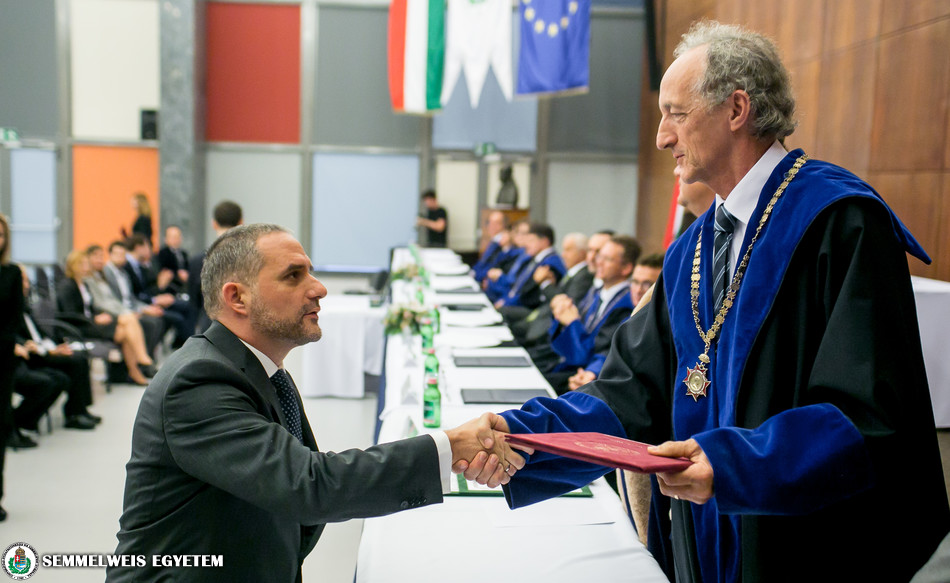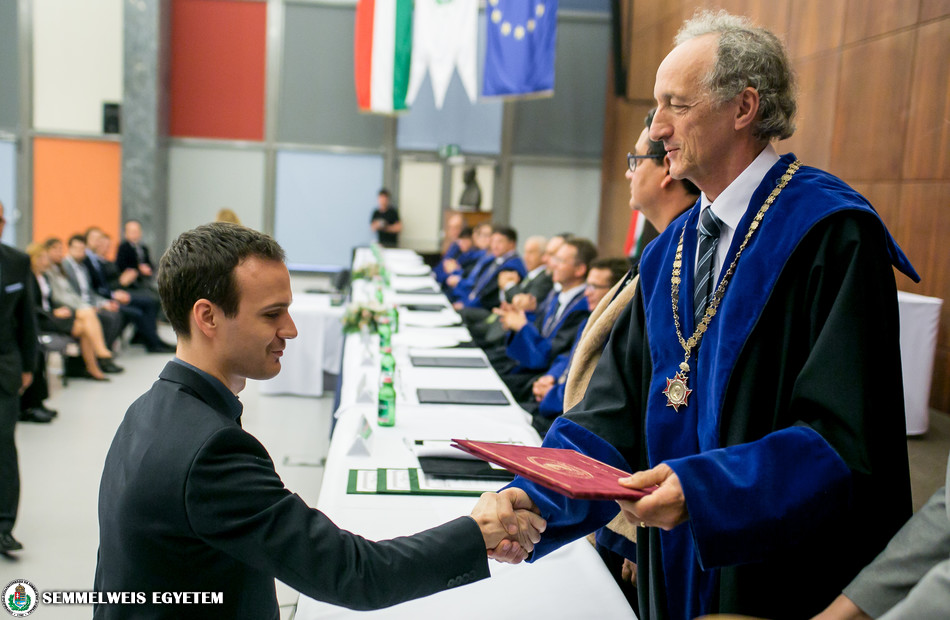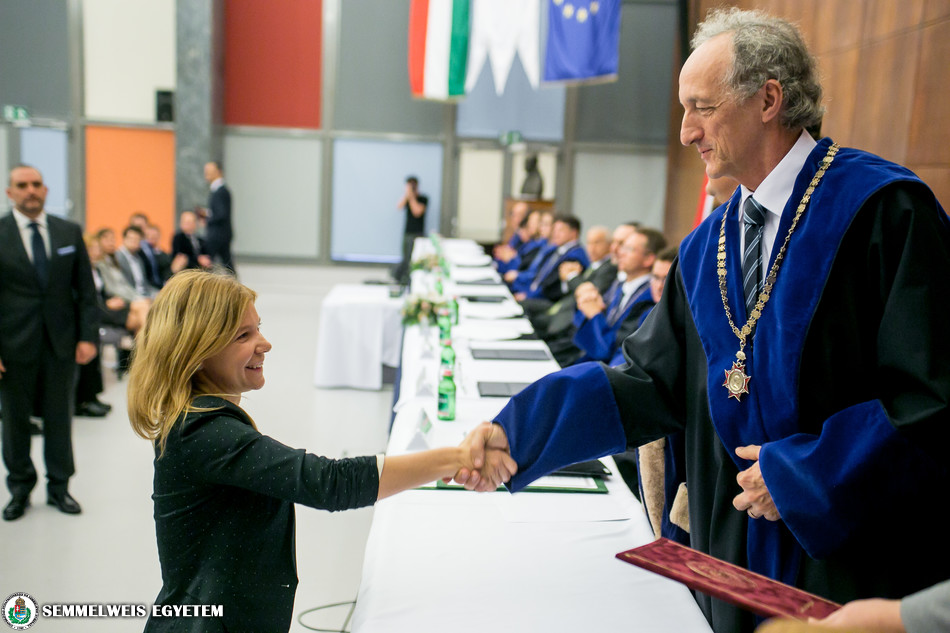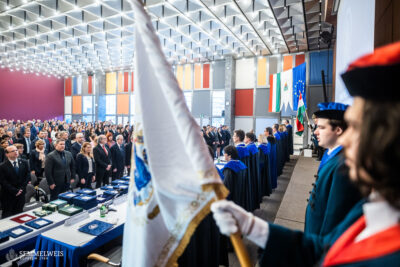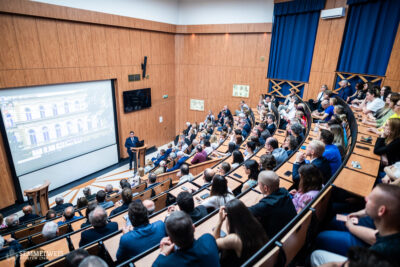A total of 134 graduates were conferred upon PhD degrees at this year’s Dies Academicus by Dr. Béla Merkely, Rector, and Dr. József Tímár, President of the Doctoral Council, which is the best result in the past decade. 85 percent of the diplomas issued were summa cum laude. In accordance with the traditions, the ceremony also featured the presentation of Honorary Professor and Master Teacher titles, as well as the “Excellent PhD Supervisor” distinction and several foundation awards.
At the beginning of the Ceremonial Senate Meeting, a moment of silence was held in memory of Dr. Emil Monos, professor emeritus, who died on November 19. He was the President of the Semmelweis University Association of Friends and former Vice-Rector for Educational Affairs at Semmelweis University.
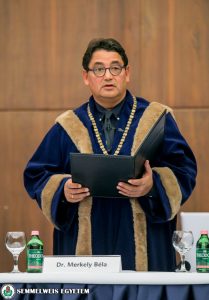 A major celebration of the academic life of the university is the PhD ceremony, which is a prominent stage in an individual’s professional career and at the same time symbolizes the essence of the university, where the knowledge of the old is applied in daily practice while discovering new research results, which are transmitted to the generation of the future, said Rector Béla Merkely in the opening speech of the ceremony. He added that knowledge regarding health, well-being and its education are most valuable when they serve the common good and make people’s everyday lives more complete. The Rector stated that the Semmelweis University, which has merged together with the clinics, is one of the pillars of a successful Hungarian society and scientific public life.
A major celebration of the academic life of the university is the PhD ceremony, which is a prominent stage in an individual’s professional career and at the same time symbolizes the essence of the university, where the knowledge of the old is applied in daily practice while discovering new research results, which are transmitted to the generation of the future, said Rector Béla Merkely in the opening speech of the ceremony. He added that knowledge regarding health, well-being and its education are most valuable when they serve the common good and make people’s everyday lives more complete. The Rector stated that the Semmelweis University, which has merged together with the clinics, is one of the pillars of a successful Hungarian society and scientific public life.
According to Rector Merkely, the further rising of the PhD programme’s prestige is one of the most important elements of Hungarian researcher training. Furthermore, he believes that the international appearance of the Doctoral School, the introduction of foreign language trainings and the building of active relationships with the European Research Area are goals which mean great leaps forward. In order to extend translational research opportunities, the expansion of postdoctoral applications is also necessary, added the Rector, who considers it important to set up an international PhD jury and invite foreign opponents. As he said, all innovation processes at the university are based on traditions: in 2018, we celebrate Ignác Semmelweis’ 200th birth anniversary, but we are already preparing for the quarter-century jubilee of the university’s foundation, which also give the opportunity to strengthen the university community, said the Rector.
Dr. József Tímár, President of the Doctoral Council, said that in 2018 a total of 134 candidates completed their PhD work, including 111 summa cum laude honours, 22 cum laude, and 1 rite. Following the solemn oath, Dr. Béla Merkely and Dr. József Tímár conferred the PhD degrees upon the candidates and accepted them as fellow doctors with a handshake.
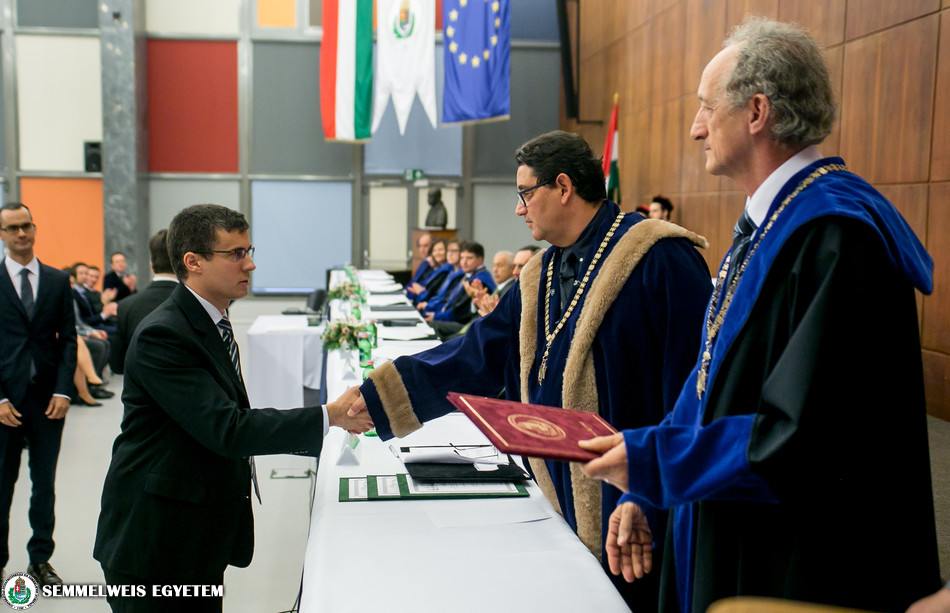 The Doctoral School of Semmelweis University is 25 years old and, looking back at this quarter of a century, it can be said that the founders, Dr. Péter Sótonyi, Dr. Péter Rajna, Dr. András Jeney, Dr. József Mandl, Dr. Emil Monos, Dr. Miklós Réthelyi, Dr. Éva Szőke, Dr. Zsolt Tulassay, did a great job, emphasized Dr. József Tímár in his speech. He stressed that the Doctoral School is now one of the most successful PhD training sites in the country, where the graduation rate is significantly higher than the national average. In Semmelweis University’s doctoral programme, 508 students, 268 doctoral candidates participate in the 44 programmes of the 7 doctoral schools. 380 active supervisors work with these students, and the number of topics announced is close to 900, said the President of the Doctoral Council.
The Doctoral School of Semmelweis University is 25 years old and, looking back at this quarter of a century, it can be said that the founders, Dr. Péter Sótonyi, Dr. Péter Rajna, Dr. András Jeney, Dr. József Mandl, Dr. Emil Monos, Dr. Miklós Réthelyi, Dr. Éva Szőke, Dr. Zsolt Tulassay, did a great job, emphasized Dr. József Tímár in his speech. He stressed that the Doctoral School is now one of the most successful PhD training sites in the country, where the graduation rate is significantly higher than the national average. In Semmelweis University’s doctoral programme, 508 students, 268 doctoral candidates participate in the 44 programmes of the 7 doctoral schools. 380 active supervisors work with these students, and the number of topics announced is close to 900, said the President of the Doctoral Council.
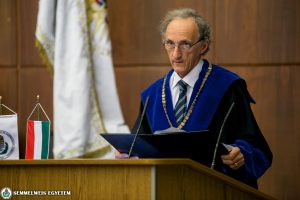 The 134 diplomas granted this year is the best result of the last 8 years, with which we have been able to fulfil the most important goal of the EFOP application, which is to increase the number of qualified researchers by 20 percent, said Dr. József Tímár. He added that 85 percent of the degrees were conferred summa cum laude. The vast majority of graduates (77 persons) are state stipend students, but there is also a significant number of fee-paying students (45), whose work was mainly supported by their supervisor. This year, many of them graduated from the Doctoral School of Clinical Medicine, but the Doctoral Schools of Basic and Translational Medicine as well as of Pathological Sciences were also successful, the President said.
The 134 diplomas granted this year is the best result of the last 8 years, with which we have been able to fulfil the most important goal of the EFOP application, which is to increase the number of qualified researchers by 20 percent, said Dr. József Tímár. He added that 85 percent of the degrees were conferred summa cum laude. The vast majority of graduates (77 persons) are state stipend students, but there is also a significant number of fee-paying students (45), whose work was mainly supported by their supervisor. This year, many of them graduated from the Doctoral School of Clinical Medicine, but the Doctoral Schools of Basic and Translational Medicine as well as of Pathological Sciences were also successful, the President said.
He emphasized that this year’s graduate students cite more than 500 international publications in their dissertations, and the 134 dissertations contain 135 D1 (top 10 percent) and 122 Q1 (top 25 percent) publications from journals, which mark not only the excellence of students but also of the supervising researchers. He believes that this is the reason for the increasing number of scholarships in the National Excellence Program for many years. Dr. József Tímár expressed the hope that many of the graduates would continue their career at Semmelweis University.
The ceremony continued with the presentation of awards and prizes. Dr. István Antal, associate professor, director of the Department of Pharmaceutics, Dr. Sarolta Kárpáti, university professor at the Department of Dermatology, Venereology and Dermatooncology, and Dr. Miklós Kellermayer, university professor and director of the Department of Biophysics and Radiation Biology. The awards were conferred by Dr. József Tímár after the laudation of the awardees.
The Doctoral Excellence Award of the Semmelweis University Association of Friends was received by seven people. The awards were conferred by Dr. Péter Sótonyi, rector emeritus, Vice-President of the Semmelweis University Association of Friends, and Dr. Edit Némedy, chief physician, member of the board of directors. The awardees included András Dávid Tóth (1st place), Ábel Decmann (2nd place), Adrienn Katalin Kazsoki (3rd place), Zsófia Brigitta Nagy (3rd place), Miklós Vértes (4th place), Bence Ágg (5th place) and Gábor Koncsos (6th place).
Afterwards, Honorary Professor and Master Teacher titles were given to outstanding individuals who have been involved in teaching work for a long time. The certificates were awarded by Rector Béla Merkely. The title of Honorary Professor was received Dr. Bálint Sinkó, while Master Teacher titles were given to Gyöngyi Ajtay, Alíz Erdélyi, Dr. Valéria Anna Gyarmathy, Dr. Tibor Keglevich and Katalin Pálmai.
The awards of the Dr. Antal Genersich Foundation for 2018 were conferred by Dr. Ildikó Süveges, professor emerita, president of the board of trustees, Dr. Péter Sótonyi, rector emeritus, honorary president of the foundation and the descendants of Pál Heim, Dr. Gergely Pap and Dr. Béla Tankó. The foundation’s awardees this year include Viktória Fésűs and Brigitta Rita Szabó, as well as Dr. Milán Csengeri, who was still a medical student at the time of the application. Prizes were awarded to Dr. Attila Zalatnai, associate professor at the 1st Department of Pathology and Experimental Cancer Research, nominated by the Hungarian Society of Pathologists, as well as Dr. Szabolcs Ottó, former deputy director-general of the National Institute of Oncology, nominated by the Hungarian Cancer Society. Based on the decision of the board of trustees, the Antal Genersich Award for Academics was conferred this year upon Dr. László Csiba, professor at the Department of Neurology of the University of Debrecen and correspondent member of the Hungarian Academy of Sciences.
The closing act of the ceremony was a performance by the Medic Orchestra.
Eszter Keresztes
Photo: Attila Kovács – Semmelweis University
Translation: Diána Módos
